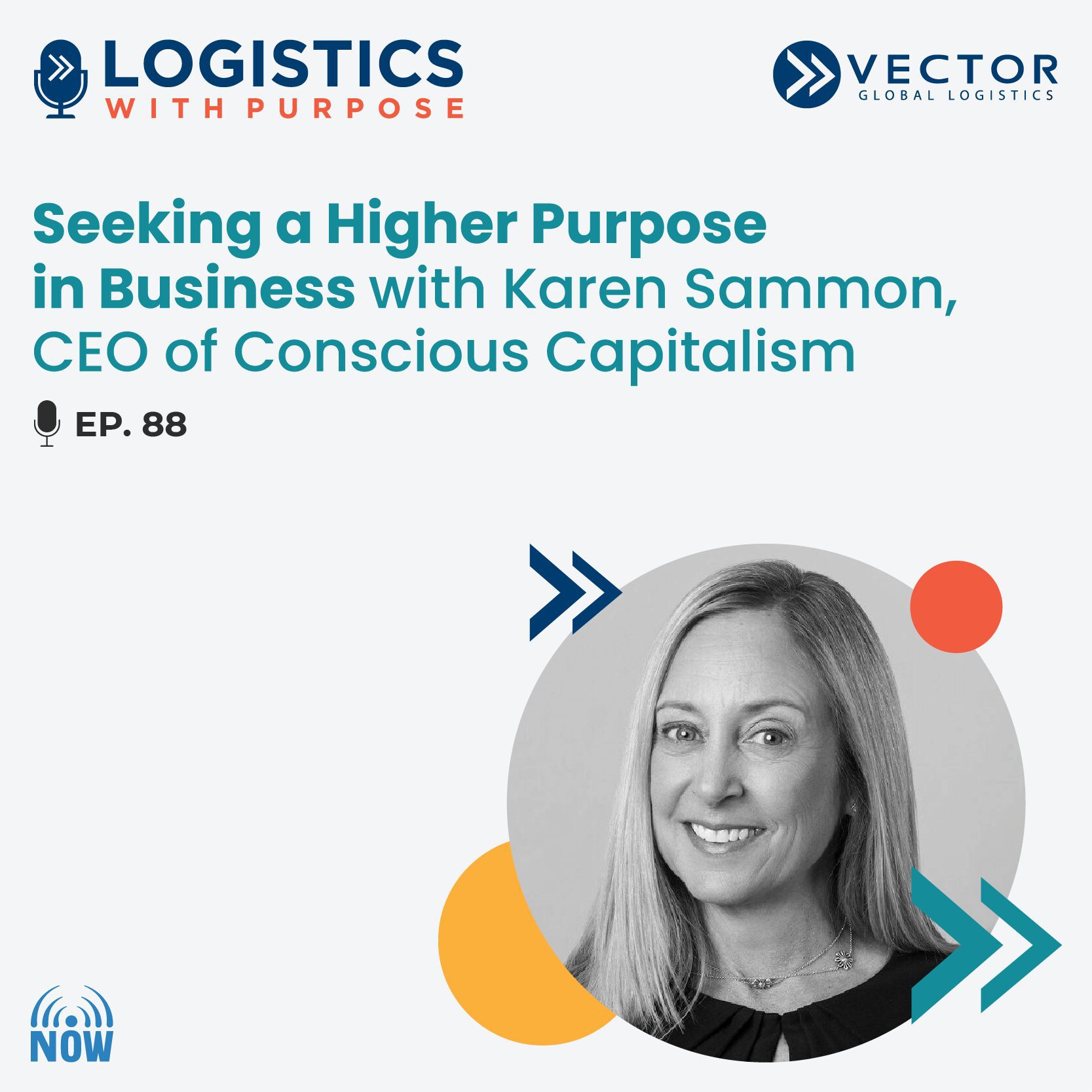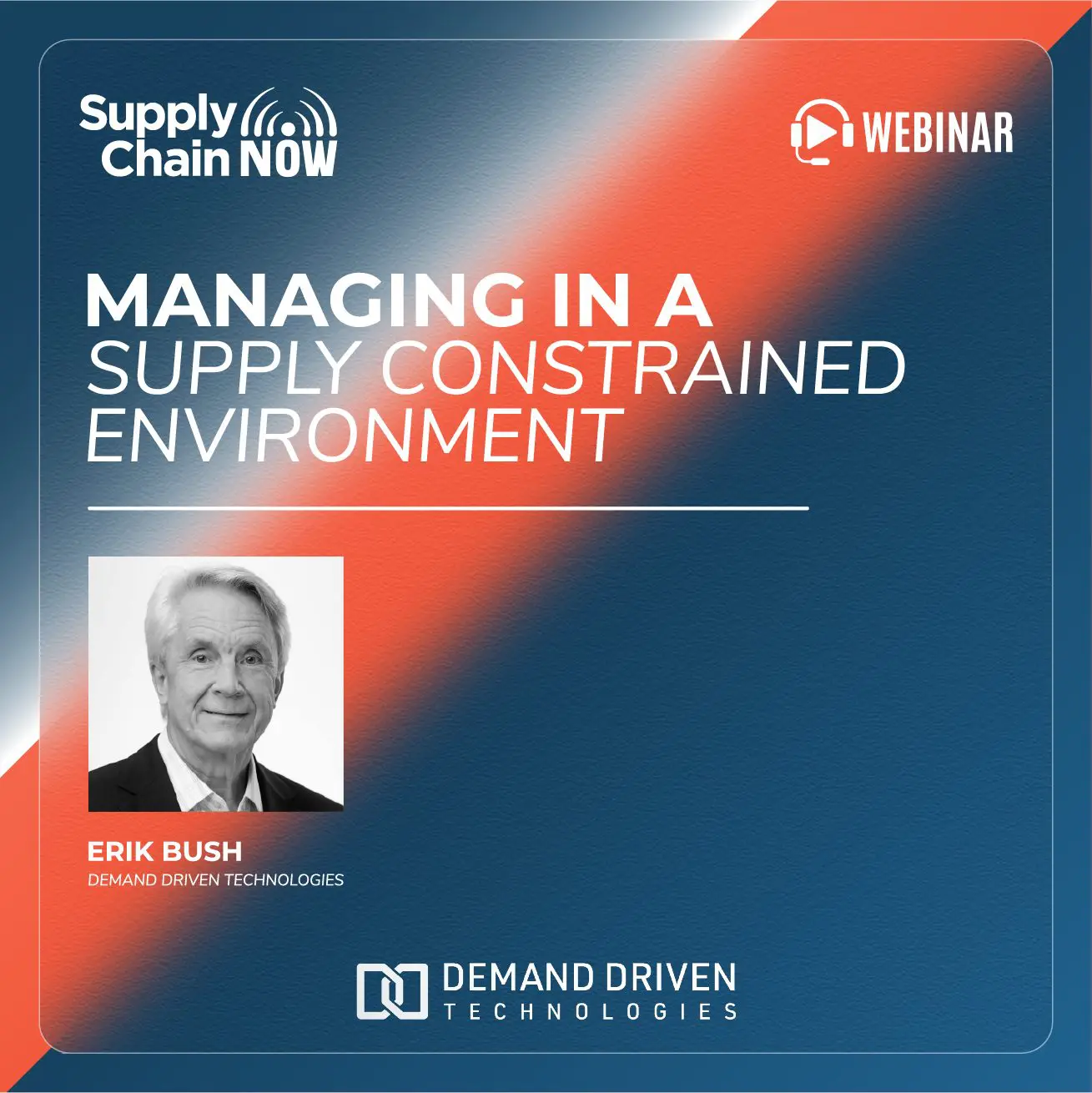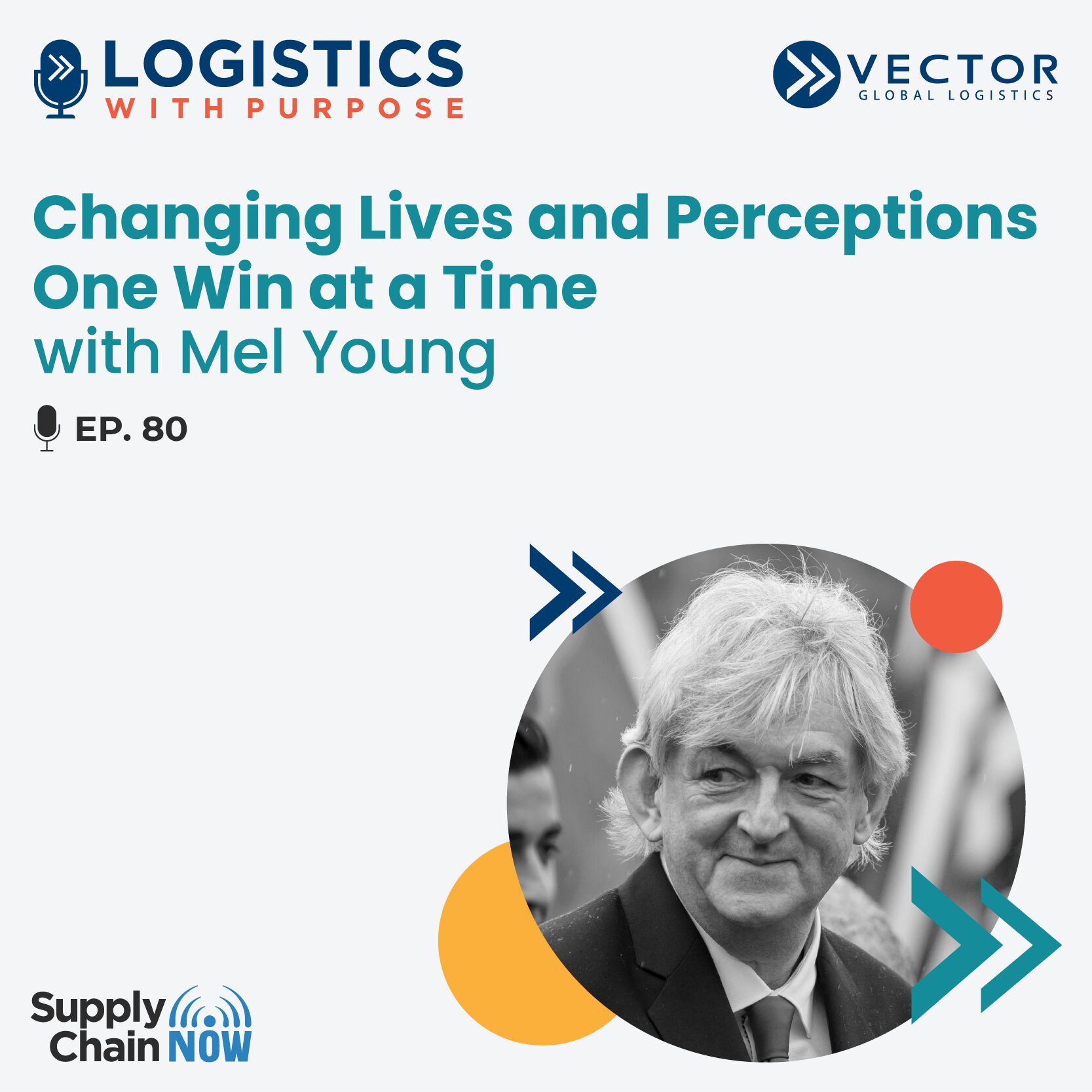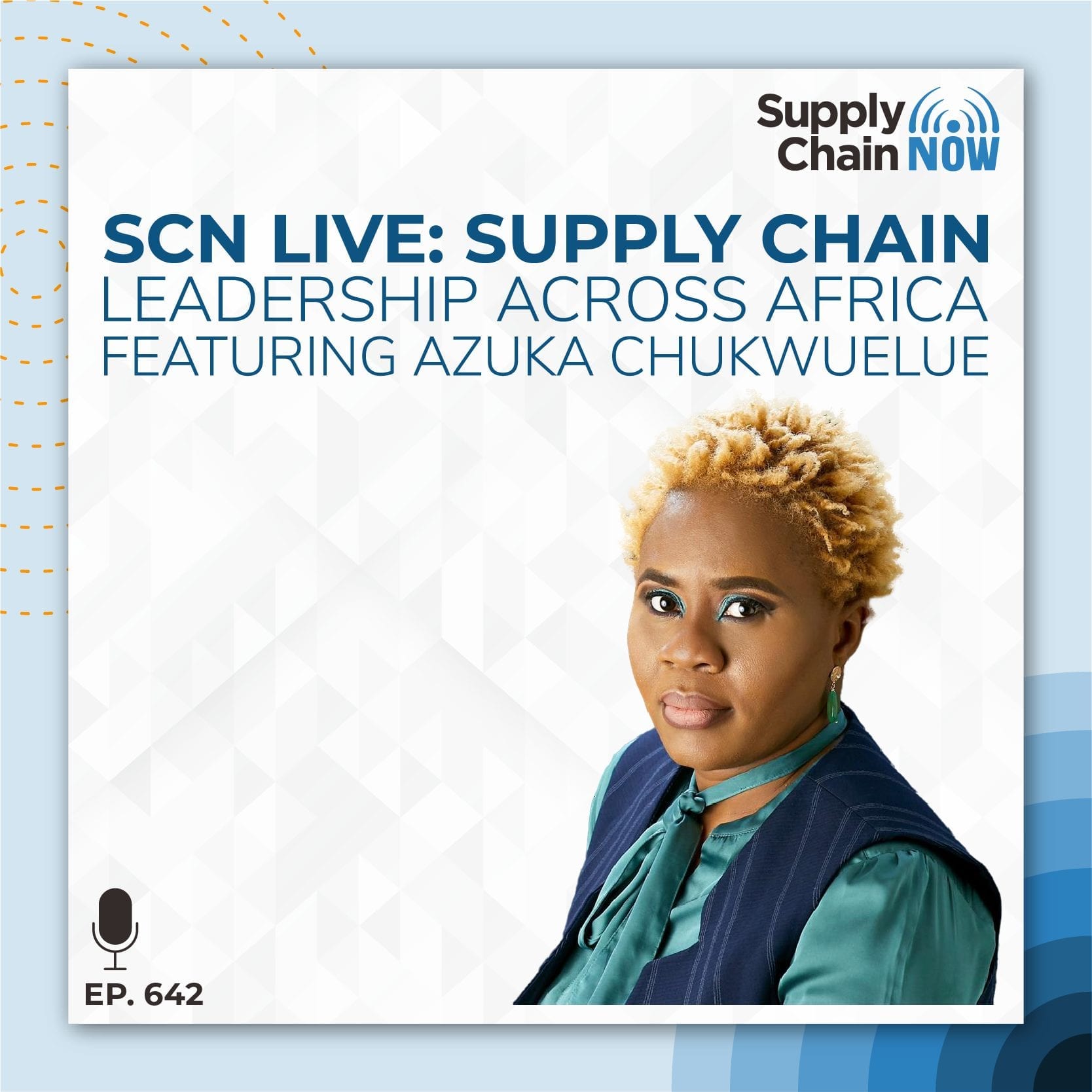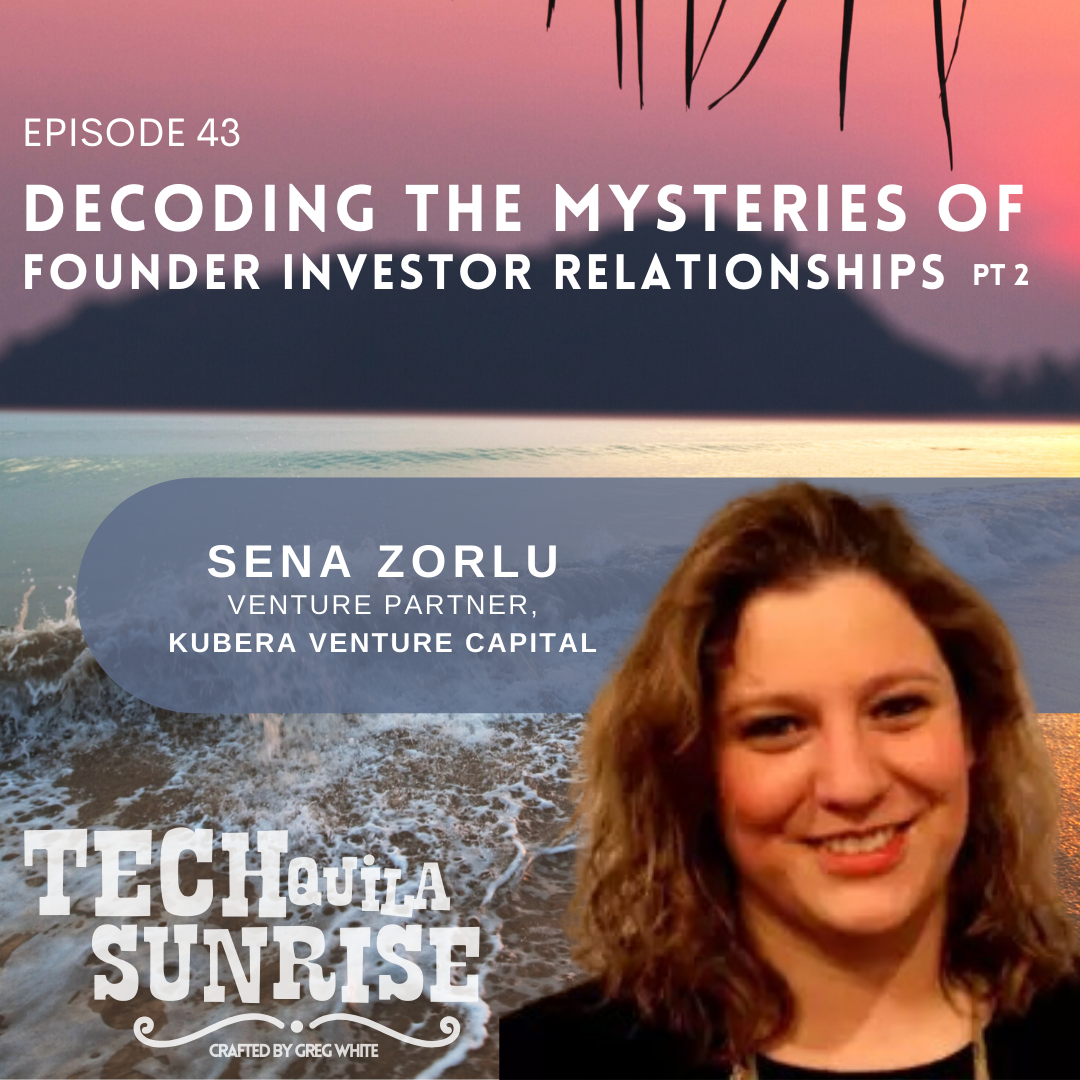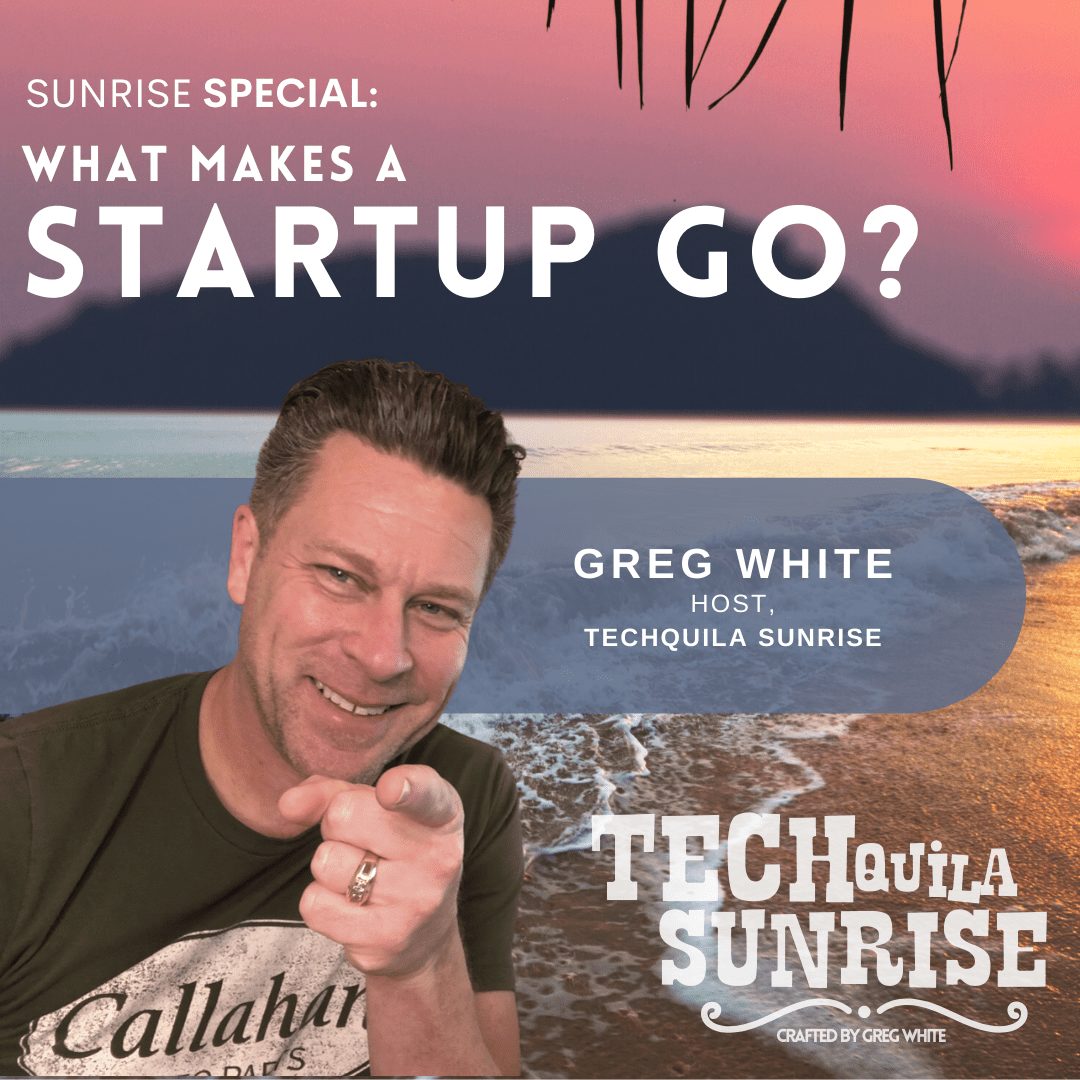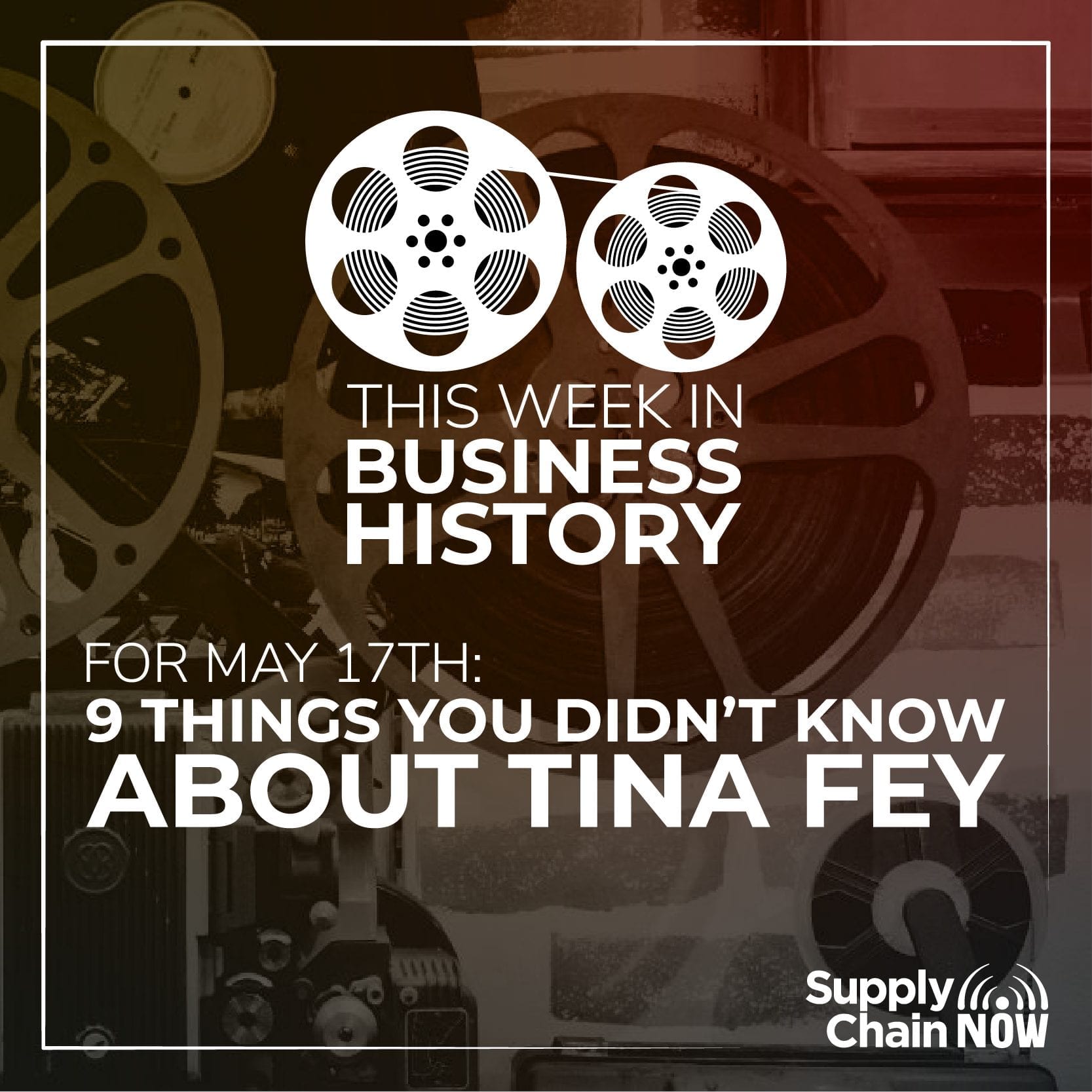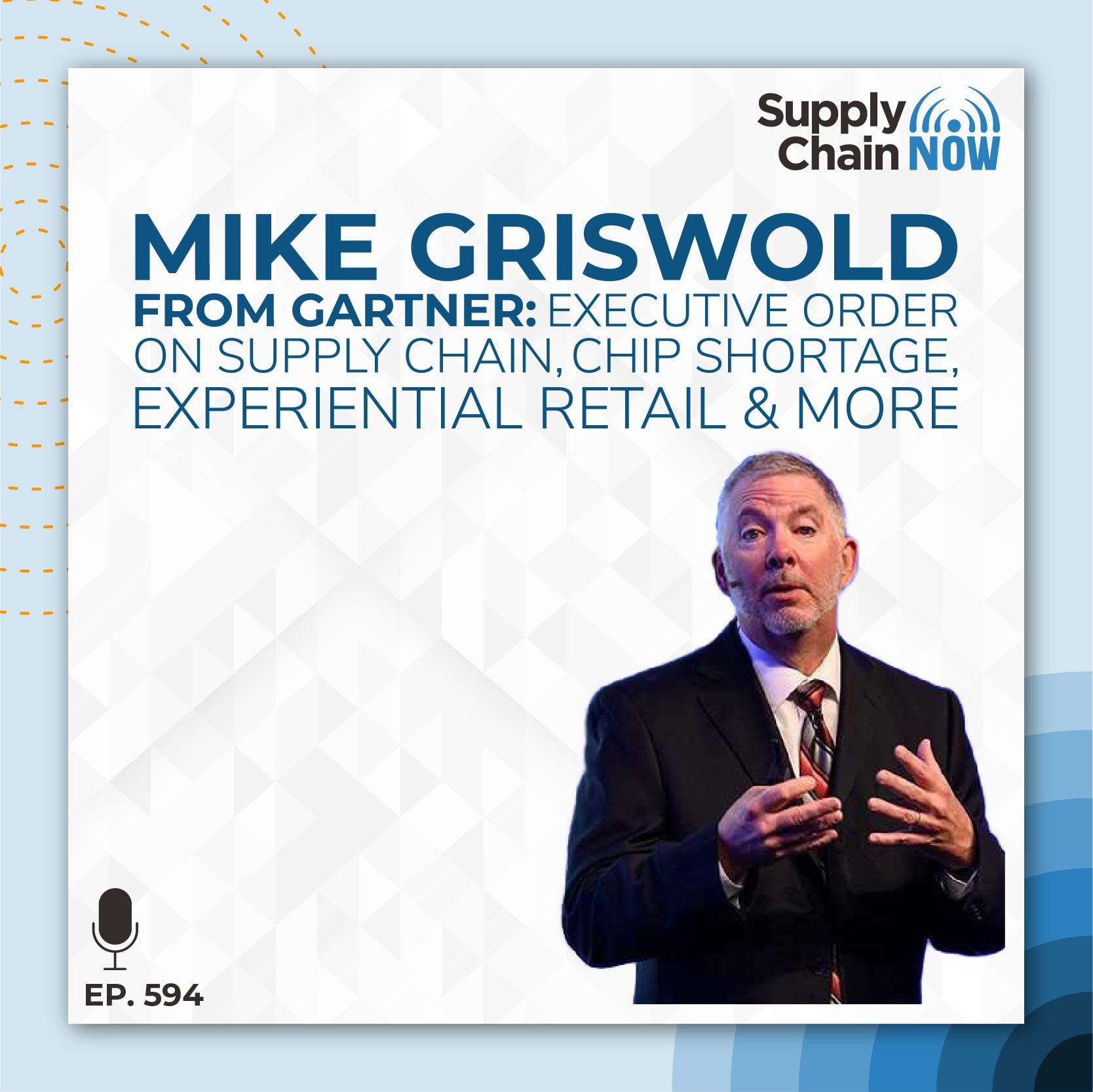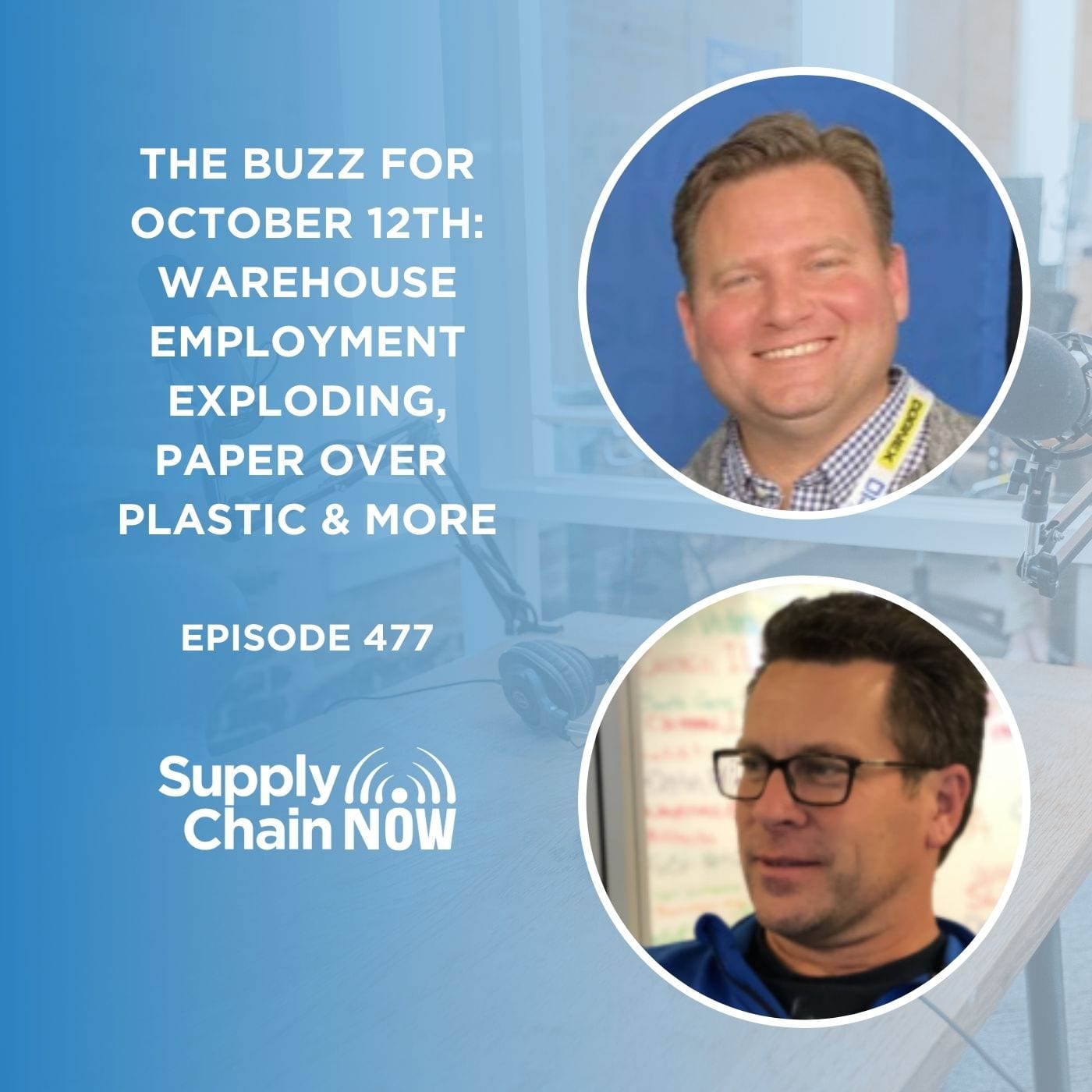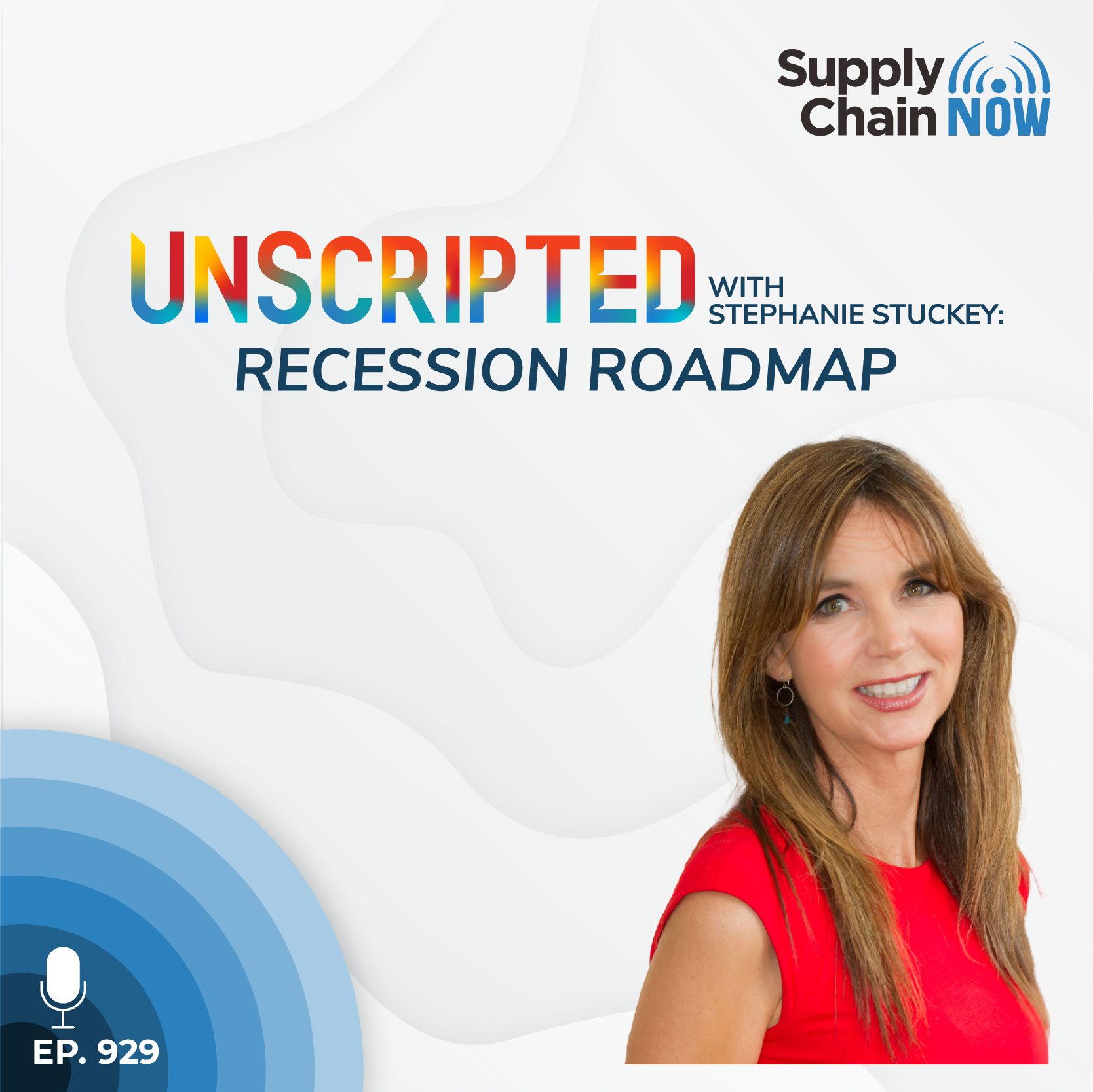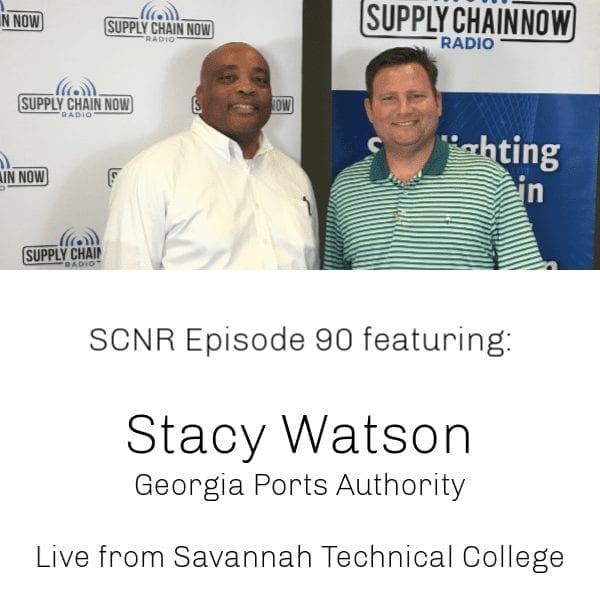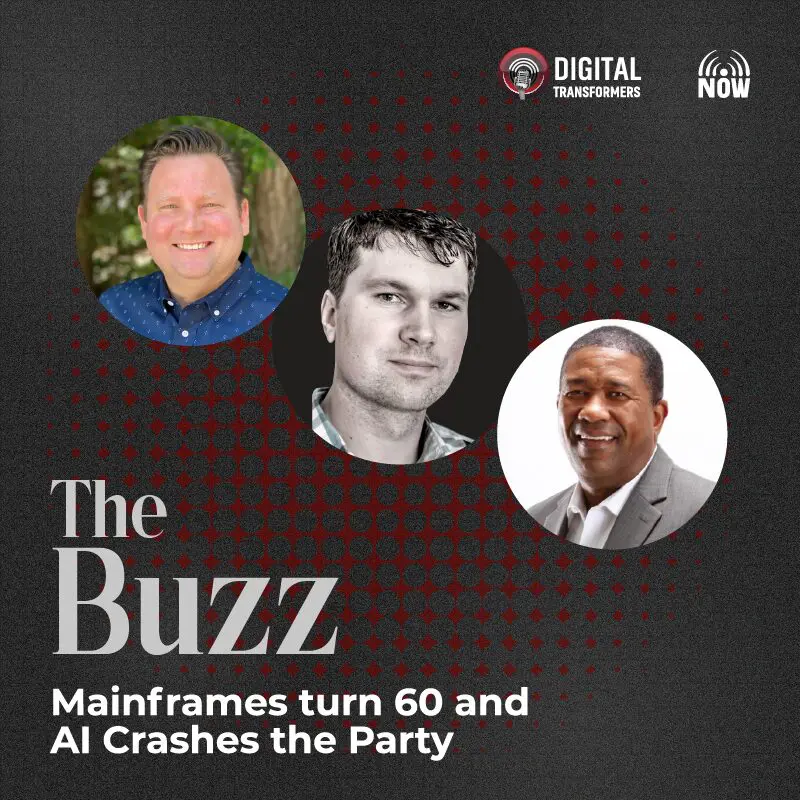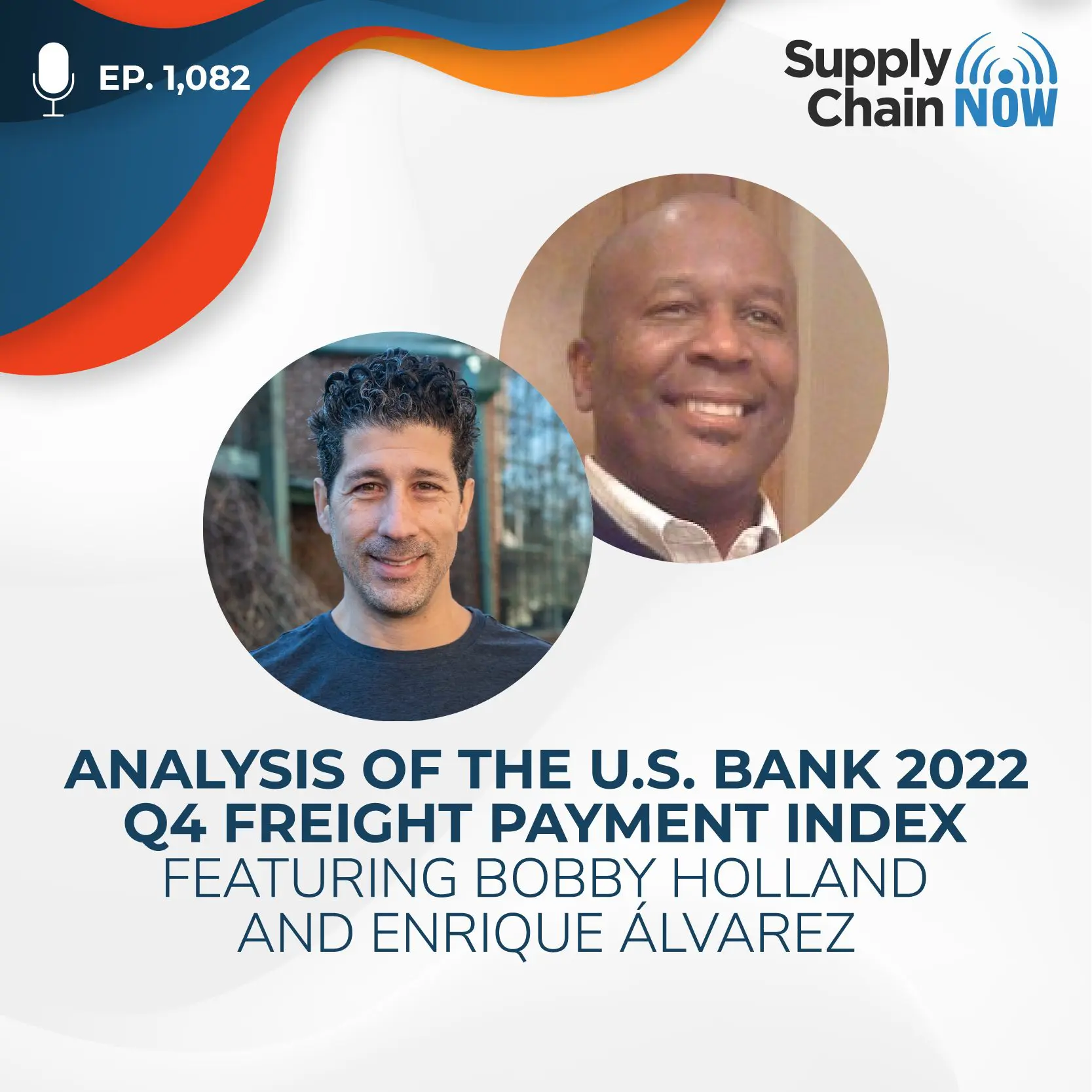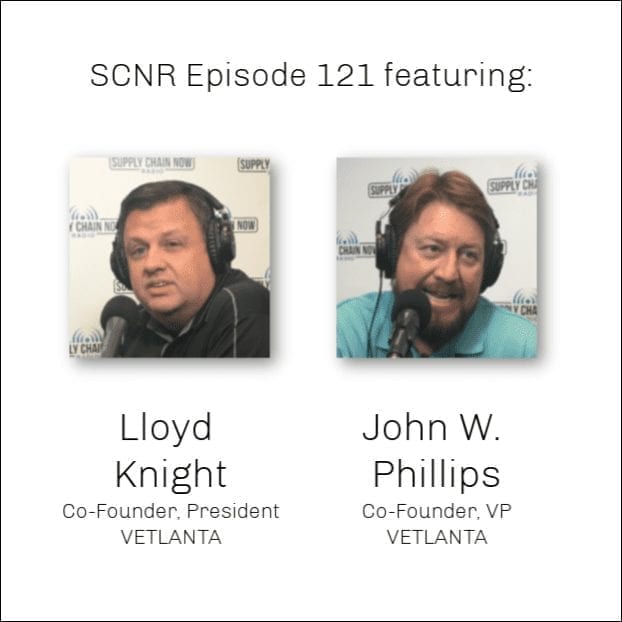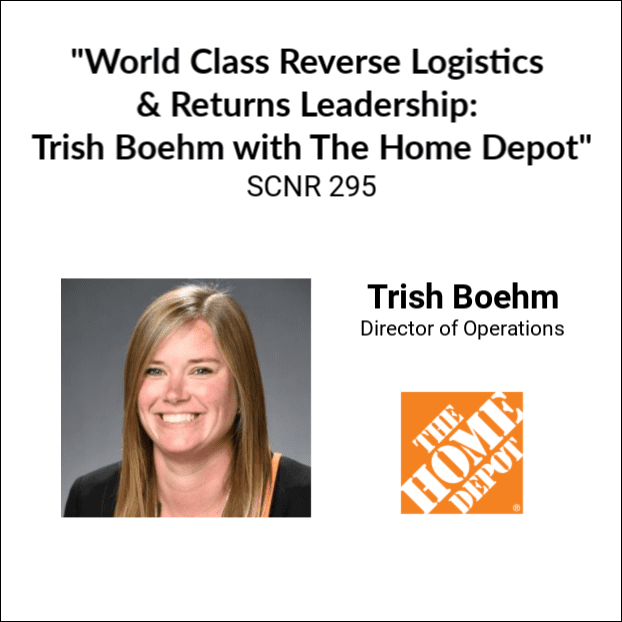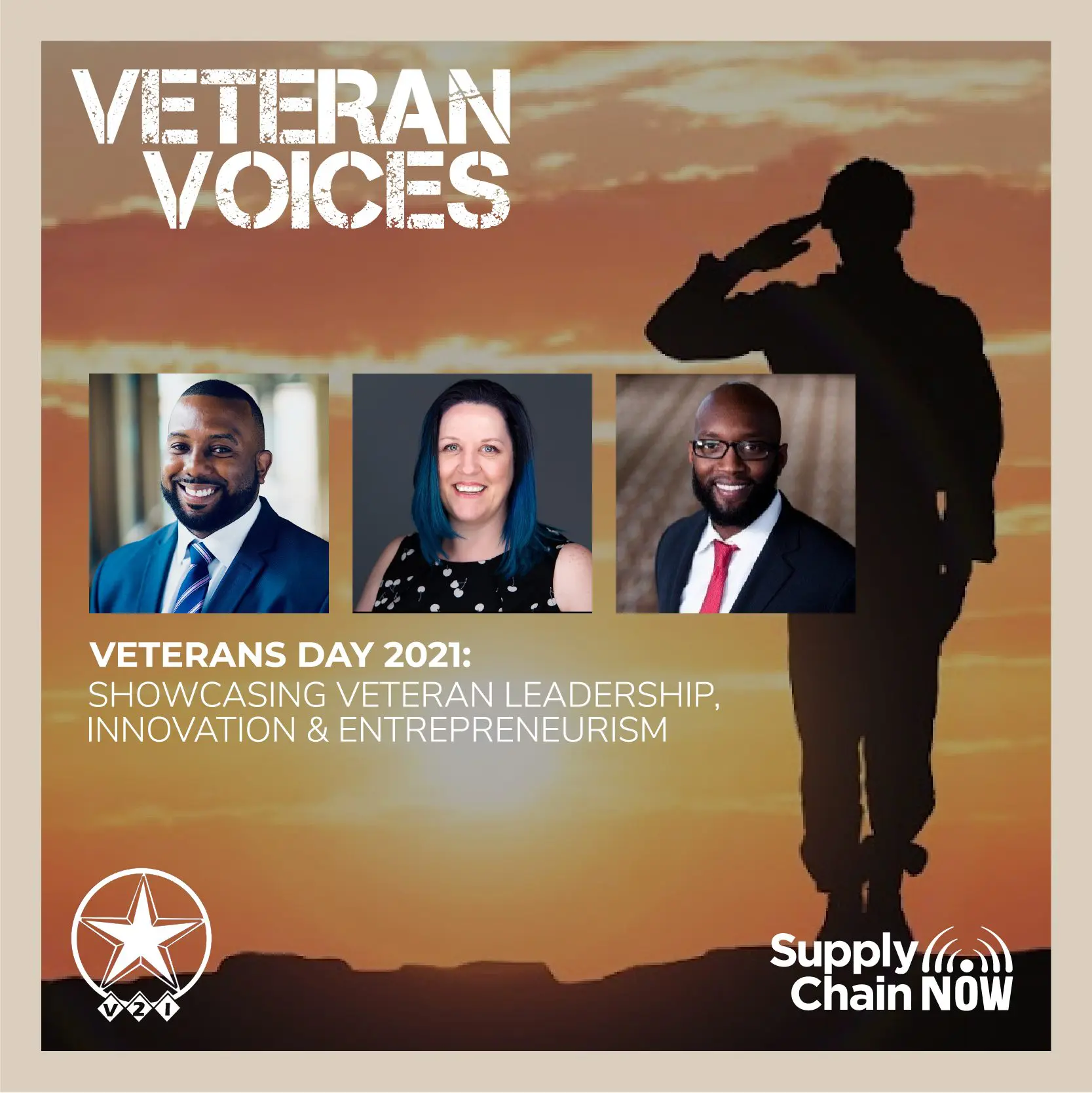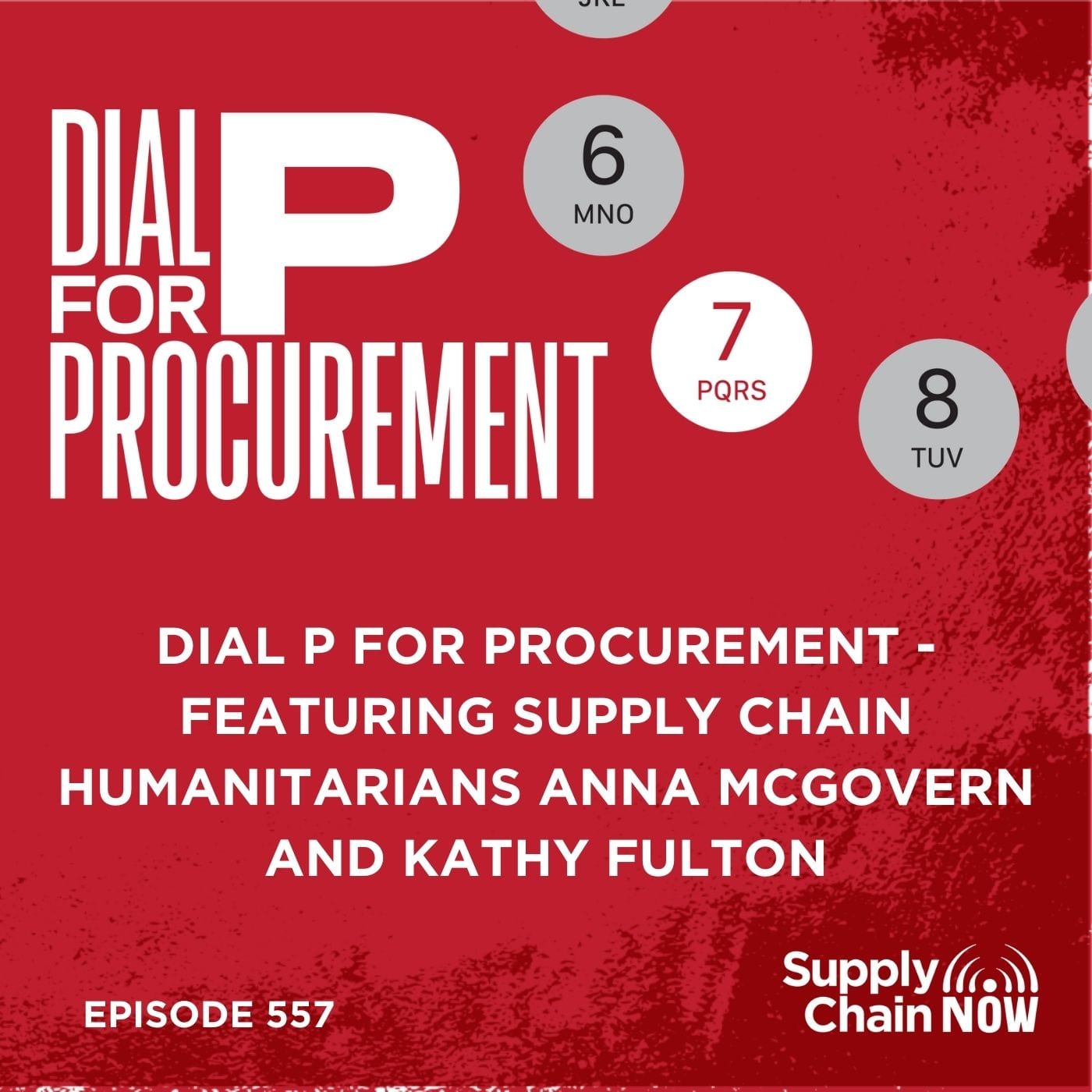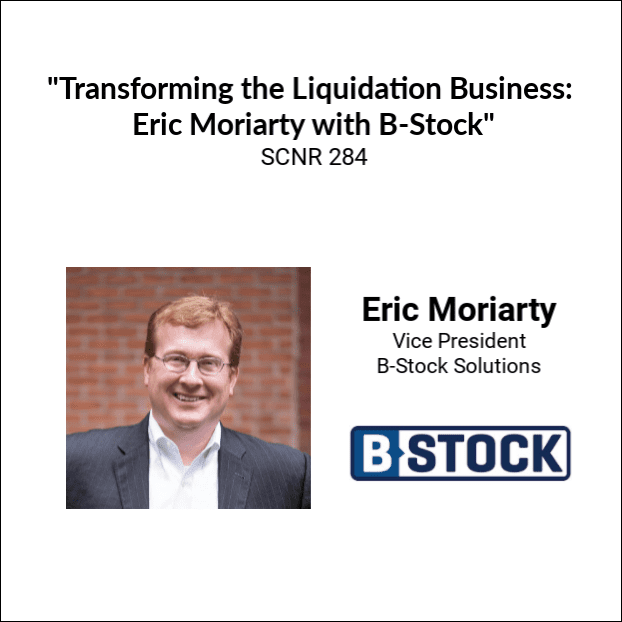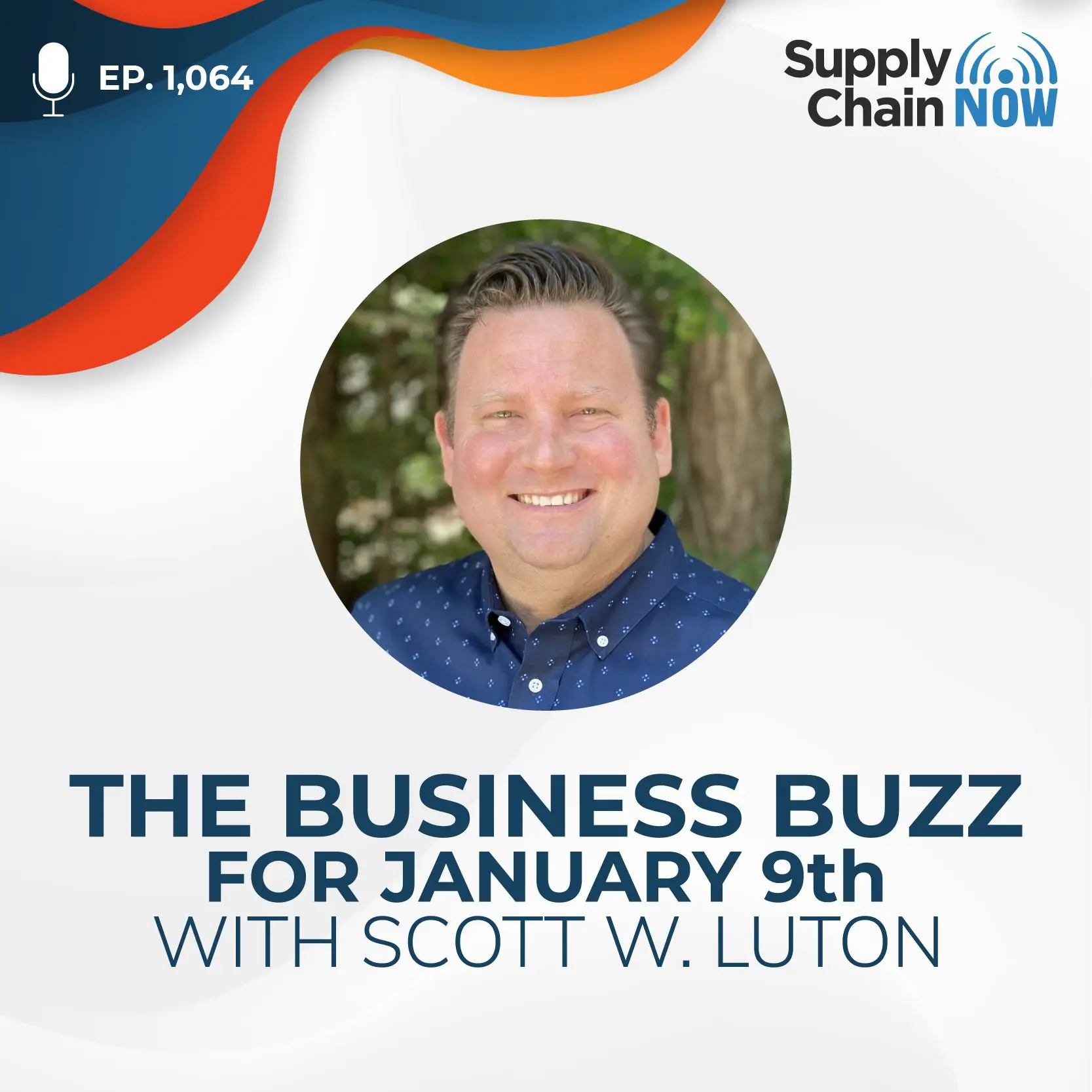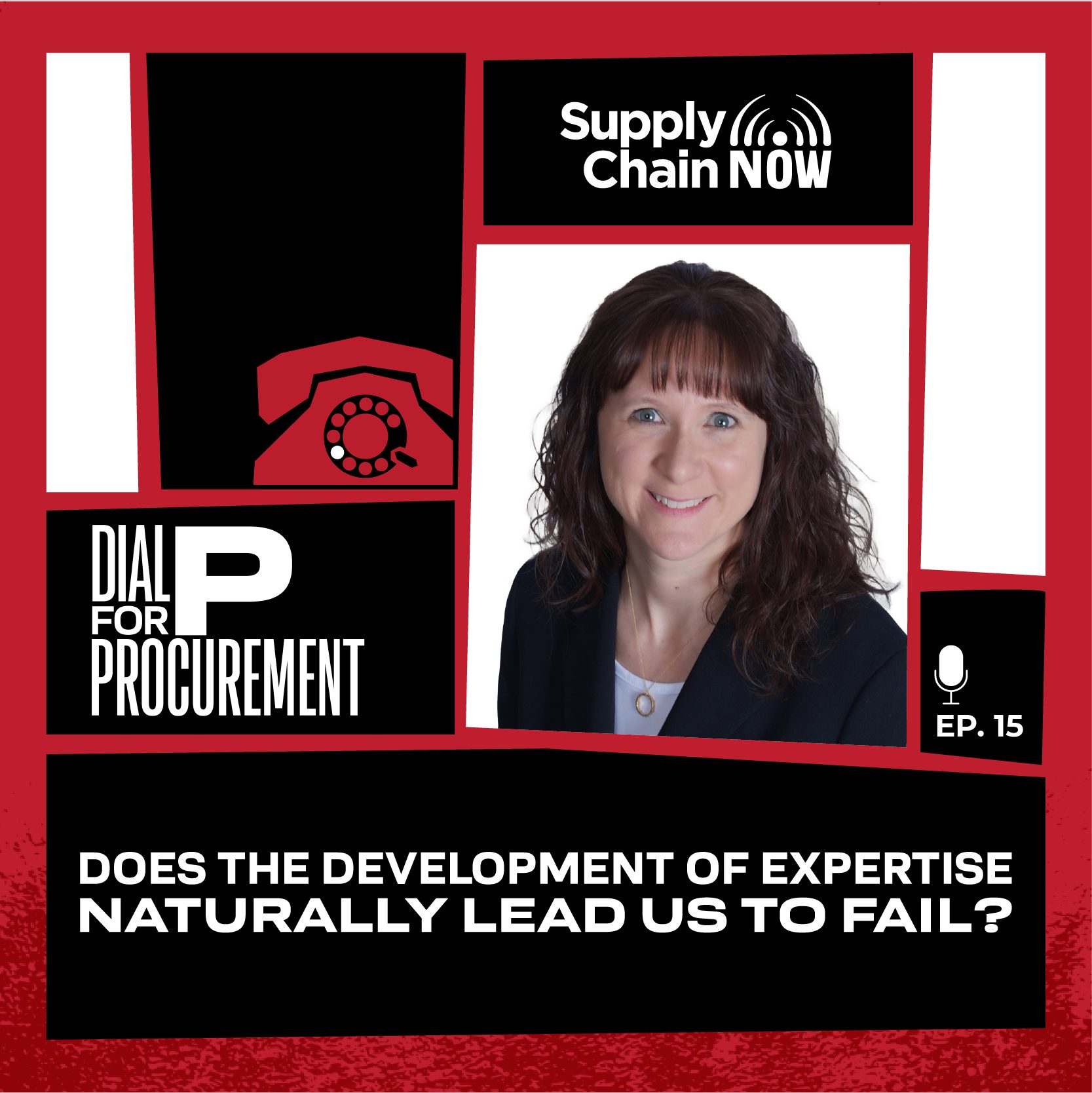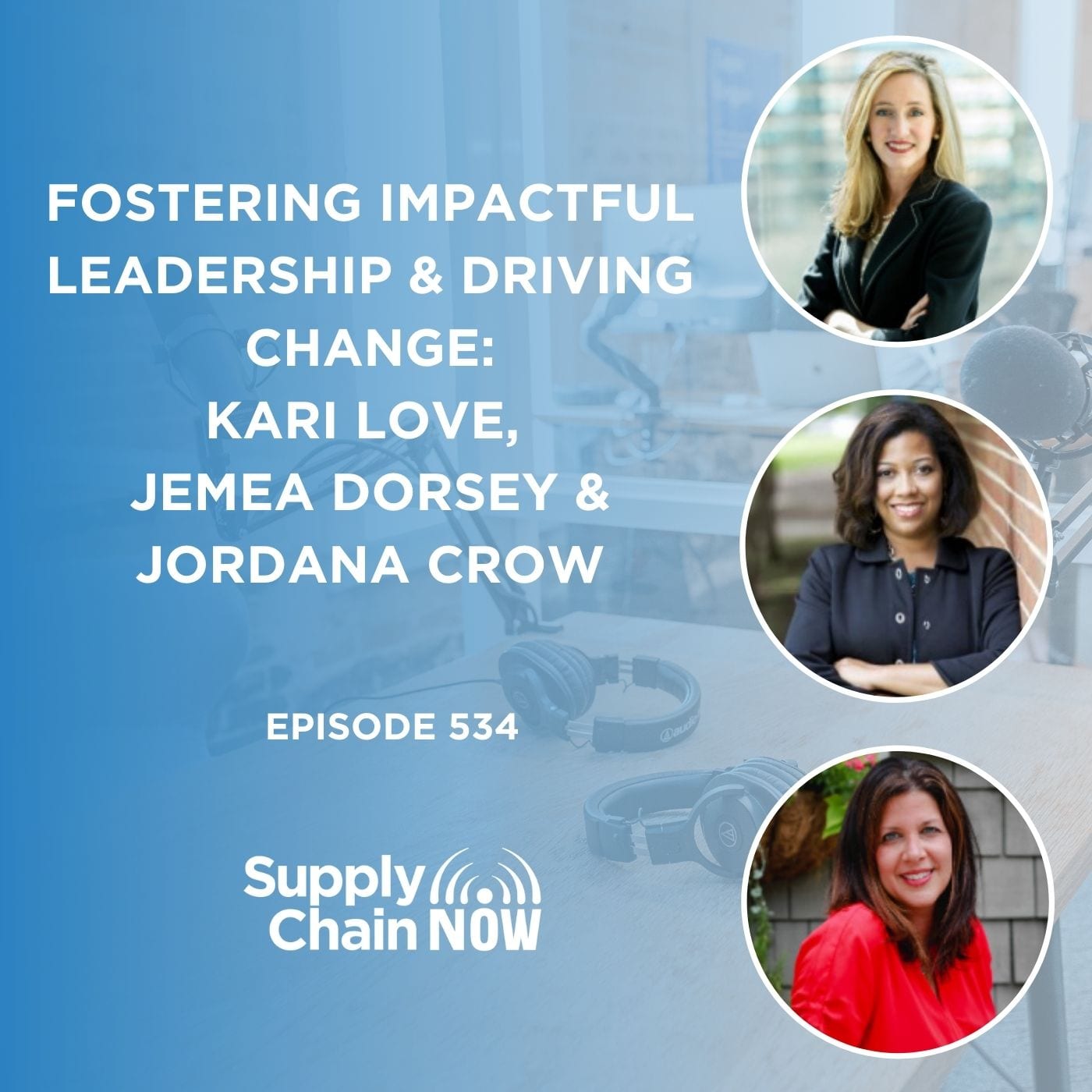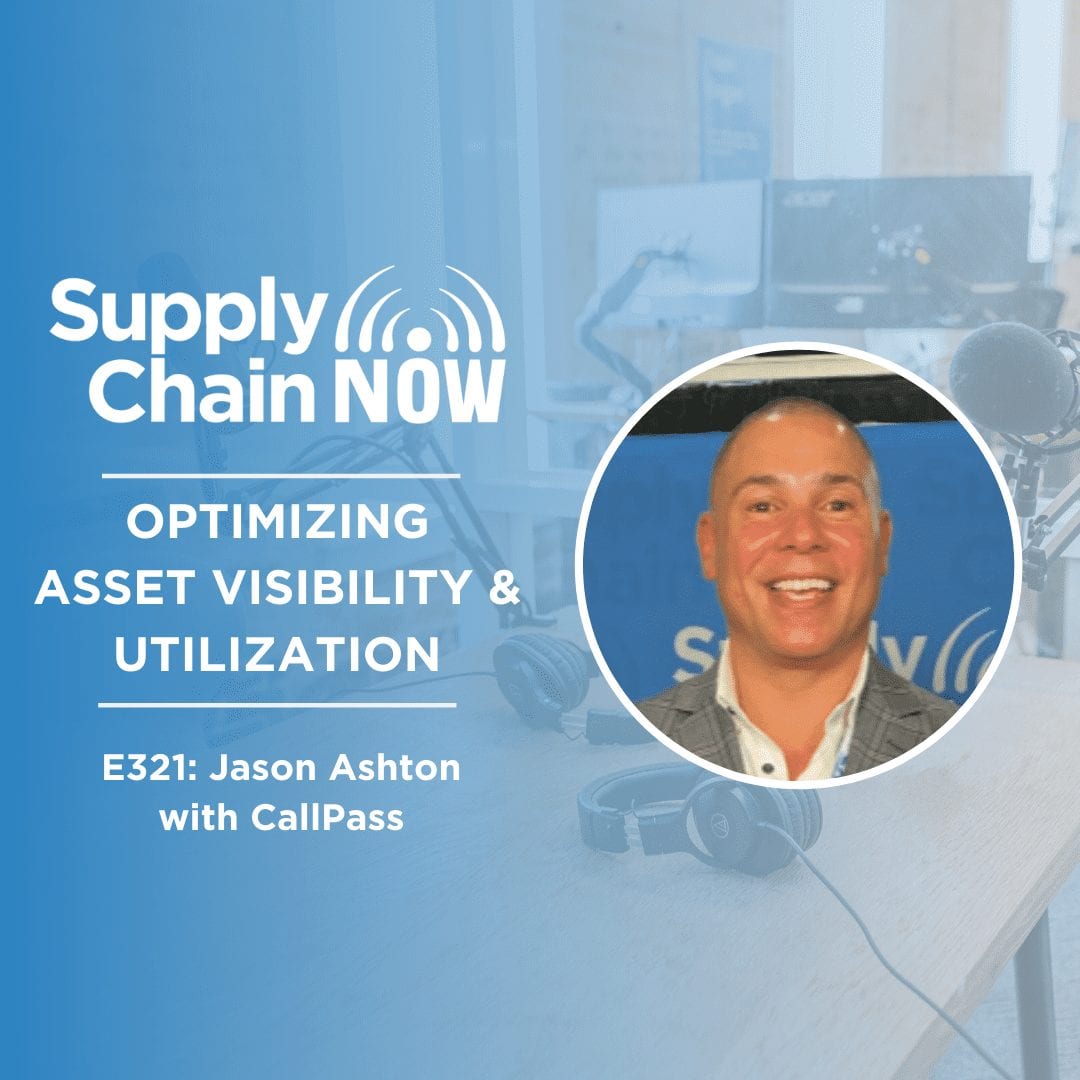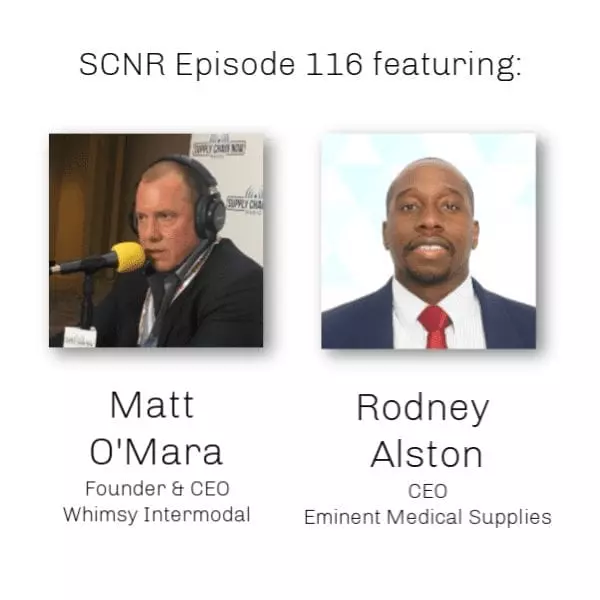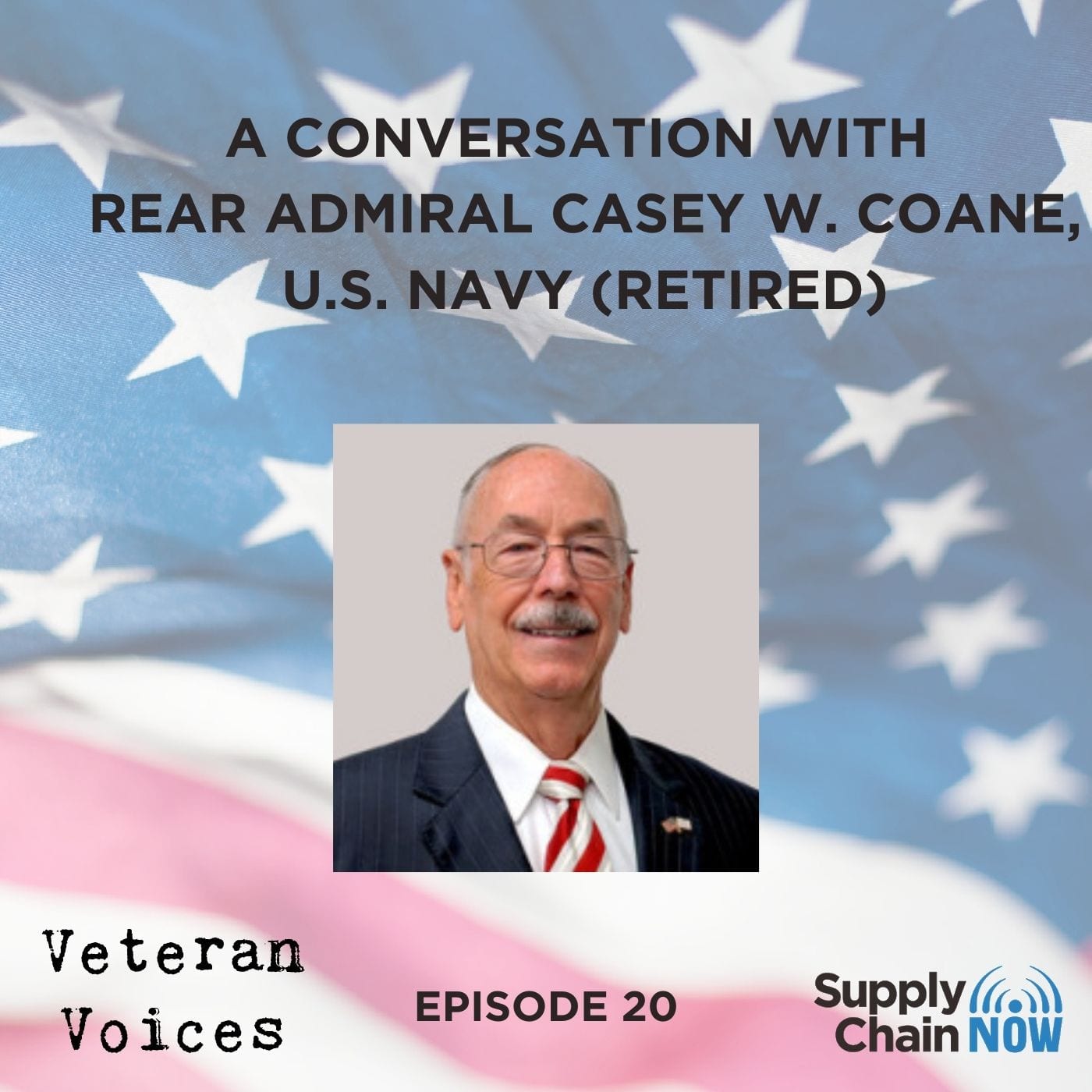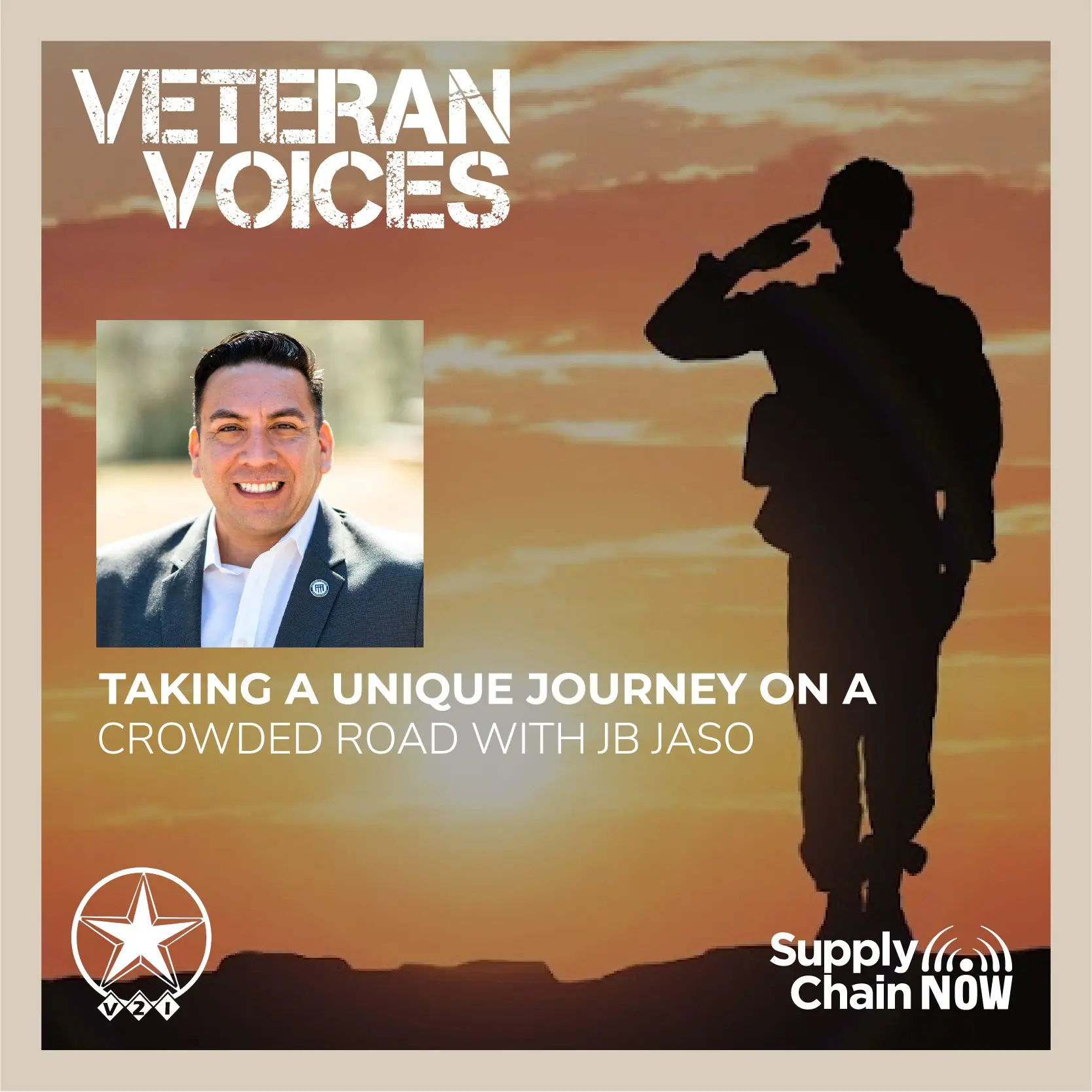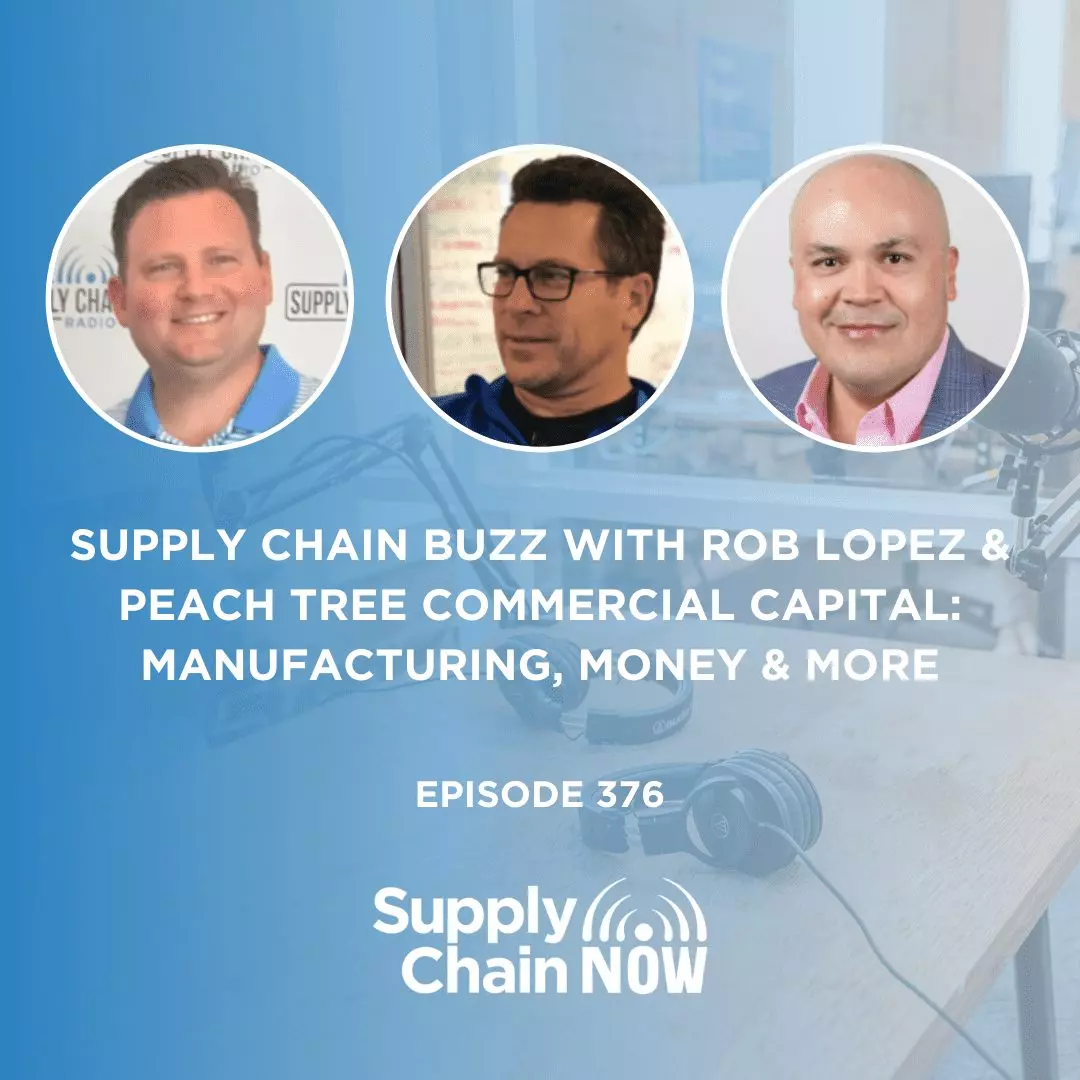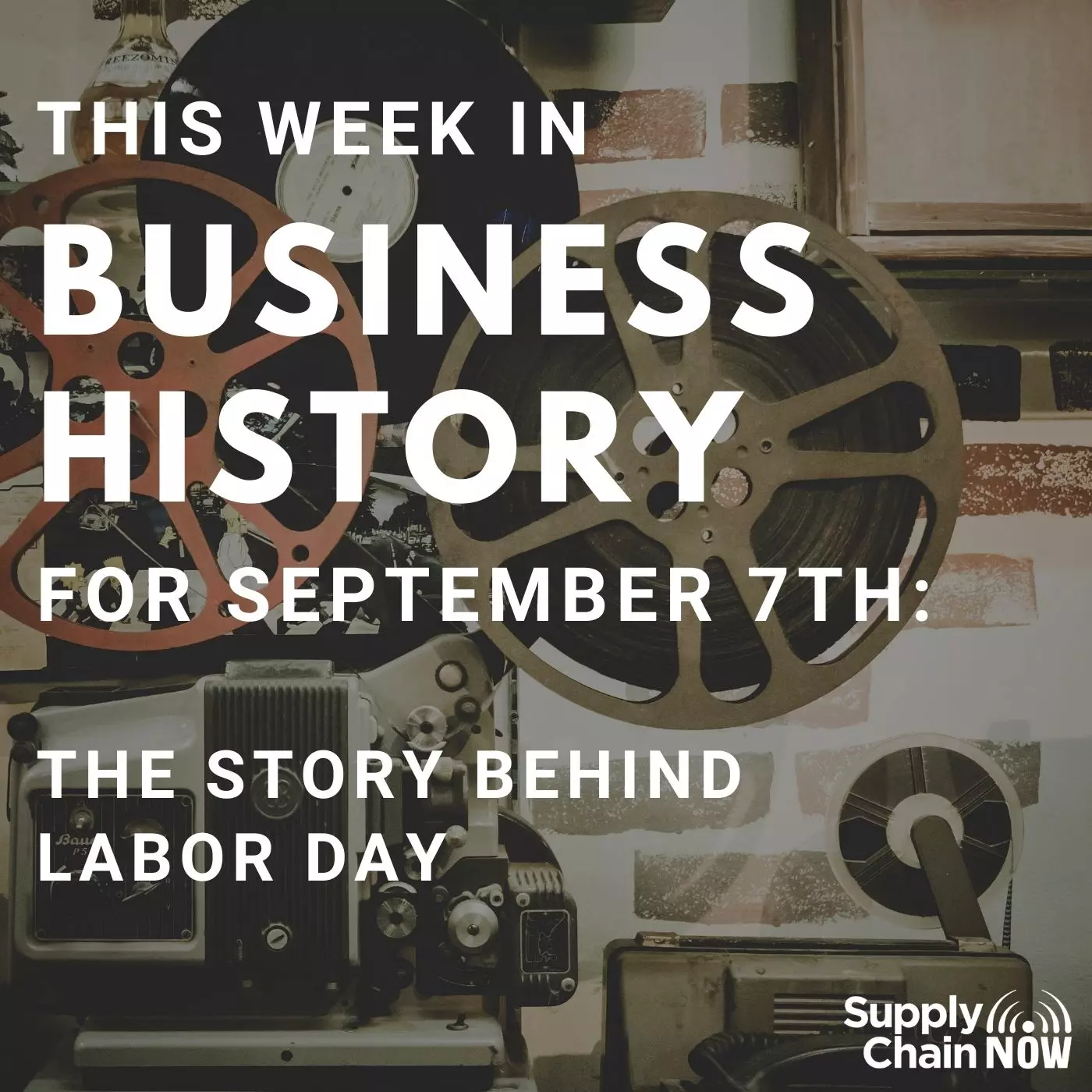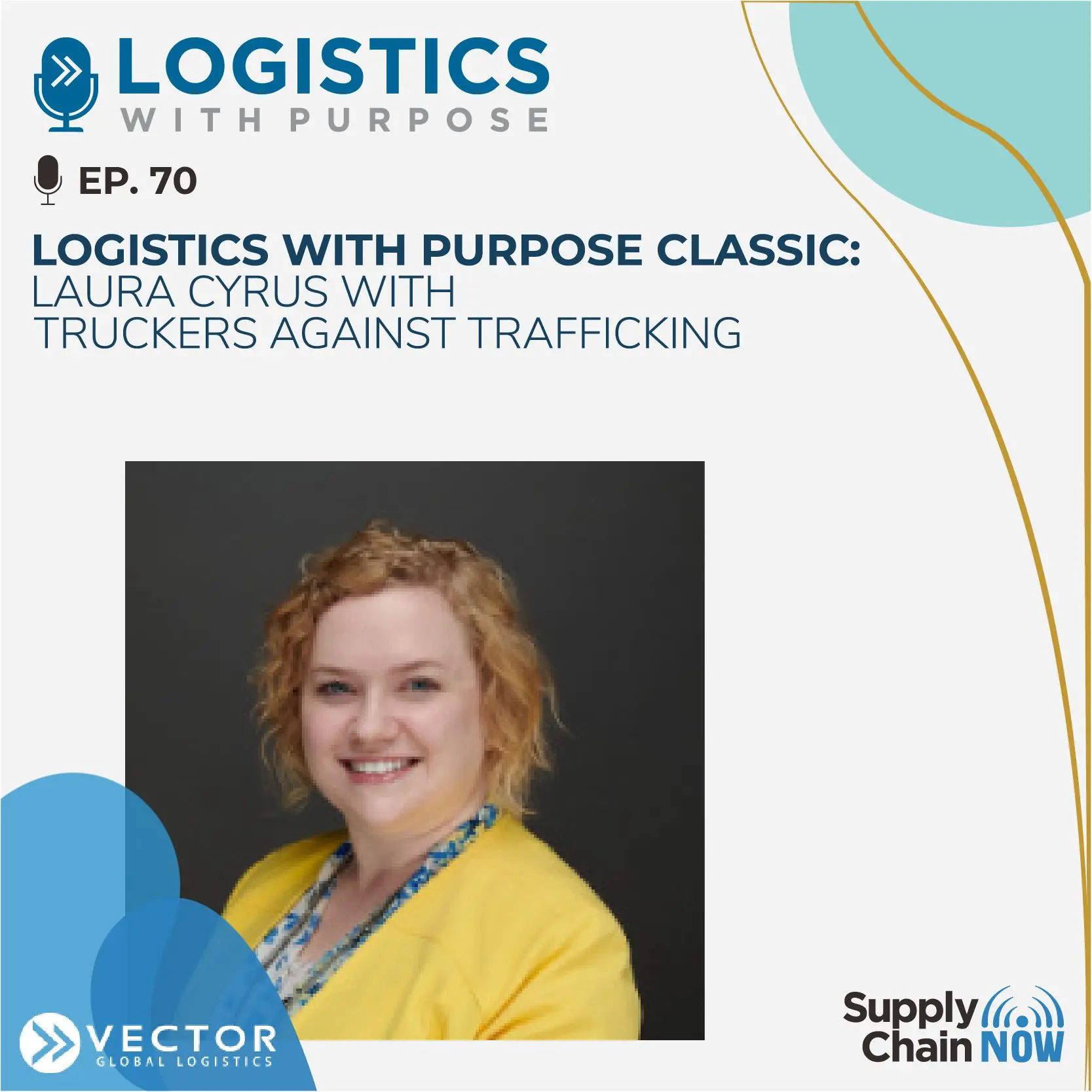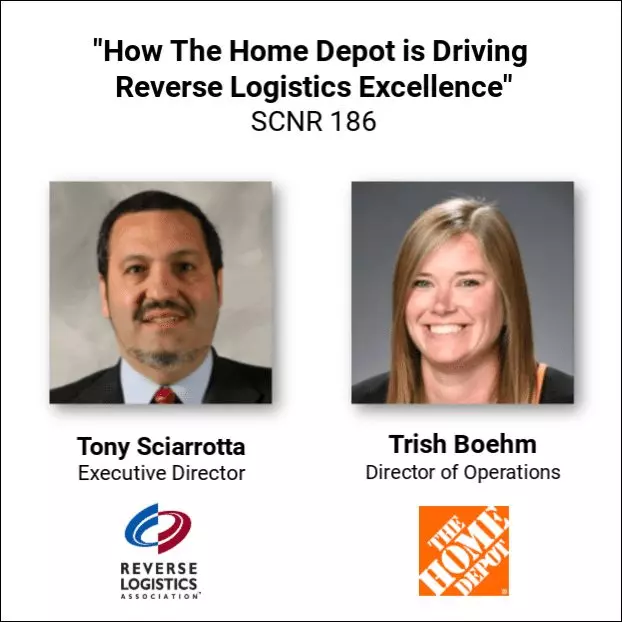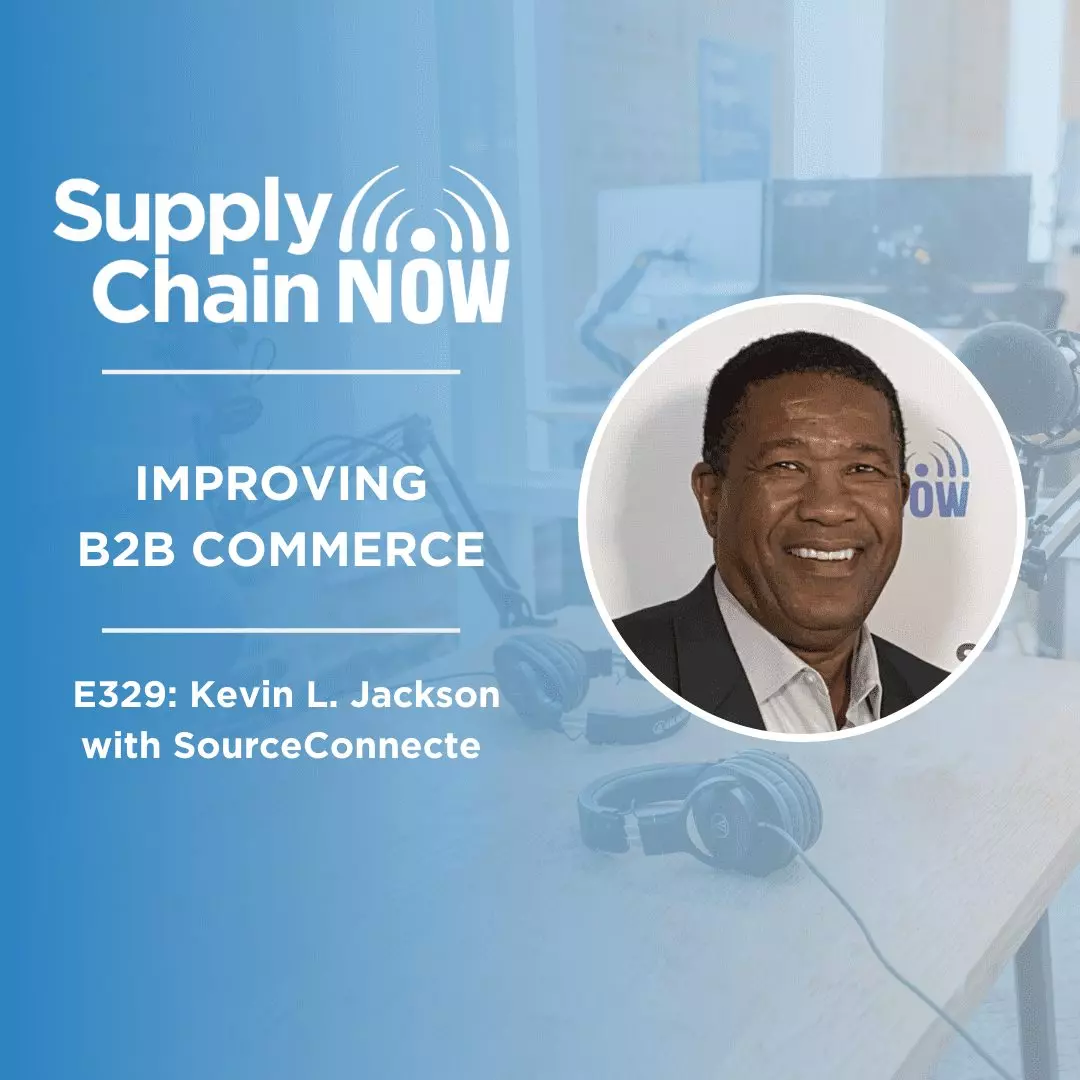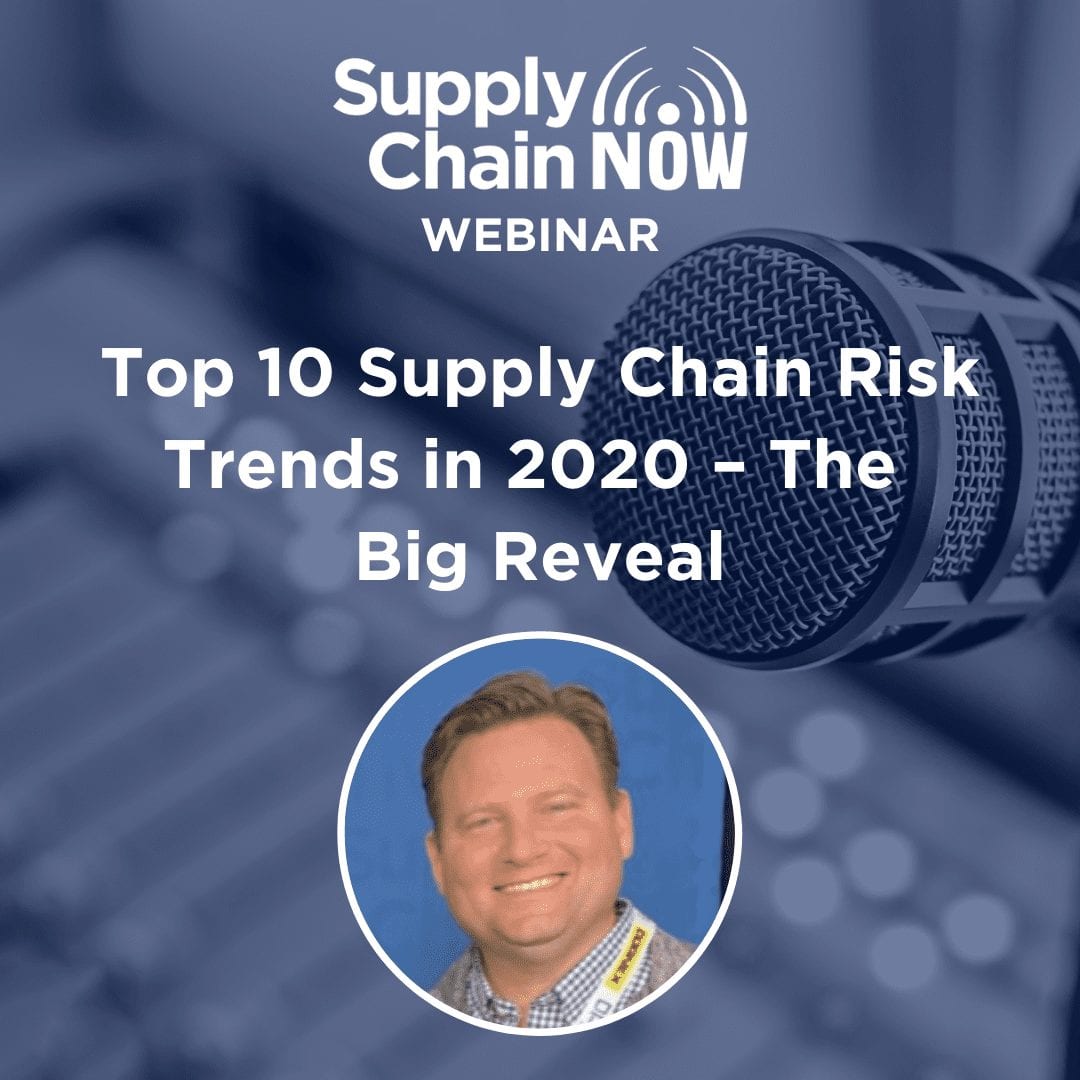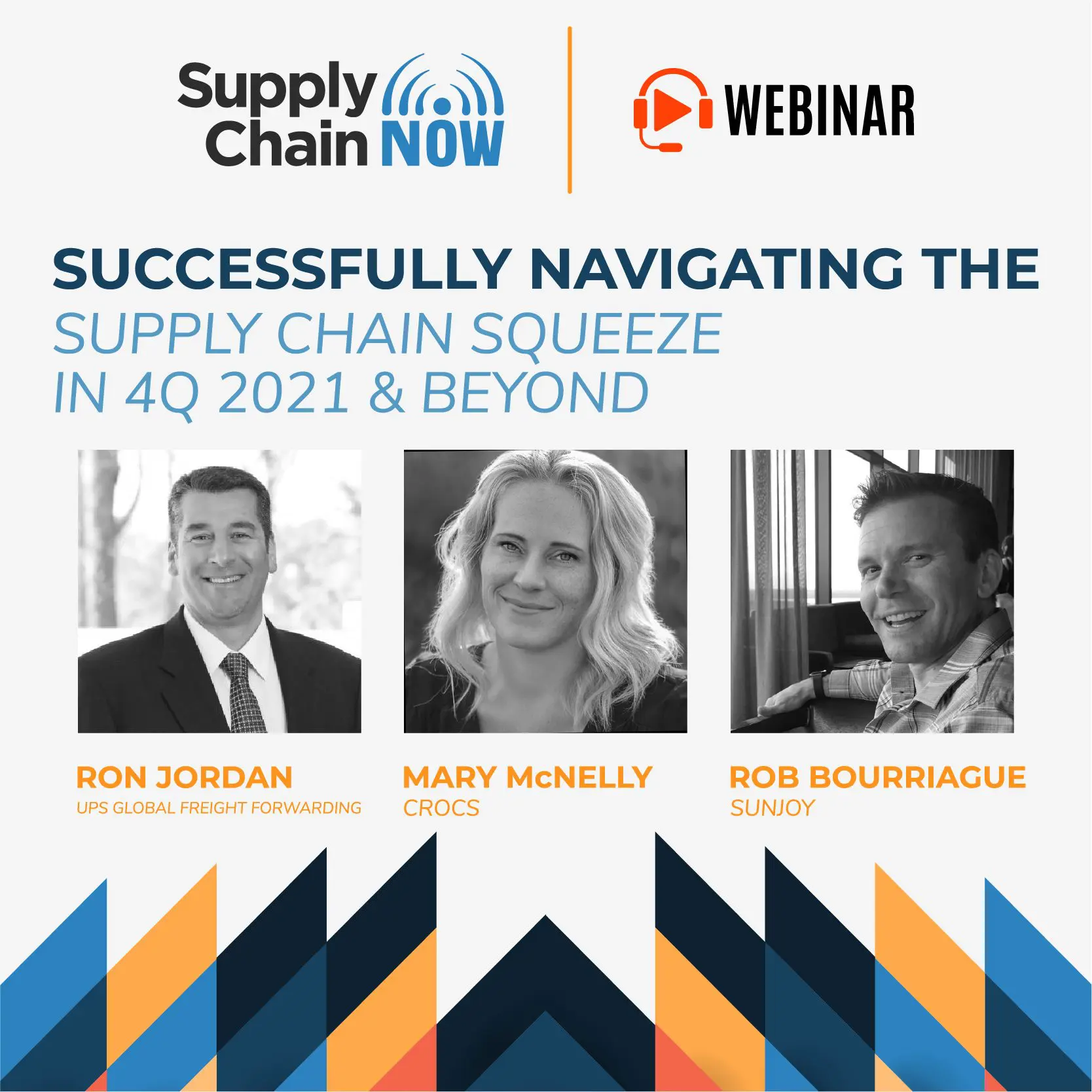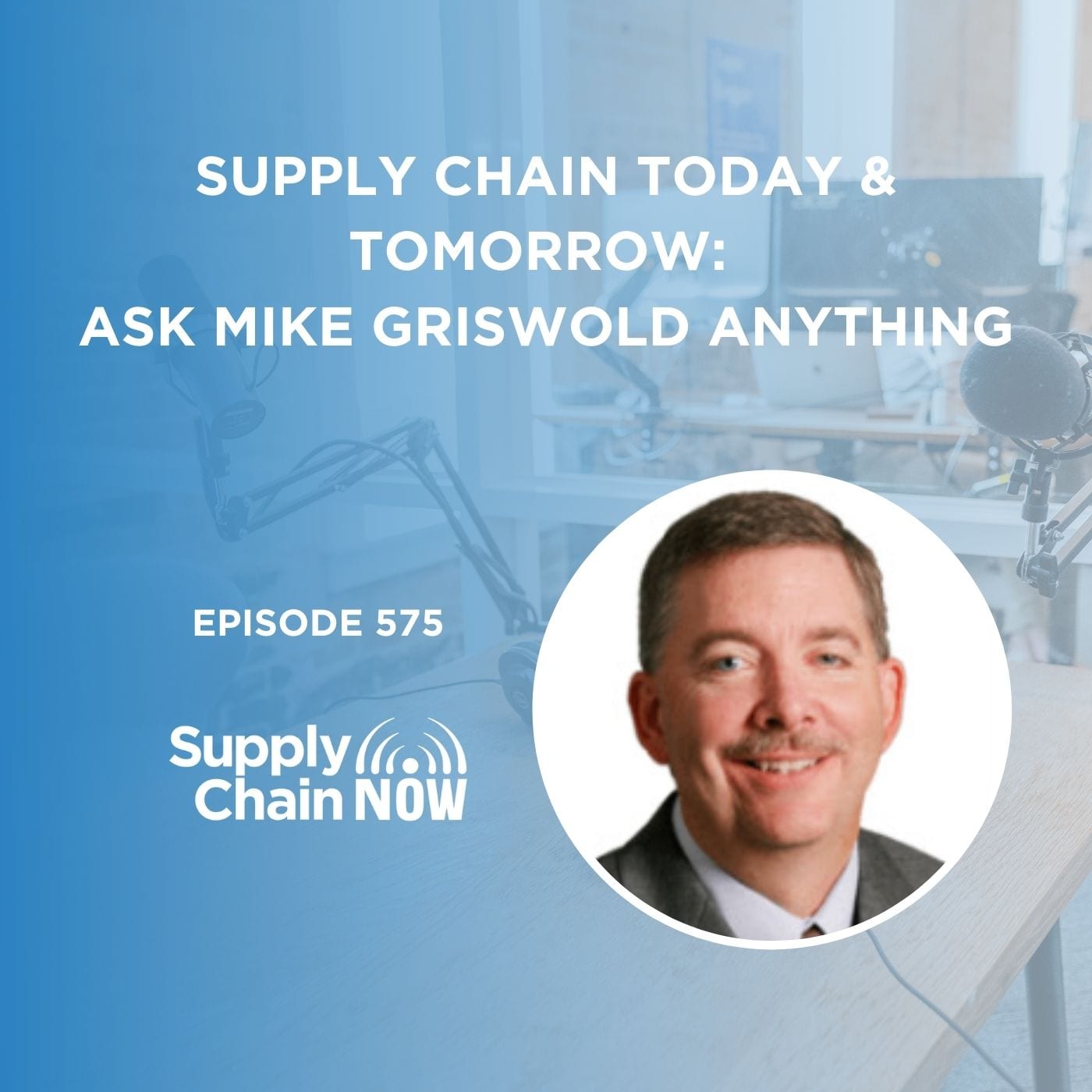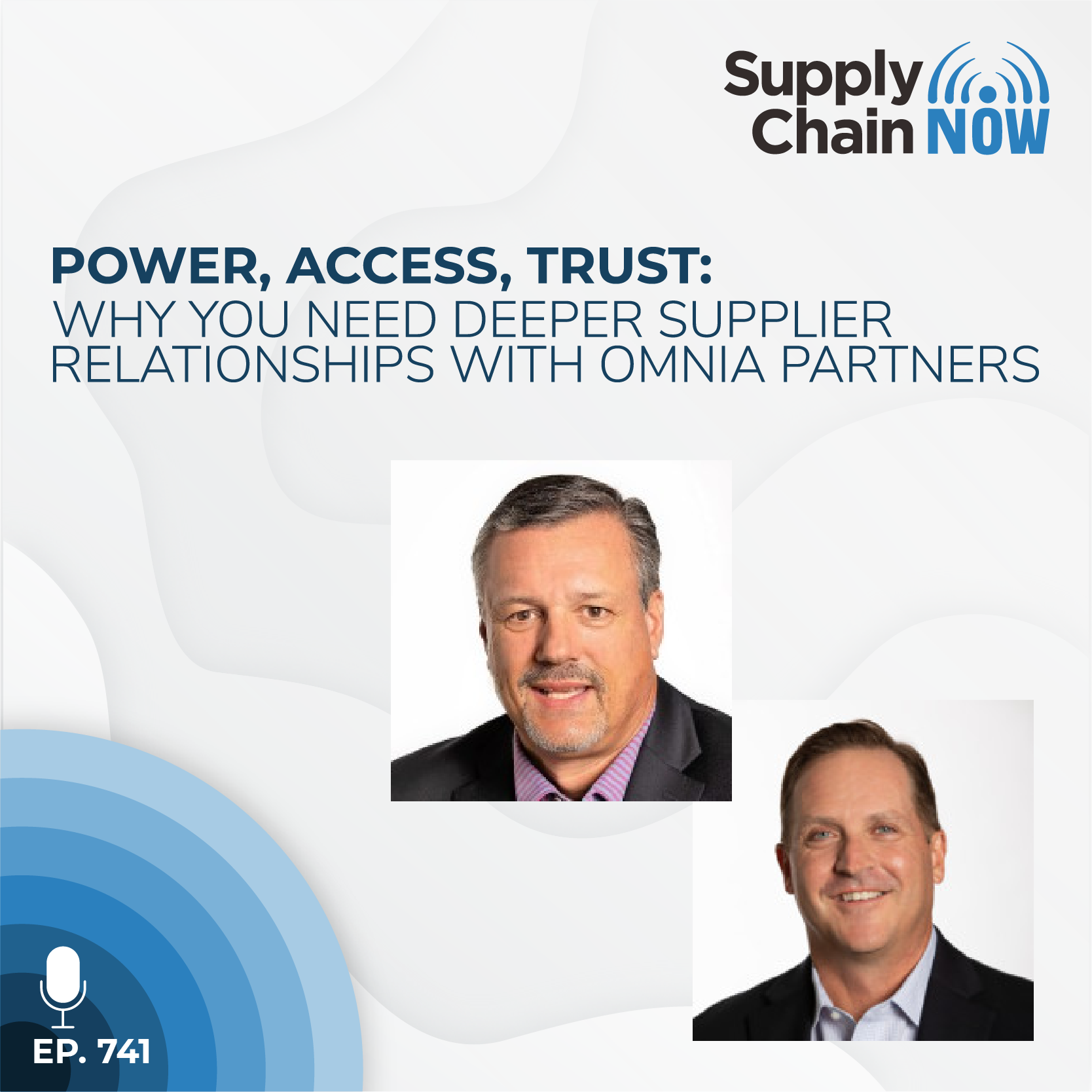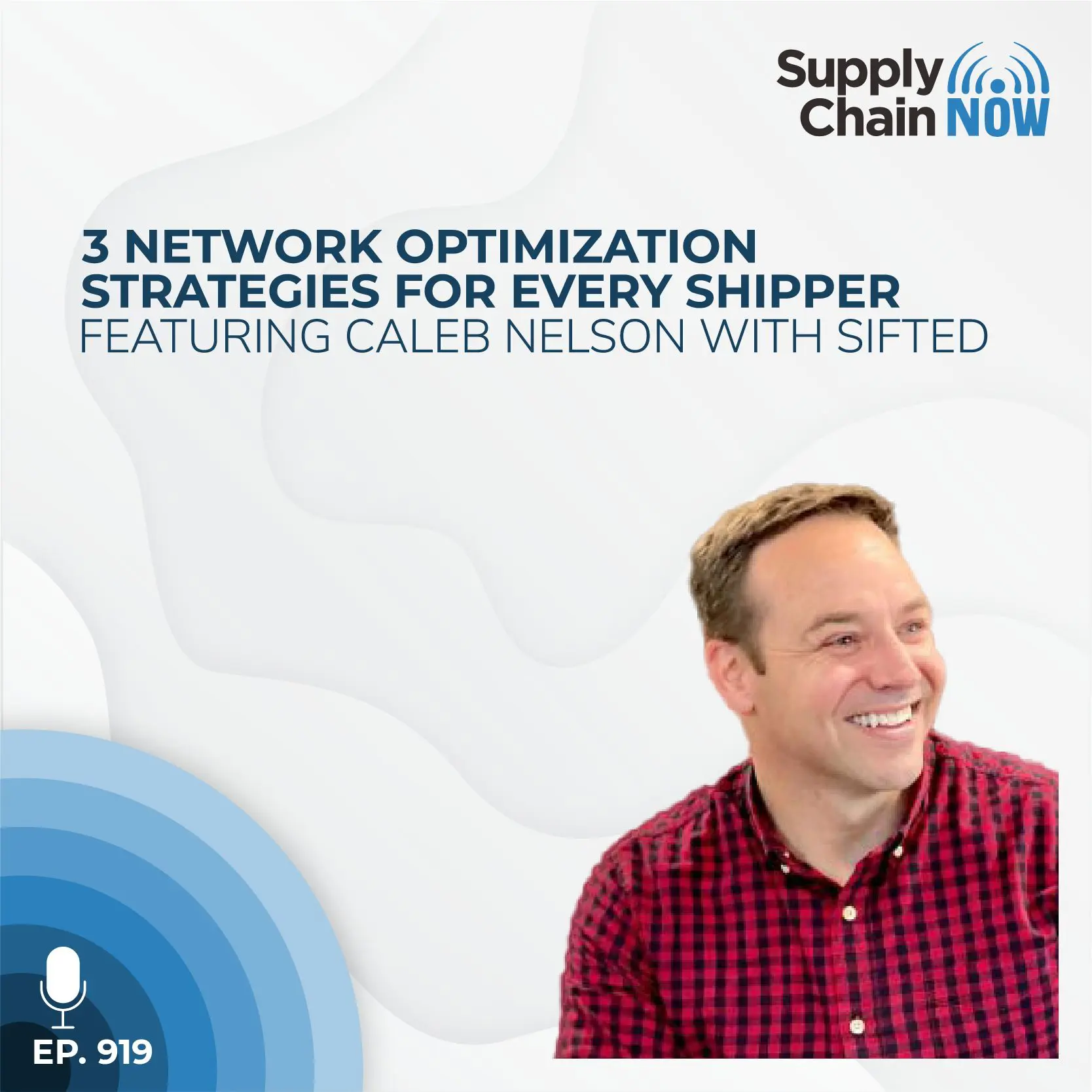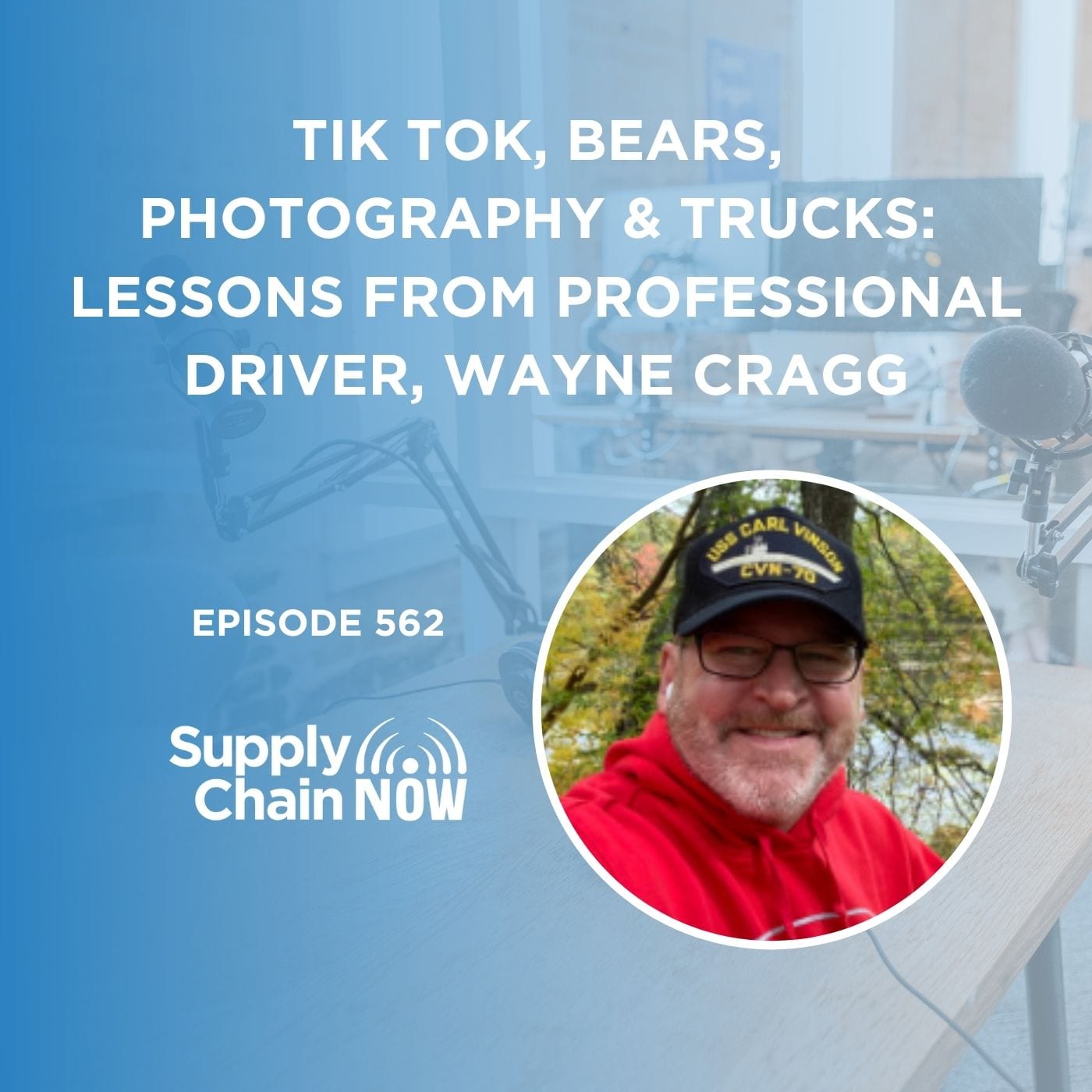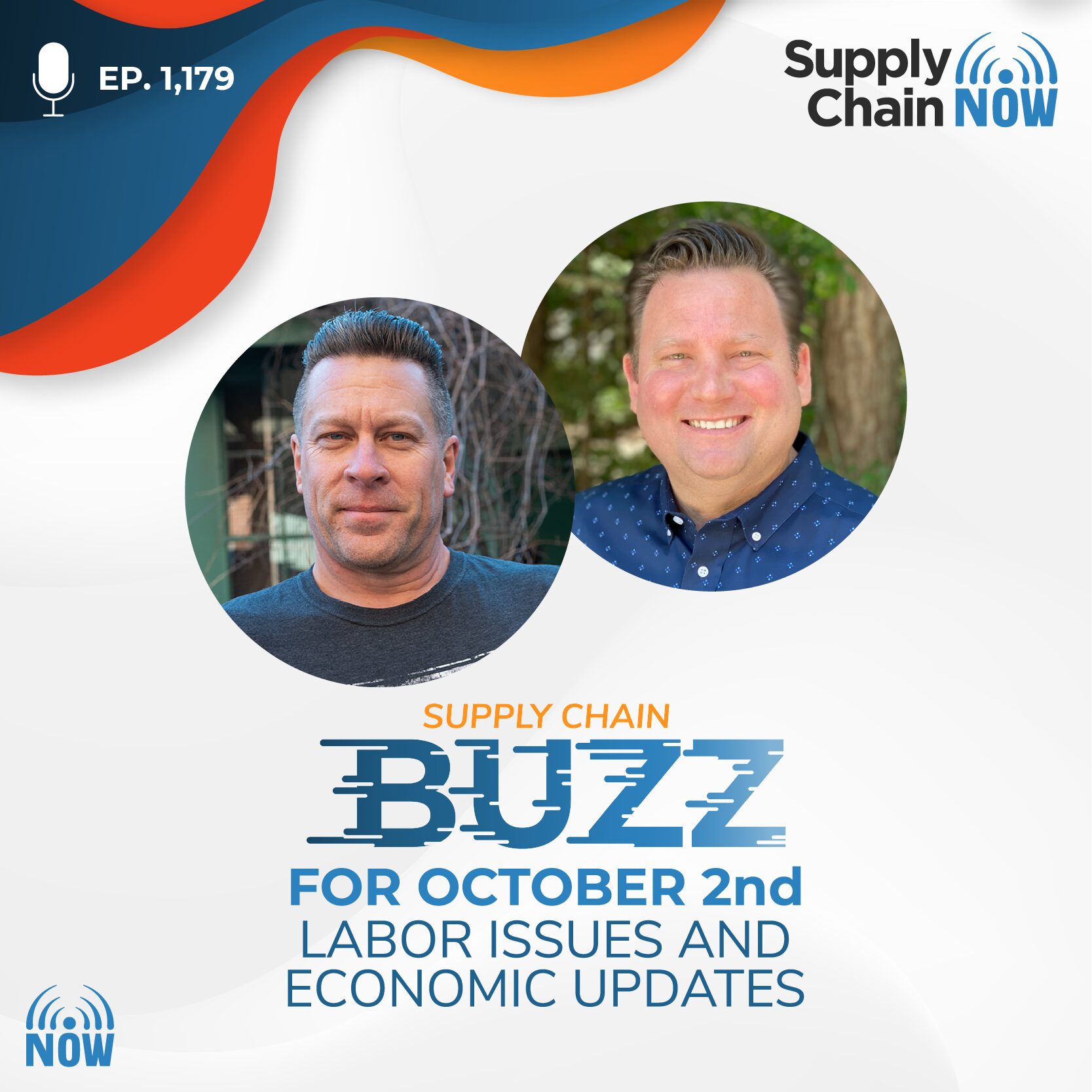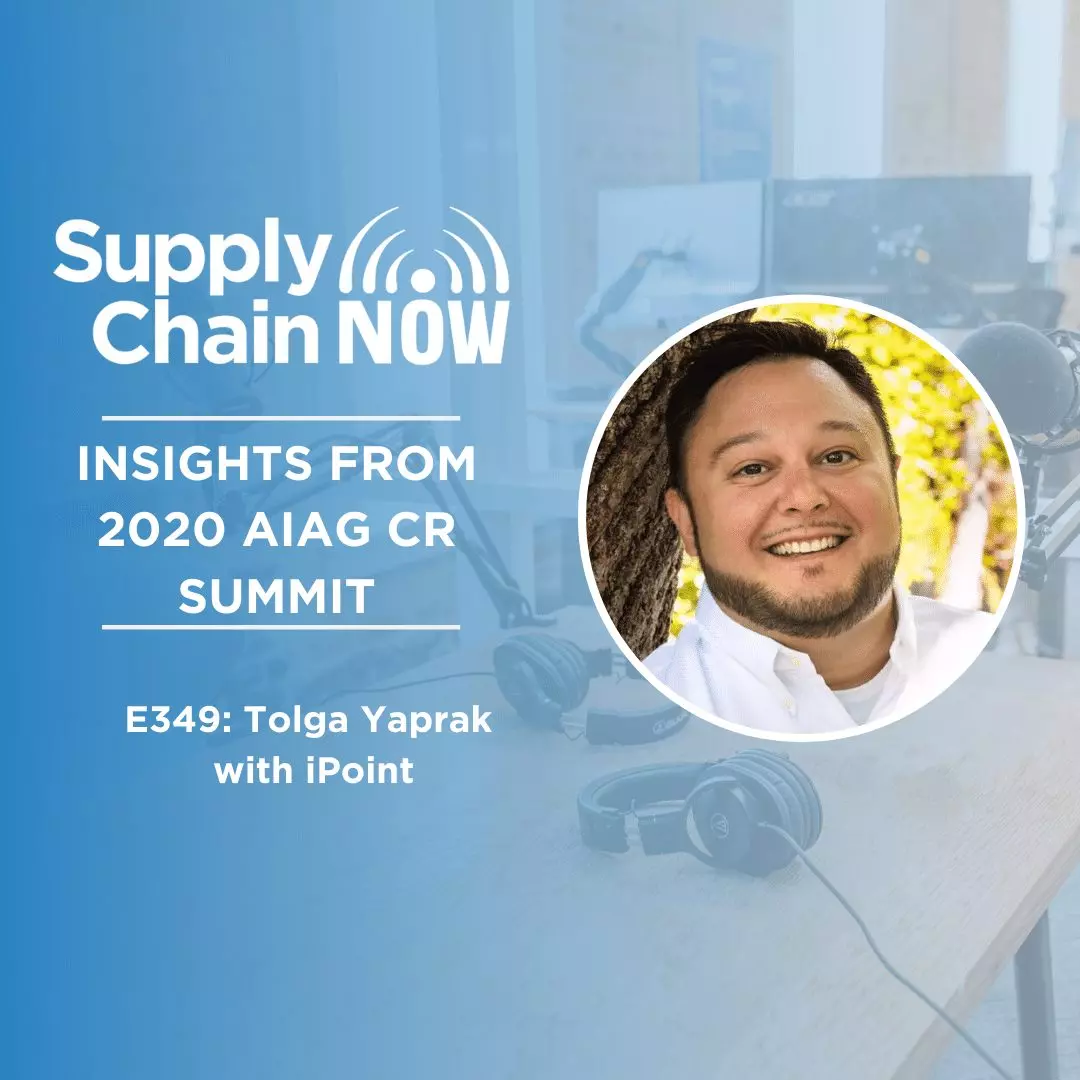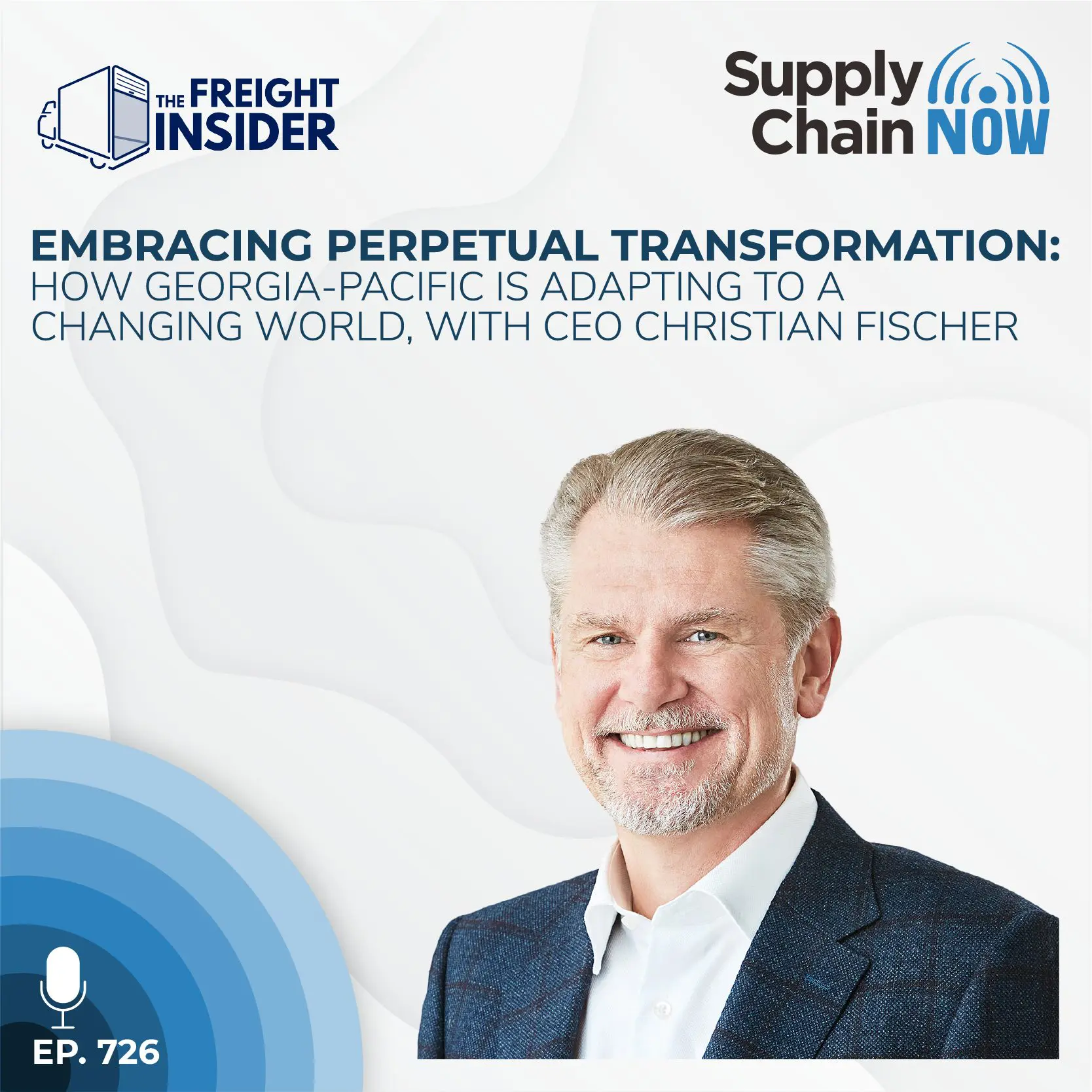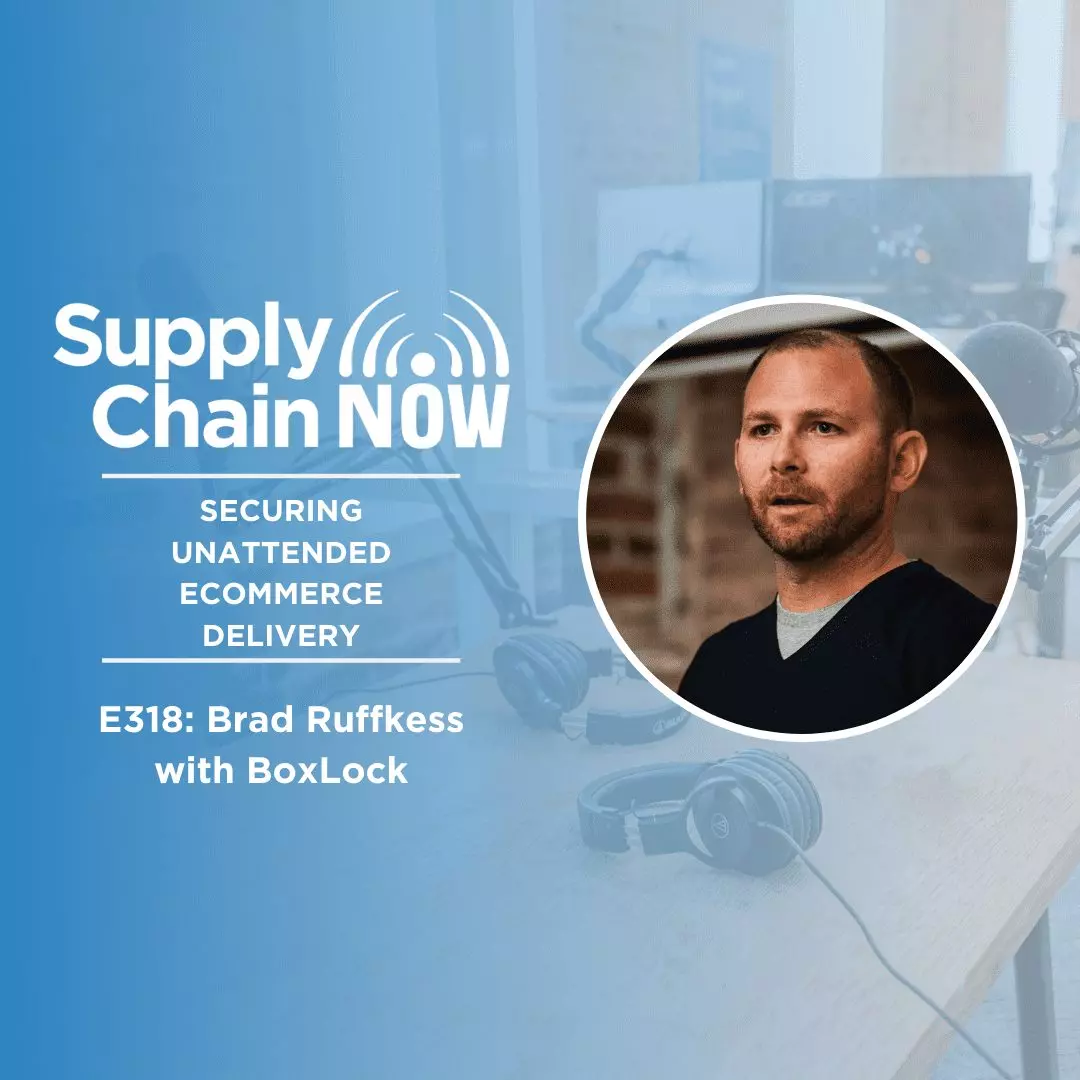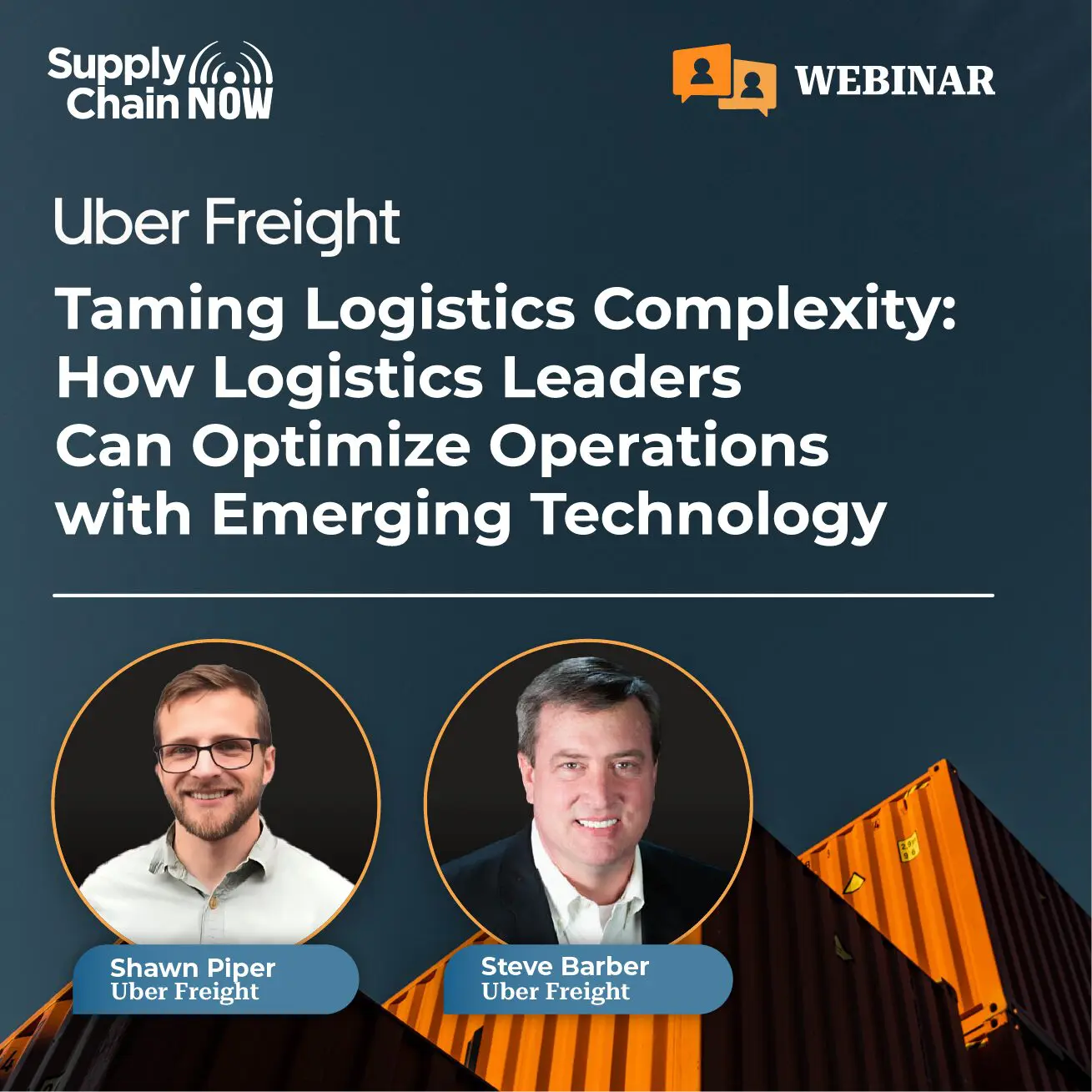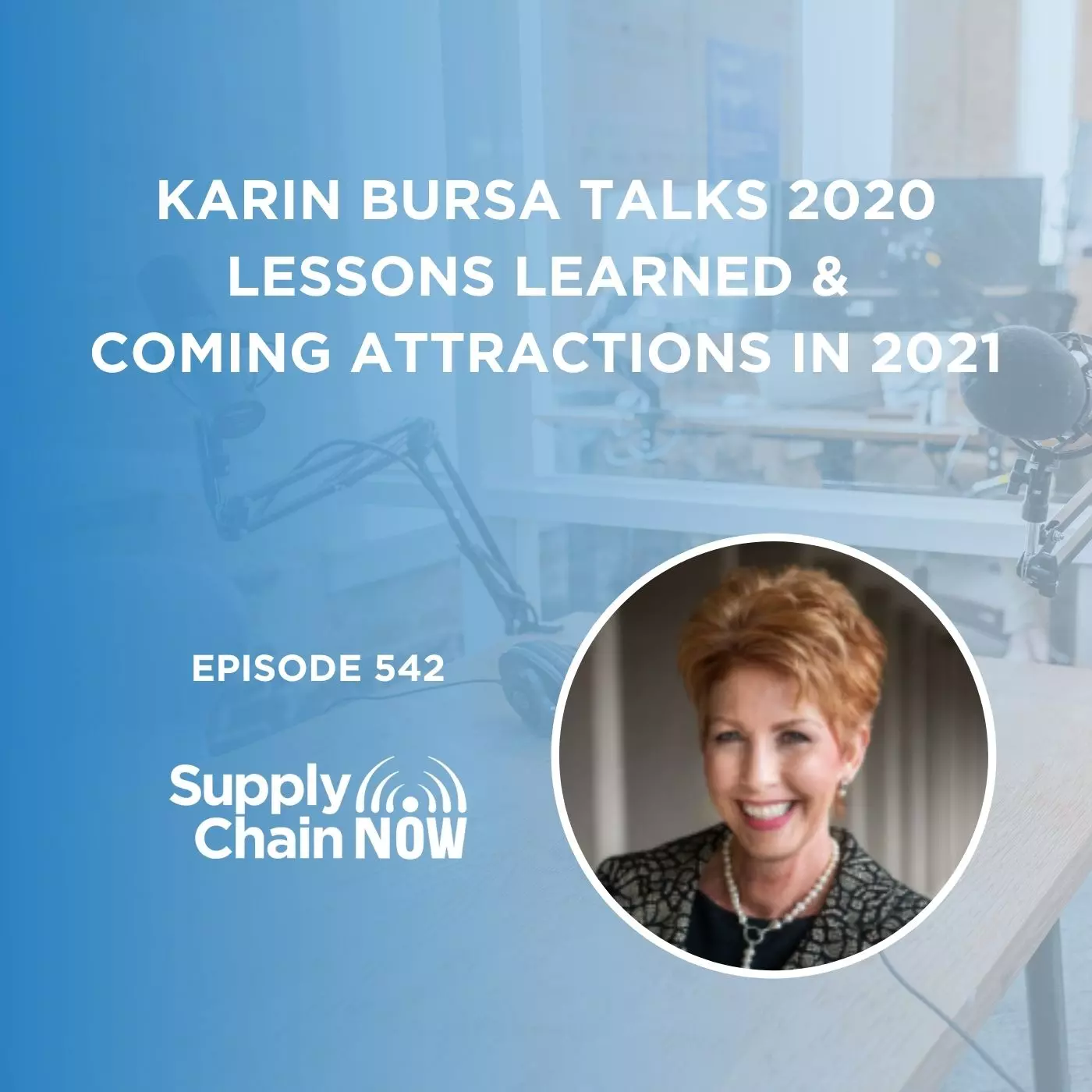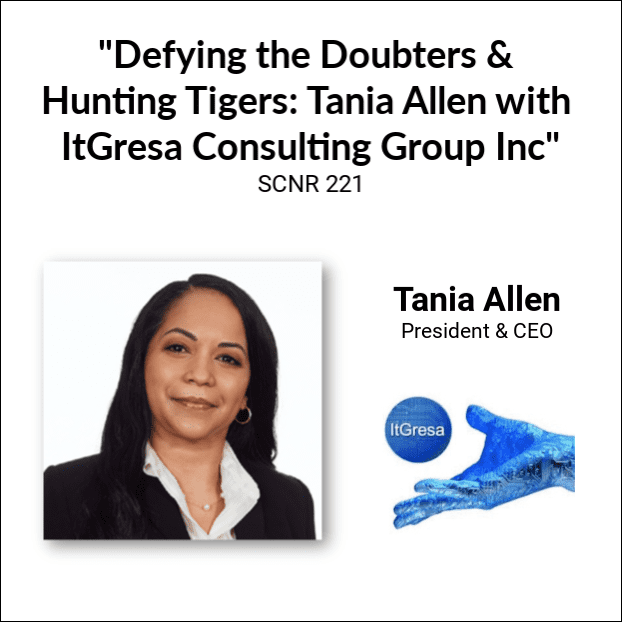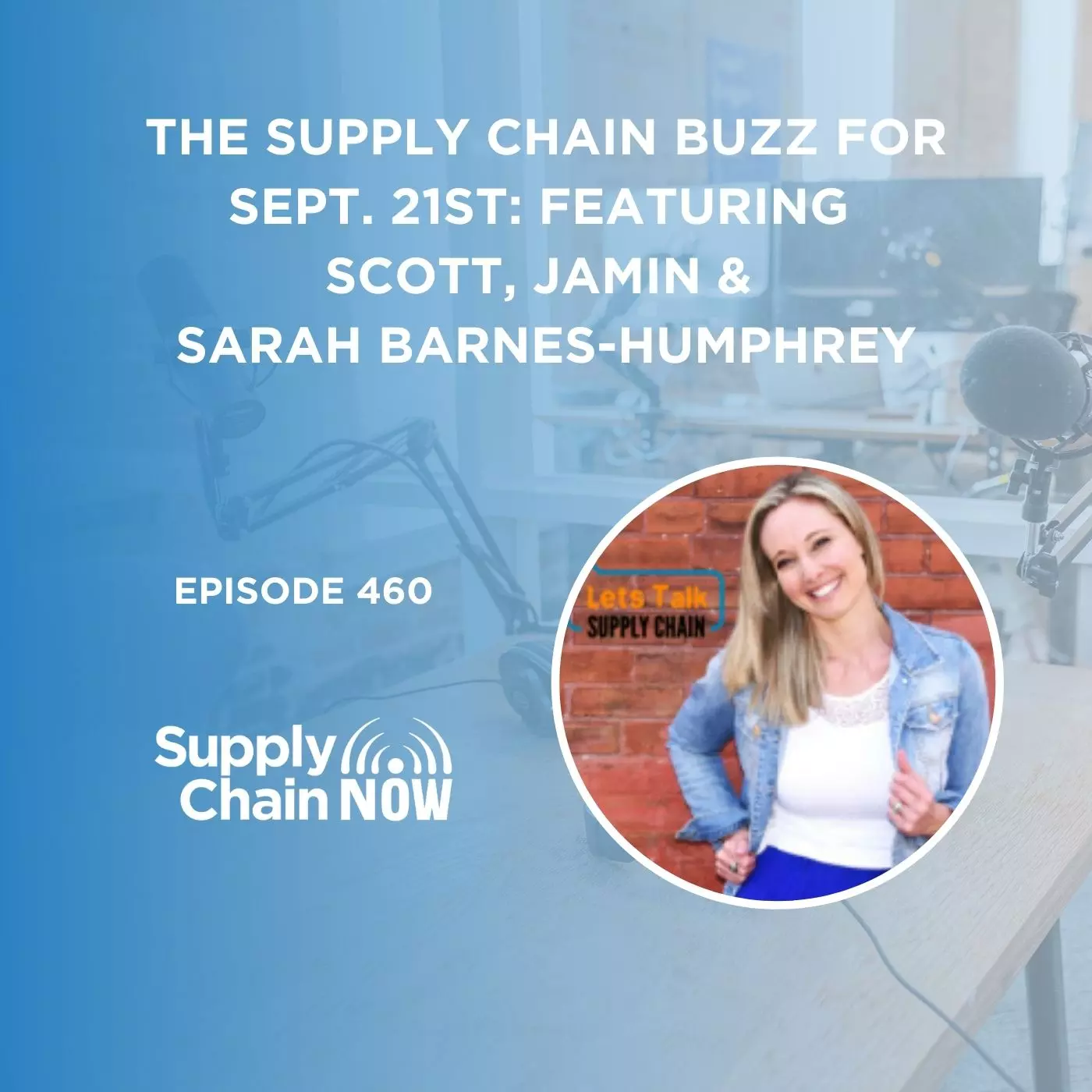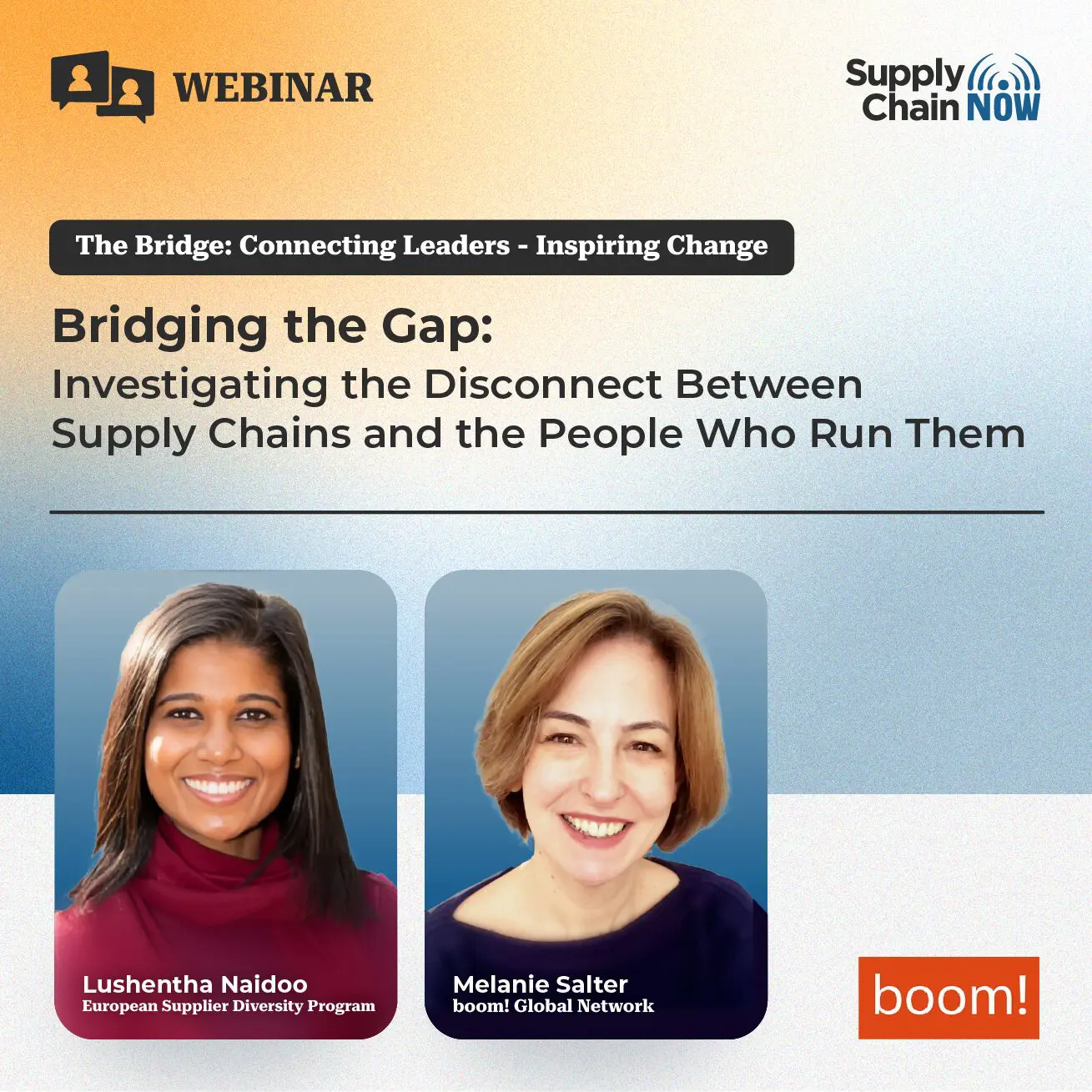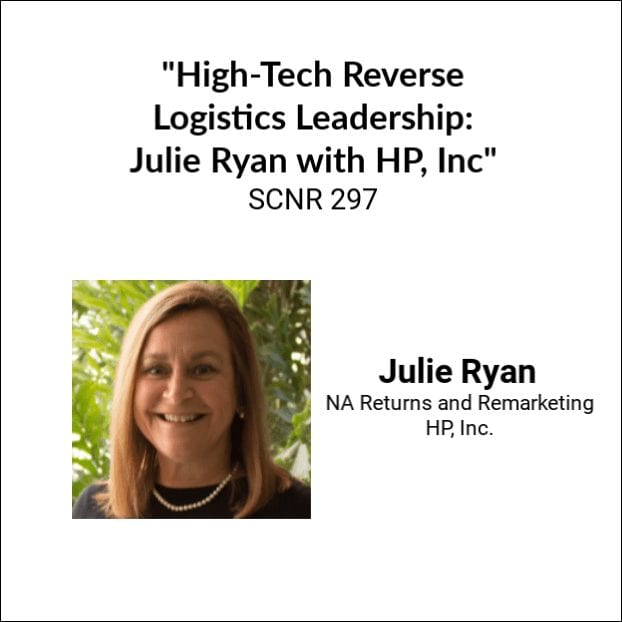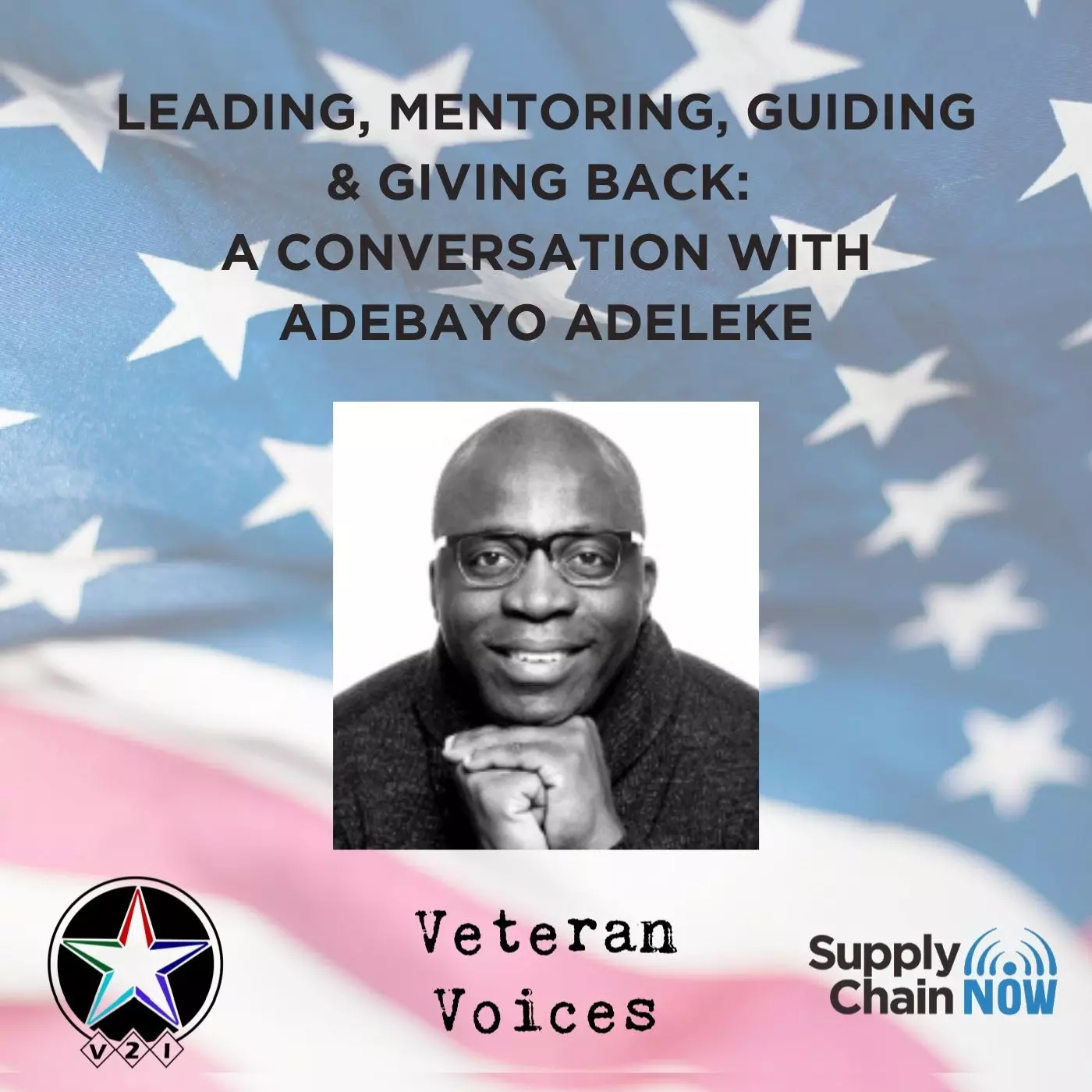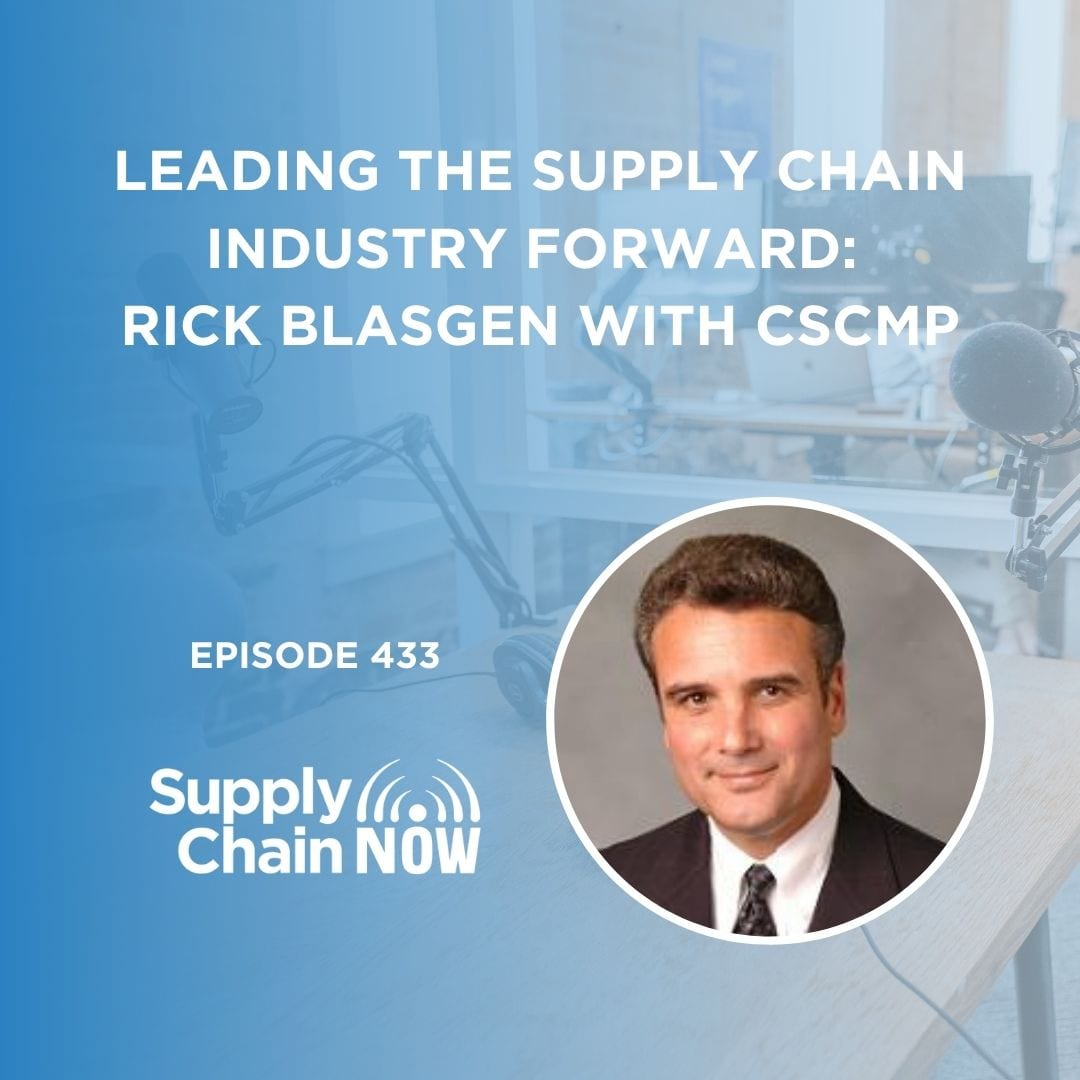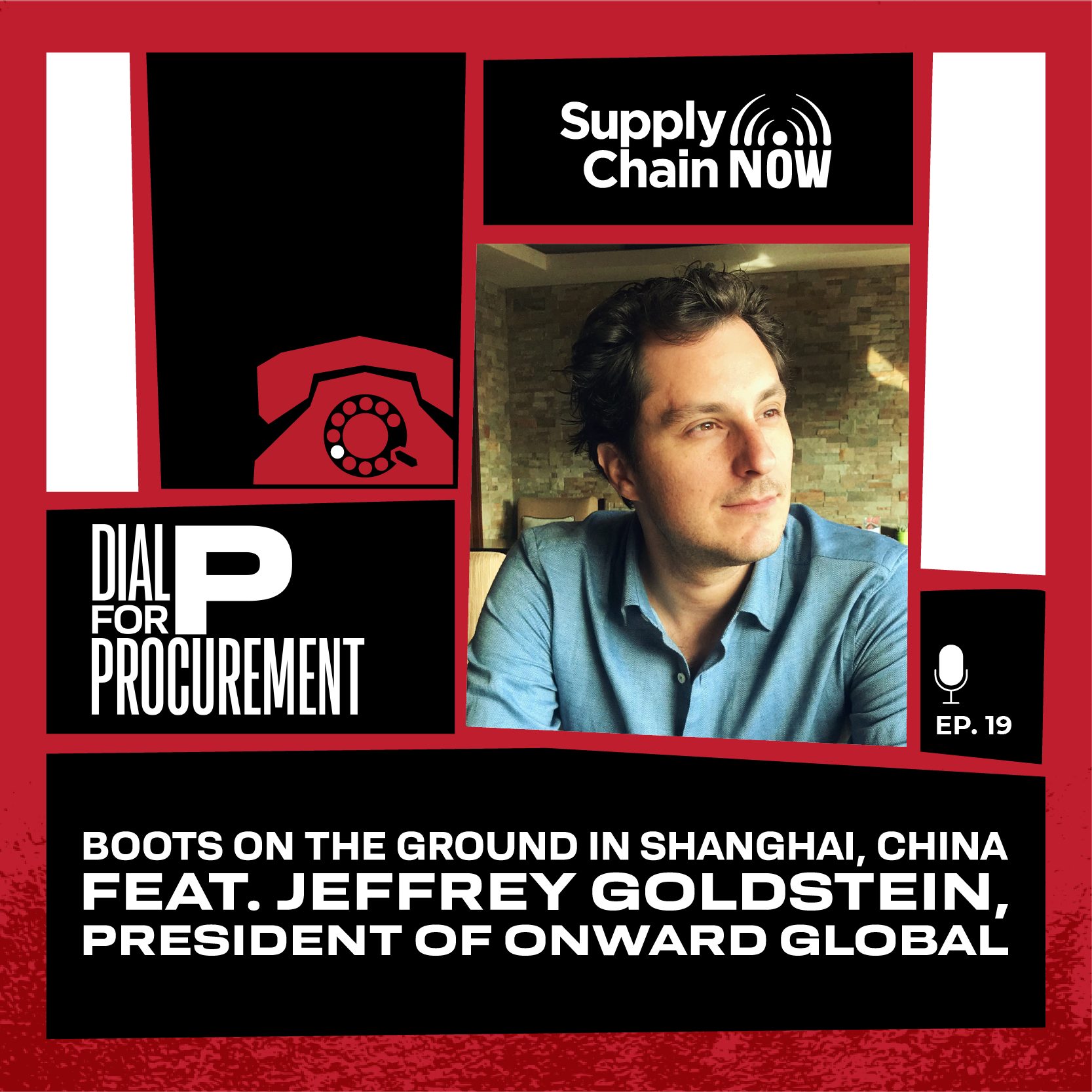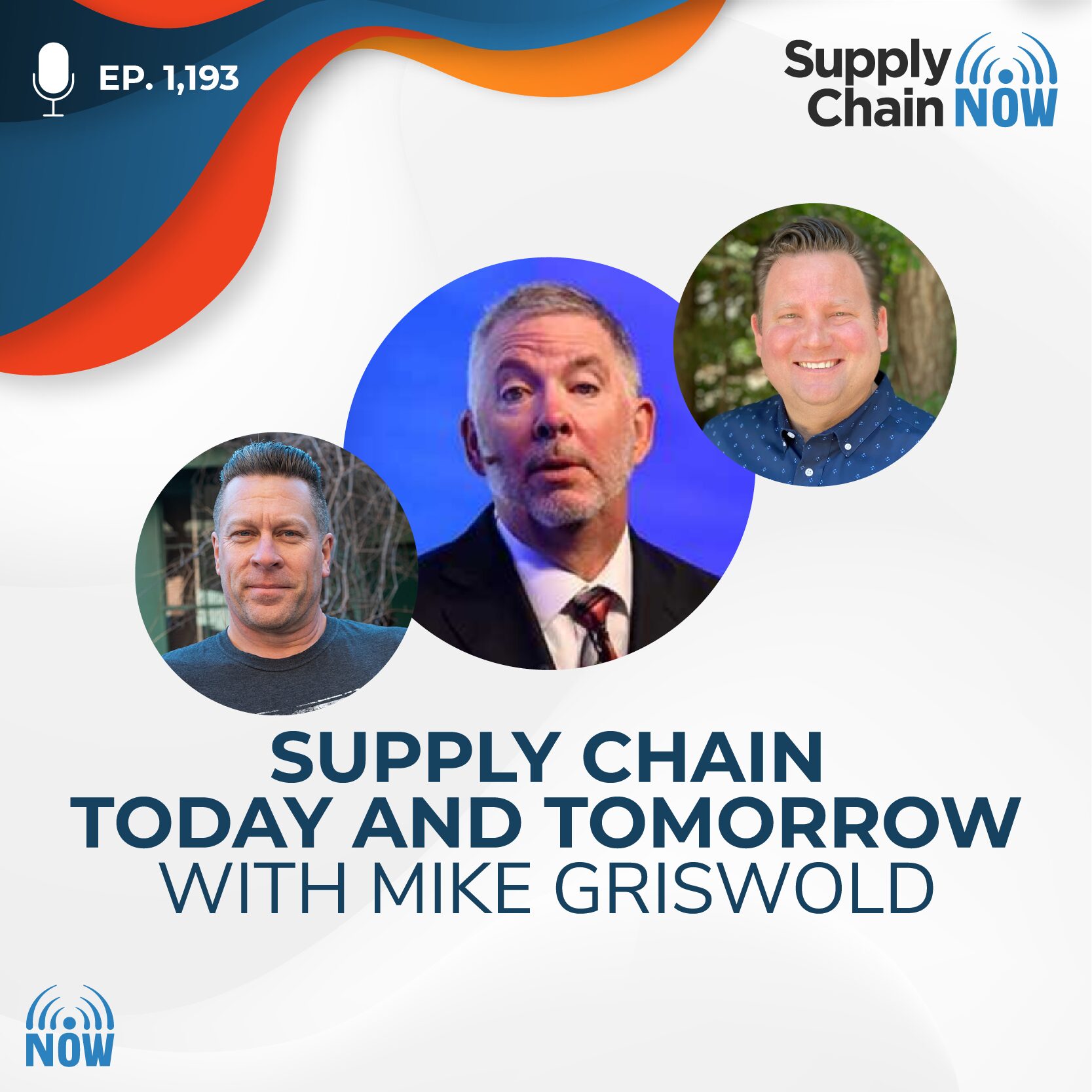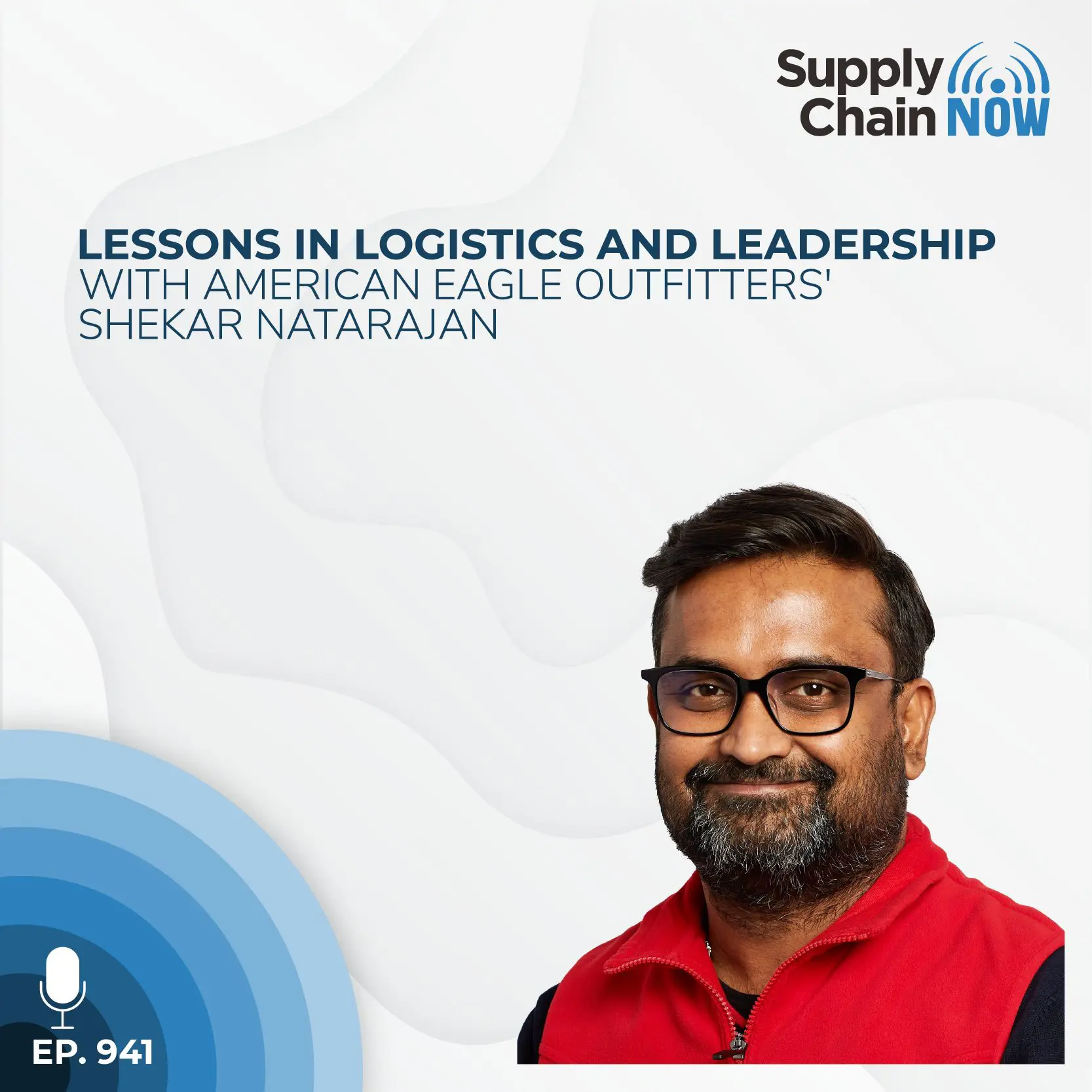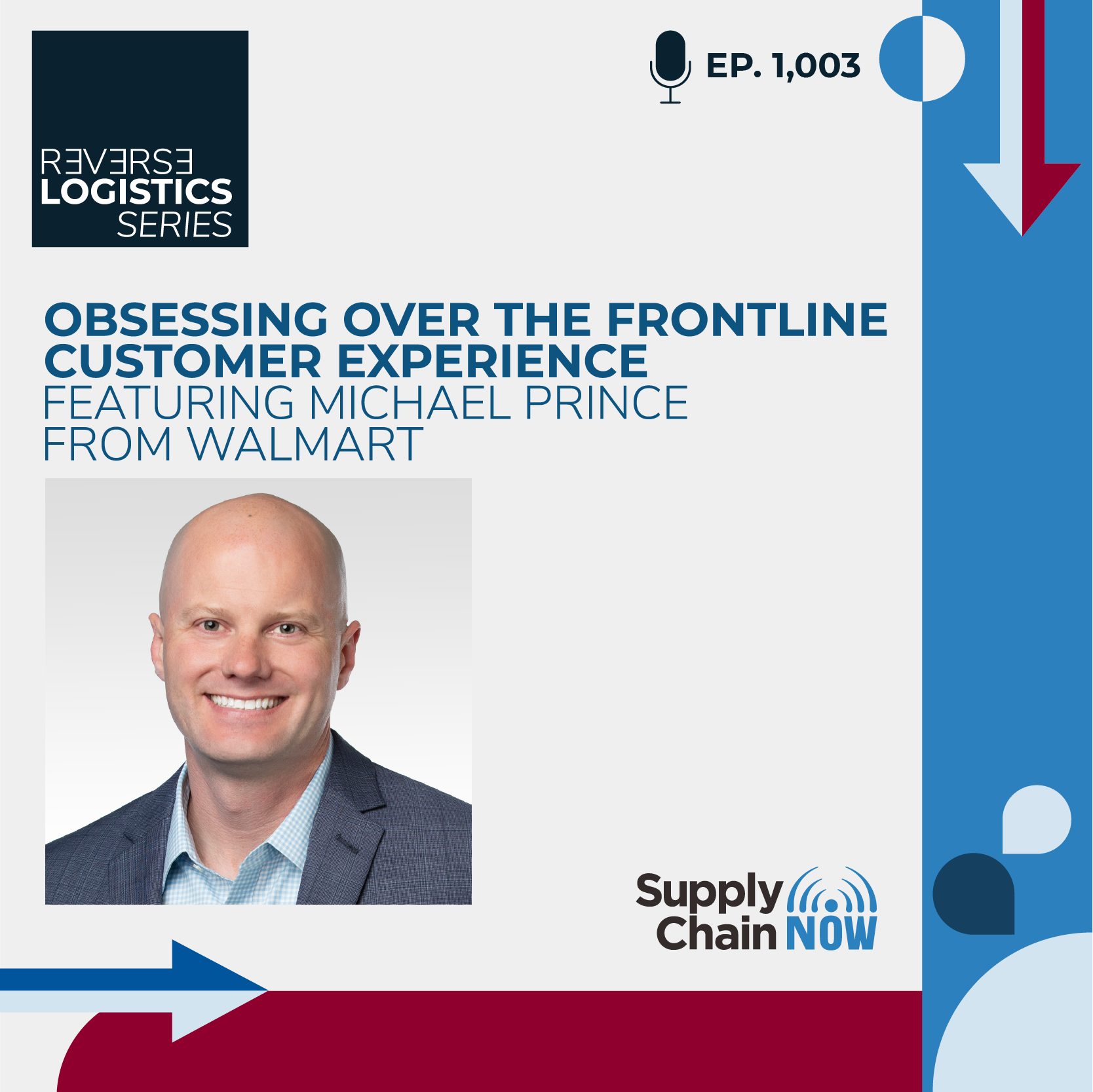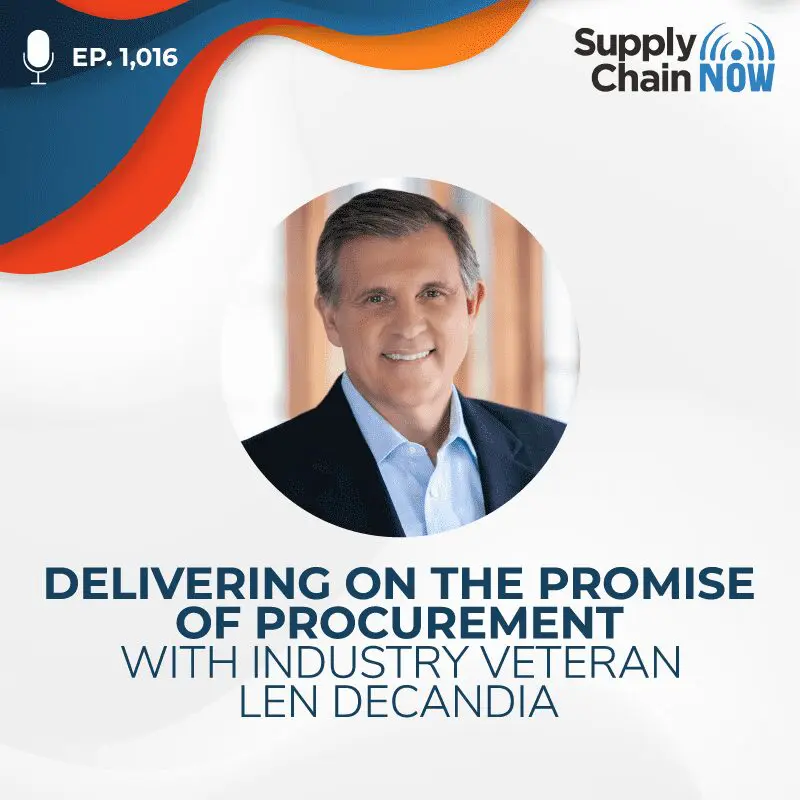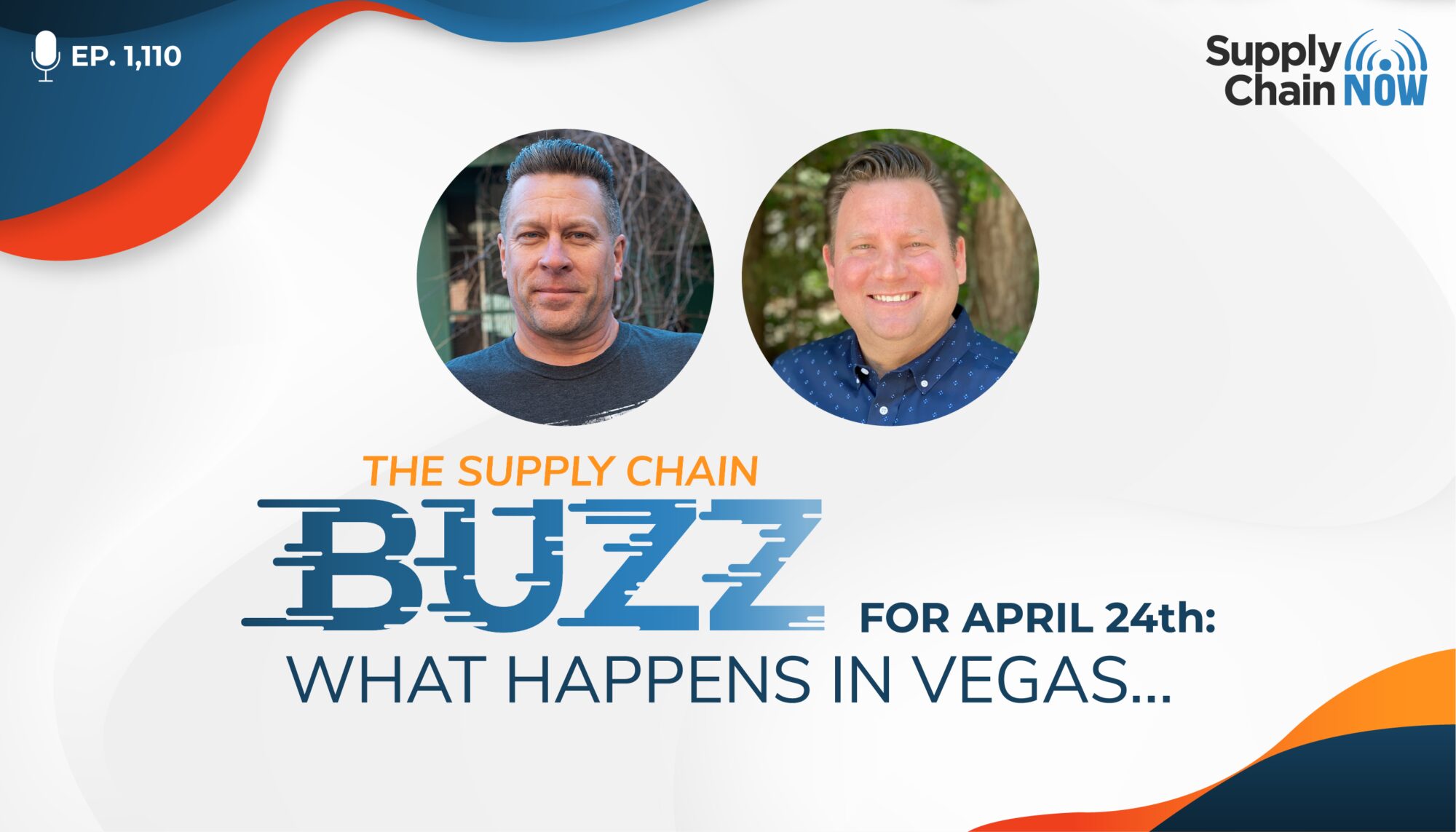
The one thing NOT to do while in Vegas is to gamble a dollar that you're afraid to lose. Have a plan, pick an amount, and when you hit that amount, walk away.
- Greg White
Episode Summary
The Supply Chain Buzz is Supply Chain Now’s regular Monday livestream, held at 12n ET each week. This show focuses on some of the leading stories from global supply chain and global business, always with special guests – the most important of which is the live audience!
This week’s edition of The Buzz featured co-hosts Scott Luton and Greg White. In addition to covering top supply chain news stories from around the world, they shared their thoughts on environmental sustainability based on inspiration from Earth Day 2023.
In this livestream, created in collaboration with a live Supply Chain Now audience, Scott and Greg discussed:
• Why cyber attacks are on the rise, and what companies can do about it by increasing general awareness among employees and ensuring it is covered in supplier contracts
• How Ikea is balancing product accessibility, affordability, and sustainability through investments in omnichannel growth
• The opportunity associated with increasing communications between supply chain and finance, and between the company and sub-tier suppliers
Episode Transcript
Intro/Outro (00:03):
Welcome to Supply Chain. Now the voice of global supply chain supply chain now focuses on the best in the business for our worldwide audience, the people, the technologies, the best practices, and today’s critical issues, the challenges and opportunities. Stay tuned to hear from those Making Global Business happen right here on supply chain now.
Scott Luton (00:31):
Hey, good morning, good afternoon, good evening, wherever you are, Scott Luton and Greg White with you here on Supply Chain. Now, welcome to today’s livestream, Greg. How you doing today?
Greg White (00:41):
Good. Very good.
Scott Luton (00:43):
I’m doing good. Wonderful <laugh>,
Greg White (00:45):
Little bit of a late travel day yesterday.
Scott Luton (00:48):
Yes. You were on assignment in Las Vegas, which we’re gonna dive into, right? Second half of the show. Had a great time. I saw some of the pictures, uh, as we were celebrating
Greg White (00:58):
Pictures.
Scott Luton (00:59):
I saw a couple of them.
Greg White (01:00):
Oh, that’s good.
Scott Luton (01:01):
<laugh>. So maybe the world has seen him. I don’t
Greg White (01:03):
Know. The social media manager,
Scott Luton (01:05):
<laugh>, but great to have you back. I’m looking forward to picking your brain. So folks, we’re gonna talk, of course today as a supply chain buzz coming at you every Monday at 12 in Eastern time, as Greg and I and friends walk through some of the biggest global news stories across the world of business, especially a supply chain as you might expect. But we’re gonna pick Greg’s brain and have some fun toward the end of the show, around three things to do in Vegas, and one thing not to do in Vegas. So stay tuned for
Greg White (01:33):
That. I bet there’s some opinions on that
Scott Luton (01:35):
<laugh>. So, hey, we wanna hear from you. Uh, tell us, uh, not only what you’re tracking across global supply chain, global business, but if you’ve been to Vegas, give us your inside tips too. Hmm, Greg, of course, we want to hear from all of our friends, use that chat bar. We enjoy hearing where folks are from getting their take. And folks, if you’re listening to this podcast replay, cause we published the, the, uh, the audio podcast version of the Buzz, usually on Friday mornings. If you’re listening to that, hey, check us out live on LinkedIn, YouTube, or any other social media channel of your choosing on Mondays at 12 noon. We’d love to hear from you, Greg. What else would you, as we, as we make that a warm invitation out to our global supply chain now family, what else would you add to that nice warm invite.
Greg White (02:20):
Golly. Um, well listen up and don’t forget to tell friends about this, right? I mean, you’re gonna get to hear from, not just on this show, but on other shows, you’re gonna get to hear from some of the most prominent practitioners. And we’re interviewing yet another leader of chains, uh, in the next couple days, right? Is That’s
Scott Luton (02:38):
Right. I think it’s every day. Well,
Greg White (02:40):
It is, you’re right. I’m thinking of one in particular City Furniture, right? So,
Scott Luton (02:45):
Oh, that’s right. Andrew Koenig. Right,
Greg White (02:47):
Right, right. Um, and then of course, a lot of solution providers who are out there sharing stories of their customer success and that sort thing, that’s
Scott Luton (02:59):
<laugh> tune in, listen up, and it’s a money back guarantee. Money back satisfaction guarantee. That’s right. Um, hey, little quick heads up. I noticed earlier today, um, LinkedIn was having some, some issues. So if you’re tuned in, uh, via LinkedIn today, that might be interfering with your ability to comment. Just giving you a heads up, you know, that happens from time to time. All right. So Greg, let’s, let’s share some learning opportunities with all of our, our listeners out there. One of our next big shows is this Thursday, as we welcome in Greg Davis with Grant Thornton on our, we’ve got this, um, ongoing featured mini-series. Yeah. Our focus on decoding digital transformation, sponsored by our friends at Next World. And this next installment, Greg, we had such a blast on the first one. This next installment is gonna be focused on what’s next. Greg, should be one heck of a show, huh?
Greg White (03:48):
Yeah. Look, digital transformations big topic anywhere all the time, but there’s, uh, there’s kind of layers to it. Like onions have layers and donkeys out layers, <laugh> layers, layers to digital transformation. So we’re gonna talk about kinda the various, uh, levels and layers that you can approach and attack the enormous project that is digital transformation. Right? And, and Greg may be at the draft when he does it. I wonder if he’s gonna use that as a backdrop, win in for that.
Scott Luton (04:23):
Absolutely. The, and I’m glad you called that out, Greg, because Thursday night is the first round of the N F L draft and no telling. I hope the Falcons get the chiefs pick because the chiefs don’t need any more talent, and the Falcons need a lot more. So can we work out that deal, Greg?
Greg White (04:38):
Uh, yeah. In fact, uh, by the way, Scott in Vegas, there were quite a few, uh, there were quite a few Falcons fans out there,
Scott Luton (04:45):
Ok,
Greg White (04:46):
<laugh>, they were proudly wearing the colors, and I gave them a, I gave them a rise up whenever I saw him,
Scott Luton (04:52):
Right? Right. <laugh>. Well, all a good fun. Looking forward to the draft. Okay. So quick update, uh, and big thanks to course Catherine and Amanda behind the scenes helping make production happen. Looks like we are having an issue with the comments coming in. I see Josh Lamar Nazarene, uh, Leah Luton, mom’s with us, uh, Felix, Tasha all joining us at from different parts of the globe. We’ll see if we can’t get that ironed out, uh, over the next hour. But welcome in everybody. Okay, Greg, we were just talking about, uh, learning opportunities with this live stream conversation this Thursday, again, right? April 27th, 12 noon. So y’all join us, the links in the, in the chat. Also, over the weekend, we published the latest edition of, uh, with that said, that’s our, uh, weekly LinkedIn newsletter. This time focused on since Saturday was Earth Day 2023. It had a lot of Earth Day related Earth Day focus content. And it’s so true. We entitle that there is no Planet B little play on plan B versus plan A. I
Greg White (05:48):
Like that. That was pretty
Scott Luton (05:48):
Good. <laugh>. Well, I, we shamelessly stole it. Uh, right. Uh, like, like most good ideas, right? Folks, <laugh>, we encourage you to not only, um, check out with that said, but more importantly, think about, you know, um, of course, with all of these holidays, we’ve gotta find a way to, to bake it into our mindset year round so we can drive meaningful action. Uh, and that’s what we wanna encourage y’all to do. If you do anything, stop and think and figure out how you can act. Greg, your thoughts around Earth Day and sustainability, E s G, you name it.
Greg White (06:23):
Well, I mean, you know, I, I think there are a lot of people that are accidental environmentalists, including my great grandparents who said, turn off the lights when you leave a room and don’t brush your teeth with the water on and things like that. That’s right. Don’t run the thermostat down. Were you born in a barn, is an act of environmental activism, by the way. So, right. I think what we have acknowledge super political, all this SG stuff, but what’s the taking care of the, I’ve rock climber and, and hiker for a long time. And, and the number one rule is pack out what you pack in. So, um, you know, I think there are just a lot of little things that you can do and then contribute to some of these bigger challenges. And there, and this whole planet B thing, I don’t know about if anyone’s ever thought about it this way, right?
Greg White (07:19):
Everyone’s thinking about Elon Musk going to Mars, and I think Elon Musk happens to be possibly one of the smartest that exists on this planet. But rather than go to Mars and build a dome over Mars, once we’ve destroyed the atmosphere here, why not just build a dome over our planet here, <laugh>, right? But we have a lot of the infrastructure that could help us capitalize on that. I mean, if, if such such thing ever happens, right? Yes. So let, let’s not forget that some of this is very capitalistic and in some cases hyperbolic. Yes.
Scott Luton (07:57):
Well, hey, when we do that, build the dome, Polly Shore will be involved as he was in the famous movie, was it Biosphere for the nineties? Big flop. Do you remember Polly Shore from M T V, Greg?
Greg White (08:09):
I do remember him from mtv, and I remember he had some movies, right? But yeah,
Scott Luton (08:15):
<laugh>, that wasn’t the best part of his career, I guess. Uh, all right, love that. I love that perspective, Greg. It’s so true. Uh, folks, just, just regardless of some of the politics out there, do good, do
Greg White (08:26):
Something. Yeah. There’s no harm. I mean, there’s no harm in being more environmentally conscious. We, that’s what we used to call it back in the eighties, I guess, right?
Scott Luton (08:35):
And as Amanda sharing, biodome was that movie with Paul Shore.
Greg White (08:40):
I do remember the name, <laugh>, unfortunately, I don’t remember the movie.
Scott Luton (08:43):
Oh, man. All right, so y’all check out, uh, with that said, uh, joined 21,000 of your, uh, fellow, uh, practitioners and friends and members of the supply chain now, global fam that have been tuning in and giving us feedback around that. And then finally, speaking of, uh, we were just talking pre-show about how the kids are. All right. I’m not sure where that stems from. I think some song,
Greg White (09:06):
The who, that’s a who
Scott Luton (09:07):
Song. Okay. Thank you, Greg. But the kids are indeed. All right. And the latest example, and you can find plenty if you would, if you go looking. So gotta give Vector Global Logistics. Some, a shout out here. This is my oldest daughter Brantley here in the chair. I took a snippet. It’s tough to tough to catch one when she’s smiling. Um, but en uh, Enrique Alvarez and the great team at Vector Global Logistics basically set up interviews with, uh, Greg, I probably a couple dozen kids, I guess. Hmm. And the kids all answered the question, why should sustainability matter to your company? And then we’ll drop, we’ll drop a link to this, um, this LinkedIn post there. I’ll check out the video and all the responses, but Greg, brilliant, brilliant. Uh, when Enrique reached out to me, uh, it’s been two months ago since they started setting it up.
Scott Luton (09:53):
And then of course, they, on the post-production and, and then publish the final product. These kids we’re in good hands when after we finished messing things up and, and get it into our, the next generation, these, these kids’ hands, I’m telling you, it is amazing how intelligent and how, um, uh, passionate, how, um, uh, how visionary, uh, yeah, you know, these kids are in terms of, of some of the simple steps and some of the most more complex steps of, of actions that we should be taking. Greg, you, you may not have you got a chance to look at this video yet? I
Greg White (10:27):
Haven’t, but I want to. I love, you know, I’ve always believed from the mouths of Right. So much wisdom. But yeah, I, I think I’m really interested to see what they’re all, they’re all thinking about.
Scott Luton (10:39):
I’m too,
Greg White (10:40):
There have to be some new ideas out there. You know, one of the things that jumps out at me is batteries, ev batteries, and all this rare earth mineral stuff. Yep. I’ve actually been over the last month or so just researching what the alternatives are, and there’s some really good studies, for instance Yep. Out there. So if we can get some new insights in just thinking about the, the naivete of children forces them to think about things in a different way, and they don’t, they aren’t necessarily bound by the status quo. Right. And, and that’s where good ideas come
Scott Luton (11:13):
From. So true, Greg. So true. And folks, uh, Greg, we’ve talked about this, uh, countless times here, and you make a, a lot of great points. You know, um, the ev whole industry, as we all know, is blowing up, right? I mean, very few. I mean, if you look at future plans of the, some of the major car companies out there, traditional automobiles are, are, are barely, it’s just a, a fraction. But Greg, you make a great point, because while we should all feel good, I mean, about the notion of using, um, uh, electricity, right? Renew, especially renewable, uh, energy to drive automobiles. The flip side of that, of what all the destruction across the planet, it goes into the, um, the huge demand for batteries and, and then some, Greg, we’ve got a lot more balance than to figure out, uh, so that it can be truly, uh, as sustainable as maybe, uh, you know, some consumers think, huh?
Greg White (12:09):
Yeah. I think that we’re, we’re gonna need to find alternatives. Uh, they’re already looking at, they found some meteorite magnetization, I think it’s called Tate tonight. I’m sorry. Yeah. I was just reading about that today. But that can be simulated and that can take on the magnetic properties required for semiconductors and that sort of thing. And that way we don’t have to destroy the earth’s crust to get all these rare earth minerals to create the magnets that are required for a lot of electrification. Um, and that sort of thing. And of course, we’ve got the, the social challenges with cobalt. So much of that is mined by, by child and slave labor. Right. So, you know, we need to attack those problems. I think we need entirely new technologies for, for batteries. Yep. But it’s good to see that there is some really active awareness in not destroying the environment in a new way to avoid destroying the environment in an old way. And I think that, you know, we didn’t have that foresight before. We didn’t have the knowledge to see what the, what the potential damage was. Yep. Not before, but now we do. And I’m glad we’re taking advantage of that to already consider some more sustainable alternatives for our sustainability initiatives.
Scott Luton (13:22):
Yes. I really appreciate you pointing that out. We all need to go into this ev movement eyes wide open, I’m telling you. Well,
Greg White (13:30):
And it’s fast. I know if you saw what’s going, what happened at the Shanghai Auto Show, but China has about 30% of all new cars are EVs now. Yeah. And whereas the German and, and Japanese brands, and even some American brands were really popular, their sales are plummeted there. So, uh, Hyundai, which of course we know their sales were down 40% last year in China. Wow. Because not only are the Chinese now way ahead on creating, uh, ev cars, but the look is more modern. And the Chinese consumers are falling in love with these cars. And there are some pretty good looking cars over there. There’s one brand called Lee.
Scott Luton (14:18):
Okay.
Greg White (14:18):
Li and, um, and they have an L nine, which is a, a great looking vehicle.
Scott Luton (14:24):
So Yeah. Hey, if it passes the Greg White Automotive test, you’ve really earned a blue ribbon. Yeah.
Greg White (14:31):
<laugh>. Yeah. I, I mean, I, I do think, and this, this isn’t news except, you know, this may not be news, but I do think that we need to start seriously about thinking about the next car purchase and whether that ought to be an ev if only for the fact that EV is hitting that, the exponential of the demand curve. And it’ll start to become a bigger and bigger portion of, of the consumer purchase, which will rapidly make fossil fuel vehicles worth zero IC vehicles Right. In internal combustion engine. Yeah. They could be worth zero in five years. They, they are already, the prices are plummeting for, uh, i c vehicles in China now. Mm-hmm. They have a law that outlaws them. Uh, interesting. July of this year.
Scott Luton (15:20):
Wow. Well, it, I I, I read over the weekend, uh, CNN had an interview with the, um, senior leader of the Ford Mustang, uh, program.
Greg White (15:29):
We call it mock E Oh oh. Is this the actual Mustang?
Scott Luton (15:32):
Or is Yeah. This is the real one. This isn’t a crossover. Yeah. It, it wa <laugh> that crossover version. Uh, in fact, this, um, executive didn’t really wanna talk about the crossover version. Cause you could tell kind of between the lines, it sounded like she didn’t think that was a, you know, a real Mustang, which I think a lot of, lot of listeners may agree with her.
Greg White (15:50):
A lot of, yeah. A lot of Ford fans would agree with that. Same. Right. So I appreciate her, uh, whatever you call it,
Scott Luton (15:55):
<laugh>. But, but check it out. It, it was a great, um, you know, I love when you, when we interview folks that, um, you can tell they love what they do. They’re not just charged with leading this project. Whatever. Sh you know, her grandparents or parents I think all worked at Ford. She, uh, loves the brand, loves the vehicles. And, and when you hear from leadership and supply chain manufacturing leadership for that, you can hear and see that passion. Those are some of the best pieces. So y’all check that out. Yeah. Um, Greg, we are, man, we are, uh, we are going all over the place here on the buzz here today. And folks, we’d love to hear your comments. Uh, we’ll have to maybe celebrate ’em after the show. But, uh, let us know what you think on these stories. Let us know what you think, uh, around the EV movement.
Scott Luton (16:40):
We’d love to hear your perspective. Okay. Greg, we are going to get officially mm-hmm. Into our first story here today. Cause believe it or not, uh, EV and batteries and Mustang, none of that was part of our initial plan here today. But hey, uh, good stuff. Lot, lot of good stuff happening out there. Let’s get into something we’ve been banging the drum on mm-hmm. <affirmative> for years and years and years. I mean, when it comes to cybersecurity, it’s pretty scary out there. So, according to this great read from our friends at Supply chain Dive, Greg, did you know that the number of supply chain cyber attacks in the first two months of 2023 is already, uh, surpassed 40% of last year’s, 2022 total number of attacks. Now that shouldn’t surprise any of our audience numbers, right? Because cuz we’ve been, we’ve been talking about this forever.
Scott Luton (17:30):
But this article encourages you to consider three things. Lemme get Greg’s take after this first map out your tech suppliers, especially so that your procurement team is in the notes since they often are, are making transactions happen, right? Right. Second, add cybersecurity to the supplier contracts, make it a shared responsibility. And then third, train and empower employees across enterprise, not just in procurement, but where everyone has a role to play things they’re looking for protecting the enterprise. Greg, when it comes to cybersecurity, some of the stuff we’re seeing out there from bad actors or somebody’s, somebody’s, uh, both proactive and reactive steps that, that, uh, SMEs are, are suggesting. What are, what are some of your thoughts here?
Greg White (18:15):
Well, I think you have to start, you have to start with the people because that, I mean, frankly, we’re the weakest link. Um, the example that they gave in this article was shocking, where someone not only, um, faked the email of the c e o, but they deep faked a voicemail from the CEO by, by, uh, cutting together statements from public statements and Right. And speaking engagements. And that’s sort of thing to reinforce the, yes, please send this enormous check to this, this vendor’s bank account, new bank account. So, um, they’re very, very sophisticated out there. And of course, the supply chain, you know, why the supply chain hasn’t been as big a target until now, is because here we go, Scott, until the great toilet paper shortage of 2020, nobody knew what the supply chain was or that it existed right now, as it’s come into new prominence and, and, um, bad actors have, have recognized that it’s a laggard in terms of technology and awareness around cybersecurity. They see an easy target. So it is important to, to train the people, but also, I think this is a critical thing. It is another leg of, of, or pillar of supply chain. Just consider cybersecurity up there with, with cost right. And risk. Yep. And, and E s G, just consider it another pillar of the supply chain to make sure that you secure it. So they talked about it’s been 10 years since Target. It doesn’t seem like it,
Scott Luton (20:00):
Right?
Greg White (20:00):
But it’s been since 10 years since Target lost 110 million people’s data because an H V A c a heating and air conditioning, uh, repair company got hacked. And, and they got into the target network, uh, that way. So,
Scott Luton (20:18):
Unbelievable.
Greg White (20:19):
It, I mean, it, you have to understand the totality of your interactions in your supply chain and procurement areas, and you have to be aware and, and of course, have that compliance element just like you would for showing up on time, you know, delivering a PO or, or, or delivering accurate, um, quotes and, and the other things that you, you concern vendors with.
Scott Luton (20:46):
Yep. Uh, the totality of the risk, again, eyes wide open, um, because it, it, that was 10 years ago, Greg, as you point out, it’s hard to believe that was 2013 with the target thing. And, you know, goodness knows, it is amazing what we’re doing with iot, uh, internet of things these days and all the conveniences and comforts that it offers. But like with anything else, it’s double-edged sword for all the conveniences and comforts and innovation, it opens up some doors for bad actors to do bad things. And, you know, Greg, along those lines, one of our favorite episodes from, gosh, probably 600 episodes ago, uh, Jack Allen was Cisco, right? Uh, we had talked about how, and an, and it wasn’t Cisco, it was, it was a different manufacturing company. It was based on a real story though. Uh, a bunch of employees from a certain manufacturing plant would bowl in a league at a, at a bowling alley down the road.
Scott Luton (21:35):
And they all gave their content information in the, the Bowling League’s website so they could keep up scores, all that stuff. Well, bad actors penetrated that, pieced intel together and, and, uh, uh, some way that they could use that information to crack the credentials of the manufacturing, uh, email. Uh, and then perhaps e r p system, as I recall, eventually it shut down the plant. Yeah. Um, so it really is scary out there. And folks, um, you know, take Greg’s advice, check out this article, uh, considered the expertise that’s in there. And most importantly, hey, get with your team and figure out what the current plan, what the current risk mitigation strategy is for this, uh, highly and fastly emerging threat. That is all things cyber across global supply chain.
Greg White (22:21):
Yeah. These are not geeks in their mom’s basement. These are, uh, highly intellectual and talented, um, driven, economically driven, and sometimes officially supported by various governments. Yep. We all know who they’re China, and so they are well healed as well. Right? They have their own science teams, they have algorithms and AI to, to train their solutions to figure out how to trick you and how to penetrate, um, your systems. So this is, it’s, this is a technology war. Really.
Scott Luton (23:02):
So true. It is so true. All right. So we’re dropping the link to, to these articles in the chat. And as, uh, Catherine and Amanda point out Yeah. LinkedIn’s having a functionality issue here today. So a couple comments here. They’re dropping ’em into private chat for us. So thank y’all very much. Tom Valentine, Hey tv. Great to see you. I’ve seen how busy you’ve been. He says, uh, great points guys. And in the article, there are a lot of soft end points within the four walls that are never considered. Right? He says, uh, heck, my new washing machine in dryer keep asking my phone to connect <laugh>.
Greg White (23:34):
That’s a really good point. And, and you know, they make another good point, Tom. And that is, they say vet those tech suppliers because any tech supplier that, you know, as they talk about companies are growing really fast, tech companies are growing really fast, but any tech supplier that doesn’t have adequate cybersecurity, it’s probably someone you should not do business with. It’s so basic to be cyber secure, security certified, right? SOC X or whatever the number is these days, <laugh> or the other, other types of certifications that don’t take a risk on somebody who is not not certified.
Scott Luton (24:12):
Excellent point. And, uh, Kim Winters here with us today. Kim, great to see you. Uh, he says, well said, Greg, more than 30% Kim says, uh, there’s Australian population has had their personal info stolen through hacking of tier one insurance and telcos or telephone companies.
Greg White (24:28):
Oh my gosh, are you serious? Insurance and telephone?
Scott Luton (24:32):
Unbelievable.
Greg White (24:33):
So they know a lot about what, what wines, what Shira and what, uh, beers <laugh> Australian drink,
Scott Luton (24:39):
Right? Oh, Shira. I love a good Shiraz man. Um, let’s see. Gloria Mar says, uh, and great to have you, Gloria Mar says, as I look at the port of LA I always wonder how it is physically, internally cyber protected in the military. We are, uh, OD’ed <laugh> on cyber training, and we have not been exempt from attacks. So I can only wonder about the vulnerabilities that our supply chain has. Excellent points. And
Greg White (25:04):
If you saw, if you’ve seen the article about, um, the IRS and how much 50 year old technology the IRS has, and 40 and 30 and even 20 year old technology, none of that is cybersecurity. You can bet that in state governments with some of these ancient infrastructures like ports Yep. We know that they’re extreme laggards in terms of technology. So that is a significant risk. Right? Unfortunately, our government is probably not defending us as well as other governments are attacking us.
Scott Luton (25:40):
Yeah. Greg, uh, I hate the pile alone, but you look at the nuclear technology talking about archaic technology that’s susceptible to a wide variety. Uh, they’re, they’re reevaluating, uh, nuclear, uh, policies and security as we speak. Um, and that’s, that’s made it out to public knowledge. It’s interesting. Um, alright. Right. One last point here. And by the way, Don is with us, gene pledgers win this great see of Gino, uh, Kim says, the wines protected guys, the wines protecting. That’s good, Kim. Protect that Shaz. Um, now Donna makes, and, and one last point here from Donna, uh, Donna, great to see you here this morning. She says, all of this begs making media literacy a priority in our schools informed users will be able to spot the fakes. Um, which, you know, we’re, we’ve all have seen all kinds of just completely AI generated content. And, you know, my eye usually catches, you know, there, there’s some still some looks. I’ve seen one commercial that’s been hitting regularly and I could spot that it was AI driven right away. But man, they are really close to being able to fool even the, the sharpest of eyes. That’s a great point, Donna. Yeah. Greg, you’re gonna comment.
Greg White (26:47):
Yeah. It’s, it’s very difficult to tell. I mean, if you’ve ever seen any of these deep fake videos, theyre very realistic. It’s, it’s scary. But, you know, I think, I think we’ll wind up with advanced internal technologies to address the points that Donna and Tom and Kim have, have talked about. Yep. From the inside out or, or across networks to help secure not just individual companies, but between those companies as well.
Scott Luton (27:14):
Yep. Agreed. All right. So smooth, something less scary. <laugh>. So let’s talk about what IKEA is up to. I bet we’ve got tons of Ikea fans. I know. I, uh, Amanda behind the scenes here is a big Ikea fan. I might have some, some of this stuff right behind me, I think.
Greg White (27:30):
Yeah. Sitting at my Ikea desk, right. <laugh>, right. My coor or whatever.
Scott Luton (27:34):
<laugh>. Well check this out. CNBC reports that the popular Swedish home and furniture company is investing some 2.2 billion, billion and it’s omnichannel growth. So, Greg, some of the things that that that <laugh> that, that picks up the tab on new stores and new pickup locations with, with one of the company’s goals being to improve accessibility while keeping products affordable.
Greg White (27:57):
Right.
Scott Luton (27:58):
Uh, it includes nine new, what they’re calling plan and order points where customers can get help on things like really big remodel projects that continues this. Uh, as we’ve heard Gartner and many others report on mass personalization, mass customization, right? At scale, uh, investing. A big part of the, the plan and the path forward is investing in more sustainable operations, uh, with ikea. One goal is the modernization of the 51 existing US stores for energy efficiency. Also building out an all ev delivery fleet. So, Greg, when you hear some of this stuff here at a, at a retailer that Americans have folks everywhere have come, come to, to love and enjoy your thoughts.
Greg White (28:41):
Yeah. My first question was, in these nine delivery point planning and delivery points or planning order points, will they also have Swedish meatballs in case you go to visit? Cause it’s a good and inexpensive meal. Um, so that was my first question, but in all seriousness, I was a little bit stunned that there were only 51 stores around the country. But, um, not as stunned when I have tried to order, um, IKEA goods to be delivered to more remote locations in, in, as you say, Scott South,
Scott Luton (29:18):
Right.
Greg White (29:18):
<laugh>, um, South Carolina. And, um, but I think this is a recognition that they need to do better. Uh, so in three companies in a row, completely, completely outfitted the office with IKEA desk. That’s how you, that’s how you in the office when you’re, you’re new in our, in our companies, right? Right. You, you go in your first day, you do your HR paperwork, and then you assemble your desk and chair and meet all the people who wanna help you know how to do that.
Greg White (29:57):
I think, I think this is such a popular company they have in incredible quality goods for the prices. Yep. Um, that it’s, you know, this is just one of their other initiatives. And I see that they’re blending it with their ESG initiative by, by including EV delivery vehicles, which is a big initiative for them. And of course they, they have their own challenges in terms of the validation of, of some of those e ev or, uh, SG initiatives. But Yep. I like that they’re blending the two here. I think there’s a great opportunity for more people to be exposed to these kinda things. One guidance I would give them, like, they really care what I think. But one guidance I would give them is that the, the stores are not necessarily the weak point of the omni omnichannel experience. The website is, I dunno if you’ve ever bought and tried to have delivered goods from an ikea, but it, its, uh, to use the Danish word, which isn’t Danish at all, I’m sure, but something they would name after, doesn’t it?
Scott Luton (31:02):
<laugh>. So it is room for improvement is the one I’m picking up on that, Greg.
Greg White (31:07):
Yeah. I think, I think that’s probably one of the weakest points. But, you know, they’re, they’re still technologically savvy. I have no doubt that they’ll, they’ll pick that up. I mean, I could see them, you know, using 3D imaging and that sort of thing. Right.
Scott Luton (31:21):
Well, you know, uh, speaking of, so I mean, I’ve never ordered from Ikea, but, uh, as Amanda put any comments here, uh, so true Greg. I love Ikea, but ordering from them, Amanda says, online is a nightmare. Hoping this investment means a better e-com experience. Excellent. Amanda. And hey, um, Amanda needs no tips in terms of how to put stuff together. She runs circles around me if we’re being real honest <laugh> and, and keeping it real around here. Um, alright. I also wanted to point out one other thing, uh, you kind of said with a, um, a smirk, uh, south kaki. I wonder where, first time I ever heard that phrase. And I grew up in a, in South Carolina. Uh, mom is, might be there now. Um, first time I ever heard that phrase, I was in the Air Force and Sergeant Staff, Sergeant Vicki Vazquez, uh, the pride of the Bronx, uh, said that. And I, I looked out, I said, what’d you say? And we both just, just died laughing as she was talking about South Kak. And I got the biggest kick out of that. And I wonder what she is now doing big things. I’m sure. So think you’ve
Greg White (32:26):
Asked, you think she invented that
Scott Luton (32:27):
Term? No, I don’t. Uh, no, I don’t think so. But I think she moved here. Uh, that was when we were at Charter Force Base in Sumter, and she’d been from the, you know, big city of New York coming down to rural Sumter, south Cal, South Carolina. I bet she really embraced that term Well. So, uh, Vicki Vasquez, hope this finds you well, wherever you may be. Okay. So Greg, let’s see here. We, we tackled, uh, furniture and Ikea. That’s really cool. Let’s talk about some other upcoming things. Uh, we have got a great webinar. So folks, um, I know, uh, everyone out there where we’re getting our content from a variety of places, and we’re using a lot of terms interchangeably. You know, today, Greg and I, if you’re looking at this live, we’re on a live stream, right? It rides across social. You just gotta venture one of our social channels and jump right in. Our webinar program is a little bit different, right? It’s like a virtual event that you’ve gotta register for. So on May 4th, we’ve got a webinar coming up with our friends at e Evenflow and Infor and Greg. It’s all about data driven, supply chain management and optimization and success and what it means. Evenflow. Greg, this should be one of our recent faves, huh?
Greg White (33:36):
It is an event, right? I mean, this is a, a virtual event, right? So sign up, get, be able to participate. They, a lot of the, um, people that come and join us in these, they bring materials that are very valuable in educational. You get to hear about actual companies using actual technology to seek and gain actual outcomes. And that’s what’s so great about these webinars is being able to, you know, to understand how a company takes technology and process to change their business. Yep. That, that’s, you know, that’s the toughest part, is not just visualizing, but understanding and validating what the potential outcome is. And then how did you get there? But how did you get there and, and what did you go through to get there? That is so incredibly valuable for companies and people to
Scott Luton (34:32):
Learn. Well said Greg. Uh, that’s May 4th, 12 noon Eastern time with our friends, again from e uh, even flow and in for, and come, come to be cool like Greg White or come for all the reasons Greg just laid out there. Cause you will be better off, uh, promise you by the time you leave. And hey, our team has made it easy. Thank you, Catherine and Amanda and all the folks behind the scenes. Uh, the webinar link to register, again, you gotta register for webinars, but it’s free. It also comes with the money back satisfaction guarantee. Right? I’ll check out <laugh> the link right there in the comments. Okay, Greg, uh, let’s see here. That was, uh, the webinar. I think I’ve got one other thing I wanted to hit here. Some listener feedback. And Greg, I don’t know about you, but I love to hear from our listeners, our viewers, all the folks that make up our dear supply chain.
Scott Luton (35:21):
Now, global fam, this, uh, came from Joshua, uh, usda, I bet it is up in New York. He says, quote, I always look forward to listening to the supply chain now podcast is clear. The amount of dedication and work your team so true puts into the, the production of the podcast. I always find the episodes to be a wealth of knowledge. Keep up the great work. Joshua, man, that makes our day. Thank you for taking the time to shoot this over to me. I think via LinkedIn. Greg, what, what comes to your mind when you hear stuff like this?
Greg White (35:51):
Thank you. Mostly, I mean, I, I mean, I’m, I’m glad that that’s the way it’s being received, because that’s the intent, right? I think, I dunno if everybody realizes they probably do. You’re, you’re much more professional at this than Im, but we’re not talking heads, we’re practitioners. We’re just practitioners to share some knowledge, share some talent people and companies are, things happen out there and, um, you know, kinda information we wanna get or would’ve wanted to get when we were, um, practitioners. And, uh, but I’m glad that it’s coming across the way it’s intended,
Scott Luton (36:29):
Uh, Greg, I agree. And, you know, we’re seeing that on the consumption side, uh, the, the, the view, the views and the watches. Uh, folks, man, uh, we, as I think I shared on LinkedIn a day or two ago, uh, as we collected some of our most popular recent YouTube episodes, uh, I think I dropped six or seven shows in the last few weeks. And they’ve averaged, averaged seven over 7,000 views. So that is remarkable and big thanks to all of our global audience out there, uh, being with us on this journey.
Greg White (37:00):
Well, it’s, what’s interesting about that, Scott, is that was actually, even though we’re in the, if you wanna call that, that was, that was news to, and Catherine shared with Catherine, one of our producers shared with about consumption is occurring now on YouTube mm-hmm. <affirmative>. So, um, we’ve really ramped up our efforts there. And, um, and yeah, I guess the, the double bonus for folks, Scott, is they don’t just have to listen to us. They can look at us too
Scott Luton (37:32):
<laugh>, and typically they can comment and be part. So again, we got a little functionality link while
Greg White (37:38):
We’re live.
Scott Luton (37:39):
That’s right. We’re live today. Uh, always live on live streams and LinkedIn is having a little issue where a lot of the comments come in from, but hey, we’ll get it fixed. I bet we’re on the horn.
Greg White (37:49):
So join TD on YouTube. That’s have a problem, as we’ve experienced,
Scott Luton (37:59):
Right? That’s right. Just like Katherine here who’s tuned in via YouTube talking about the Ikea, she’s like, yes, I love Ikea, but Katherine says she can’t get very much delivered, two and a half, three hours from a TL from Atlanta. That’s true. So y’all jump over to YouTube if you’d like to comment, we’d welcome your thoughts here as we get into the last, uh, 20 minutes or so of the show. All right. So Greg, uh, we’ve got one more story that we had a lot of. Um, I, I dropped this story I think last week, uh, across social and had some interesting commentary and, and, uh, comments made on the post. So I wanna talk about this interesting article from our friends at C F O, right? C f O Magazine. It talks about something we have focused a ton of conversations around here, cross-functional communication and collaboration, aka a silo bustin, as Greg and I have had a lot of fun talking about over the years.
Scott Luton (38:49):
So recent data from a survey of a thousand supply chain leaders as conducted by S A P and Oxford Economics. Only 47% of these supply chain leaders say they communicate well with the finance team. Now to Greg, that sounds very high and optimistic number to me, I would think single digits still. But, uh, anyway, as the survey says that they’re self-reporting, only 47% of these folks say they communicate well with the finance team, but by folks, these are supply chain leaders. They are surveying from a visibility standpoint. Now, this is interesting cuz this, this goes to Greg. Some of those things we talked about when we’re talking about automotive and ev and some of those issues that are persisting, right? Cause there’s still a lack of visibility. Get this from a visibility standpoint and across the ecosystem, right? Not just tier one, only 32% said they had a highly collaborative relationship with tier two suppliers.
Scott Luton (39:43):
That doesn’t surprise anybody. Only 25% said the same for tier three suppliers. This doesn’t surprise you, but this really illustrates the challenge, right? When, uh, we’re we’re responsible for the whole ecosystem of rooting out modern, you know, modern slavery and rooting out child labor and all those ills we’re responsible for it taking place. But we don’t, we don’t very often sadly have our eyes and ears on what it’s, what is taking place are where it’s taking place and, and how we can do something about it. Greg, your thoughts here around these figures or around some of the challenges that, uh, that continue to persist because of these challenges?
Greg White (40:21):
Well, first off these numbers, I would, I would question the definition of what was it communicating? Well
Scott Luton (40:28):
Yes. Effect. Yeah, that’s right.
Greg White (40:30):
Yeah. Or else this, these were very, because it’s an SAP survey, they may be very, very large companies that have very sophisticated supply chain organizations. Cause I would argue that probably 32% of companies overall don’t even know who their tier two suppliers. Those are their tier one suppliers. Suppliers. And if, and if they know 5% of companies know, even know who their tier three suppliers are, I would be absolutely stunned. So I think what we have to recognize is that this is not a survey of the broad supply chain. This is most likely a survey. And I didn’t look, Scott, I didn’t look at the details of if they went into who they surveyed what size companies, but because they’re SAP companies, they have to be multi-billion dollar companies. Yeah.
Scott Luton (41:19):
So that was my assumption as well. Yep.
Greg White (41:21):
These are the numbers of the most sophisticated of the supply chain practitioners out there. And I would still argue that this is overstated. So let’s just just say these numbers are accurate. It means that less than half of companies are coordinating com. Even communicating well with their finance team and coordinating is really integrating, um, right. Um, with their, with their finance team is what’s really, really critical because there is so much, uh, back and forth data and information and, and guidance that can be provided between those two entities. So I think there’s a long, long way to go here across the broad supply chain. And even so in the, um, you know, among the most sophisticated companies.
Scott Luton (42:14):
Yep. Well said Greg. Uh, there’s a long way just to do business better and even a lot longer way to get to some of those ills we were talking about in terms of slavery and child labor, right? That sadly, uh, global industry’s taken advantage of to, to fill, uh, this, this exploding demand. Um, so, and and supply chains are gonna have to, there’s gonna be a reckoning.
Greg White (42:37):
Well, there, there is cause the, the compliance or, or the, the regulations in various countries. Germany just passed yet another law where, uh, much like we have in the US where if you cannot verify, if you cannot affirm that anything made in Jin John Province where they typically use weed or slaves for production, um, if you cannot affirm that your product was, your product built in Jin province was not built by slave labor, then the, uh, customs and border patrol in the US assumes that it was so you’re guilty, uh, rather than you’re presumed guilty rather than presumed innocent. And now they’re doing that in Germany and other countries across Europe. So now it’s not just emissions, right, the e of e sg, the environmental concerns, but now they’re focusing on social as well. So the, the playing field is getting more and more complex. E every, every time there’s a new regulation pass.
Scott Luton (43:45):
Mm-hmm. Um, alright, so y’all check out this, uh, this read here again from the folks over at C F O Magazine listening, what you think about that. Um, Greg, we’ve got a little more time on our hands than I thought we’d have here today. It’s probably cause we, we can’t bring everybody’s chats in cause there’s been a lot of comments we can’t get to here today. But Greg, I wanna, I wanna do this. Uh, you came Mecca, you had a big travel schedule here recently, right?
Greg White (44:10):
Well, last week. Yeah, last week I was in LA on Monday. Tuesday back to the East coast on Wednesday and then and Thursday and then left Friday to go back to, to Las Vegas. It was Vicky’s birthday. So she wanted go to Vegas, baby, baby.
Scott Luton (44:27):
Happy birthday Vicky. Happy birthday. Seventh
Greg White (44:31):
Birthday,
Scott Luton (44:32):
<laugh>. Um, alright, so I wanna offer up to folks, you know, Vegas hosts all kinds of conventions, all kinds of meetings and, and uh, uh, trade shows, you name it. A lot of our, a lot of our fellow, um, uh, global supply chain practitioners have probably a lot of ’em have been to Vegas for, for something along those lines. Maybe some of ’em are, are getting, getting ready to go, right? Because in-person events are back, thankfully. So Greg, what would be, and let’s, we don’t have to be too serious to this. We can have a little fun with it. What would be three things that you would suggest to people that they do in Vegas? And one thing that you would suggest to folks don’t do in Vegas?
Greg White (45:11):
Yeah, uh, uh, there’s a, there’s so many things. One is do, um, do go to the Cosmopolitan and um, see the chandeliers that they have hanging all over that place. You don’t even have to like chandeliers, <laugh>. It’s just, it’s just the, that they went to all the effort to do all this really cool stuff with lighting in that place. Um, I would say that’s a big do. Uh, this is a, a surprising due do drive 55 minutes outside of Vegas to Mount Charleston where there it is still completely snow covered. It is fascinating to go into Vegas and look to the west of the mountains and see Mount Charleston that is completely snow covered. Ok. It’s a five minute drive. It’s super cool. Um, view, um, boy, um, you know, do take in a show, but only the best shows. There are a lot of really, really mediocre show shows. Basically anything that is cir is sole. You have to see O is incredible. Mye is incredible. Um, love, which is the Beatles one. It’s good. It’s okay. We loved it cause Right. We like the music, Scott, but it’s not somehow not quite up to o I would say. Um, so those are the three that I would, the three things that I would suggest you do is go see a show, go to the Cosmo and go to Mount Charleston. Uh, most people probably won’t go to Mount Charleston. I should probably have edited
Scott Luton (46:47):
<laugh>. Lemme add a quick comment about the shows, Greg. Yeah. Cause we took in, uh, Amanda’s always wanted to see David Copperfield and you know, say everyone can say out there what they’re gonna say about David Copperfield. But lemme say this, I I wanna say he’s in his seventies and I’m gonna tell you his level of performance and the physical nature of his performance and the showmanship. It is no wonder why he has been so successful. We saw him in person there and he’s out amongst the audience and the comment and the uh, um, you know, all, all the attendees. It is remarkable. It is remarkable. So yeah, I echo Greg’s get out in nature. There’s a lot of cool things around Vegas, but take in a show for sure. Um, Greg, now you’re going to add one thing not to do in Vegas.
Greg White (47:33):
There are a lot of things not not to do in Vegas. Um, and, and I think a lot of people go to Vegas do frankly not to do. Um, look, this is, this is just my personal philosophy. The one thing not to do is to gamble one single dollar that you are, that you’re afraid to lose. Mm. Right. Go with the plan, go with an amount, and when you hit that amount, walk away. Yeah. Um, cause I see so, so many people super high. Watch the guy win $40,000 on a roulette table. And somehow how he did it, first of all, how he had the guts to do it was so very impressive. Um, and then he picked up his chips and he walked away. So, man, um, and he was, he was on a hot street when he walked away. That’s how they get you. Right? Um, my middle daughter went with Vicky and I Delaney, who has been on the show a few times. Yep. She went with us and sh she declared once I, once I down, once I sense, you know, she, she basically was like, as I’m cutting off and she walked away with, with, you know, good money relative to what she was betting. So
Scott Luton (48:54):
Nice.
Greg White (48:55):
That that is my number one guidance is don’t risk a single dollar. You cannot, you cannot, um, afford or tolerate. It’s really not whether you can afford it. Cause some people could afford a lot obviously to lose a lot, but if you can’t tolerate it, don’t risk it. Cause you’ll lose it. <laugh> money.
Scott Luton (49:20):
Yes. They’re gonna get you the other, uh, that’s great advice. We
Greg White (49:23):
Walked cumulatively the of us. We walked away even and I, that was effectively free entertainment.
Scott Luton (49:31):
Wow. Right. Lot of goodness there folks. A lot of goodness. Uh, and on that roulette table, hey, do a do a double check on red 19 red 19, I’m <laugh>. So that, that’s, that’s bit me a couple times. We’ll see those stories for later.
Greg White (49:45):
Red 19. Huh?
Scott Luton (49:46):
Red 19.
Greg White (49:48):
This is a fun thing that I love to see people do. So I had not really played roulette except one time before, but Vicky really loves it and somehow she’s really good at it. Um, I don’t know how you’re good at a game that is so random, right? It’s a game skill’s game. Chance. They put all statistics up there, not necessarily, right? Um, but I love the people. The fun thing about the table is every single time you’re standing at a table, if you stand there for any amount of time or somebody walks up and just throws hundred on black and, and or red. And if they win, they pick it up and walk away and it’s just, and sometimes if they lose, they just walk away
Scott Luton (50:36):
<laugh>. Right?
Greg White (50:38):
But you, you, you get to learn. It’s, it’s kinda fun to just watch that happen.
Scott Luton (50:43):
Oh man. The psychology of just, to your point, the people and the camaraderie and, and just, it, it, the, the action will just kind of, uh, uh, it’s, it’s magnetic. But as Greg mentioned, hey, know your limits. Know your limits and take it for entertainment. Don’t look at it.
Greg White (50:59):
Yeah. And mostly it’s not what you can afford to lose. It’s really what you can emotionally tolerate. Right? Cause I don’t bet big in Vegas cause I’m a cheap scape. So <laugh>, I think of, you know, I think of the, um, car or accessories, not whole car, but like car accessories or parts or whatever modifications that I could be doing to a car, which is what I really enjoy. Instead of losing this money in Vegas. Right. I just can’t, can’t help it. So I keep the, the losses pretty low.
Scott Luton (51:31):
Well, uh, lastly, the food. The food is in incredible, uh, as, uh, I think Amanda has shared, uh, out, out on chat, go to Hell’s Kitchen. Yeah, that’s, that’s a, um, uh, some folks may hear Hell’s Kitchen and, and be kind of like one of those cop out places. We had delicious meal there. Of course, we’re big fans of, um, who’s that? The chef Gordon Ramsey. Yeah. Gordon Ramsey. Man, I, I love watching them on tv, but check out Hell’s Kitchen. Greg, you went someplace, uh, last weekend that you speak very highly.
Greg White (52:00):
Yeah. A win, which by the way is Greg Hotel. Uh, we didn’t stay there, we stayed Bella. But, um, in the is restaurant called Zumi, and it’s maybe, it’s certainly the best sushi restaurant west of the west of the Rockies. Um, and it’s fair, unbelievably good. But in that case, bring your wallet <laugh>. Um, we sat at a table with the lady who worked for the Bank of Singapore, Singapore Bank, the guy who makes all polo and Michael’s shoes on a license. Uh, great guy, uh, and incredible knowledge of wines. And then another couple who didn’t quite, we didn’t quite get to understand what they did, but we were the poor, um, <laugh> poor people at the table tell.
Scott Luton (52:54):
Well, great trip. I look forward to seeing a lot more pictures, hearing a lot more stories. Greg, thanks for sharing some tips with our global audience, maybe traveling into Vegas. And hey folks, if you, if you’ve been to Vegas a thousand times, give us get, I’d love to get y’all’s, uh, tips for while you’re there, Greg, before we sign off. One
Greg White (53:10):
Final tip. Yeah, yeah. One final tip there, Scott. Sorry. Three days max. I mean, um, I, you Scott, but first, um, but then you just get up that much earlier, um, and start, start earlier the next day. But the pace at which you go three days, two nights, three days is, is about right for me. How about you?
Scott Luton (53:37):
Yeah, that sounds like a great trip in out. You see, you can see a lot in three days in Vegas. Yeah. And, um, and it’s good to get out before you feel like you’ve been there too long. Um, hey Greg, uh, one last thing before we call today, here today. And, and again, thanks everybody for working through, you know, sometimes social platforms from time to time will we’ll have a little issue. So that happens, we’ll be back next Monday. Some more
Greg White (54:00):
Than others.
Scott Luton (54:01):
Yeah. Some more than others. <laugh>, right? Um, but hey folks, today, we’ve talked about this before. We are releasing, uh, our interview with, uh, Jennifer McKen with Walmart, one of their senior executives. I think she’s responsible, as I recall correctly, for end-to-end delivery. Uh, basically as she mentioned it, Greg, if Walmart moves it, uh, it’s her and her team that, uh, that manage it. So, great podcast discussion. Yeah, check it out. Maybe we can drop a link to that, um, here in the chat, before we call it today,
Greg White (54:33):
Part of our series. She’s an incredible, incredible leader, right?
Scott Luton (54:38):
Yep. Agreed. Agreed. Uh, and, uh, you can find that on YouTube. You can find that wherever you get your podcast audio version, you name it. But, uh, enjoy that chat. Okay, Greg, what a wide ranging supply chain buzz episode here today. Uh, really enjoyed it. As always, folks, stay tuned. We got some really good stuff coming out in the next few weeks. Uh, it’s some big news coming out in the next few weeks. It is a glorious time to be, uh, in global supply chain. And for all of you out there that are listening, while you do, listening, while you move, while you manage, while you lead, while you pack, while you do whatever, thank you for what you do. Thank you for what you do, Greg. You’re your final thought here today. Yeah,
Greg White (55:25):
I, I do really enjoy, uh, you know, the folks that, that tune in, uh, you know, it’s funny that we don’t hear from all of them. And so you don’t realize how many are out there. Um, like just recently with Joshua and some people who, um, are still out there listening, but they don’t sound off every, every single show. It’s great to have everybody out there learning. Hey, you know what, if you’ve got an idea, if there’s something in particular you’d like to talk about is exciting you or you, or interesting to you, let let us know because this is our show. We can do whatever we want. Here’s true something you’d like to learn. Either do some research or find some, some news on it, or we’ll, we’ll find a practitioner that can, that can help us all learn
Scott Luton (56:13):
Together. That’s right. Great call out. Greg. Always a pleasure. Uh, big thanks to, uh, Greg and Amanda and Catherine. Big thanks to all of y’all that tuned in. Uh, we’ll be back next Monday at 12 Eastern Time Live, and I bet we’ll have the comments. I bet LinkedIn will have the comments thing fixed so we can see from everybody. But, uh, hey, whatever y’all do, uh, take something this goodness that y’all, you heard over the last hour, put it into action, right? Deeds, not words, Greg. And is that right? I think so. That I’ve heard you say that once, twice before. Yeah. It’s all about the action folks. Uh, hey, on behalf of our entire team here, Scott Luton challenging, do good to give forward and to be the change that’s needed. And we’ll see You next time. Right back here at Supply Chain now. Thanks everybody.
Intro/Outro (56:58):
Thanks for being a part of our supply chain now community. Check out all of our programming@supplychainnow.com and make sure you subscribe to Supply Chain now, anywhere you listen to podcasts. And follow us on Facebook, LinkedIn, Twitter, and Instagram. See you next time on Supply Chain Now.
